THE BUSINESS OF ACCOMMODATION IN ASIA-PACIFIC
Vol.29 No.4
Bi-monthly August 2025


THE BUSINESS OF ACCOMMODATION IN ASIA-PACIFIC
Vol.29 No.4
Bi-monthly August 2025

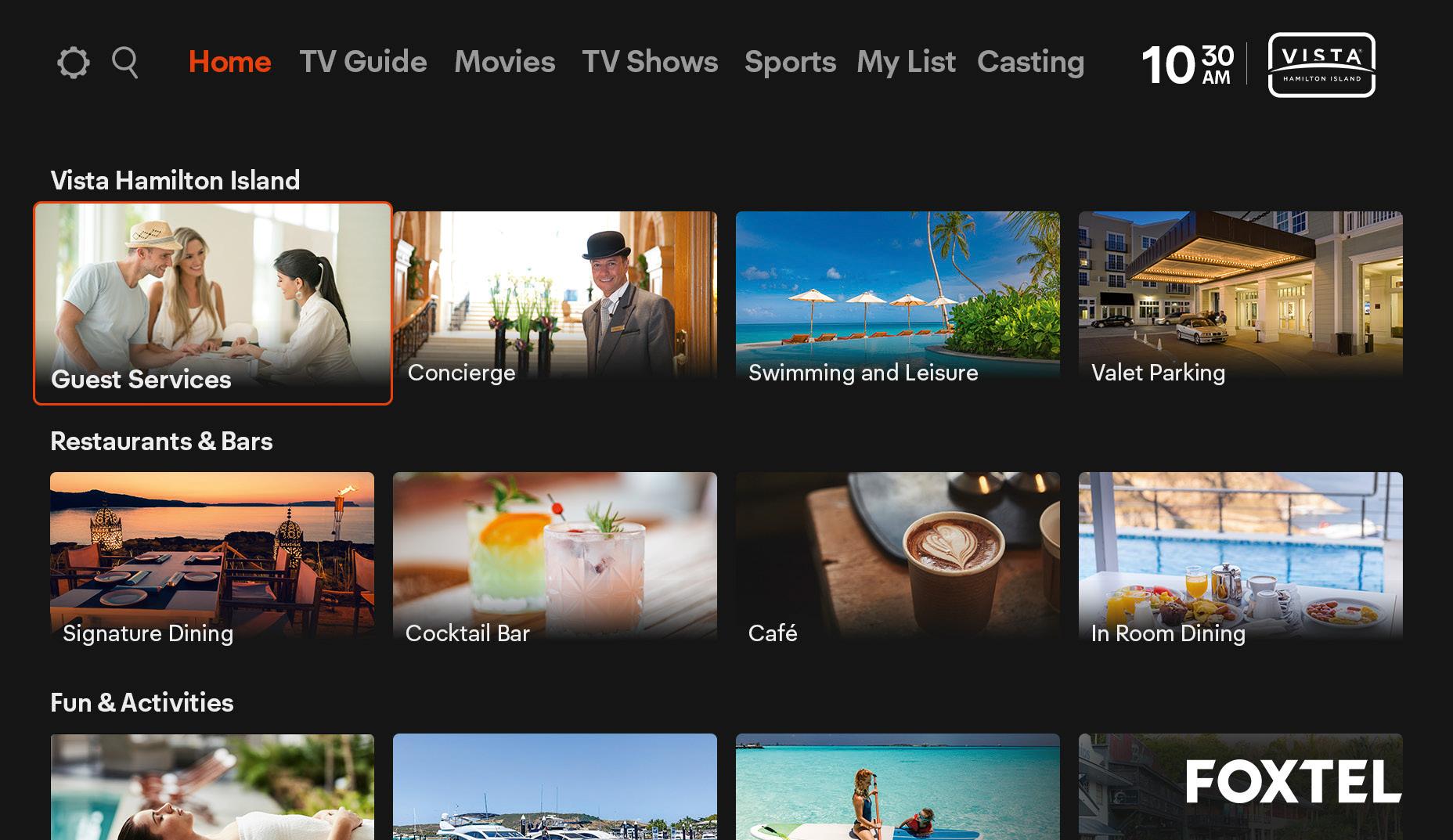
In this short video reel, let us show you how Business iQ will optimise the operations of your business, drive additional revenue streams and enhance your guests’ engagement experience.

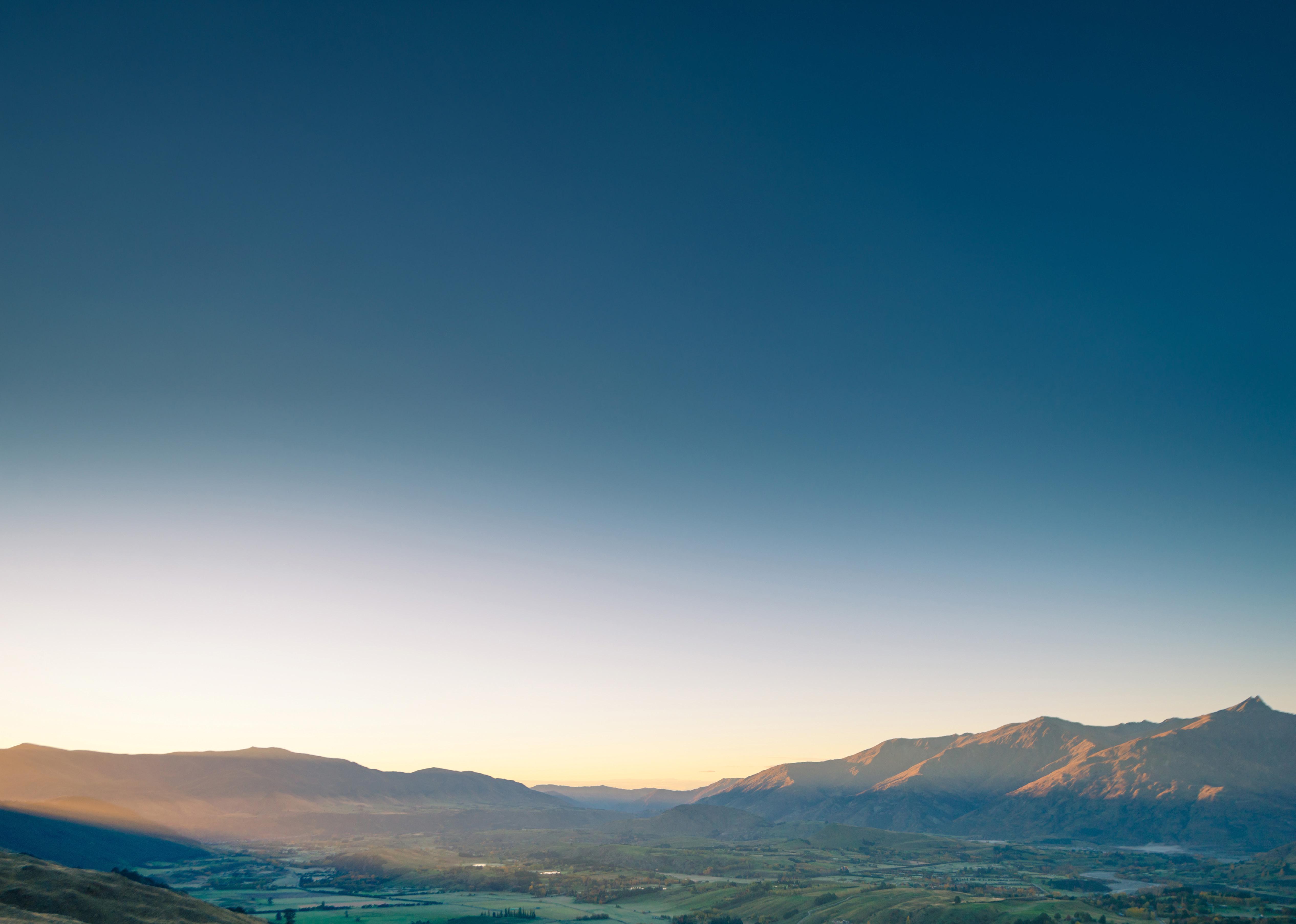



Platinum Sponsors







Organised by Emerald Sponsors
Affiliate Partners

Gold Sponsors



Silver Sponsors


Bronze Sponsors

Teal Sponsors
60
Introducing the latest technology to shake up the hospitality landscape.
Hotel technology expert Scot Campbell warns hoteliers to think carefully about AI.
How Mandarin Oriental Hotel Group is using technology to drive greater personalisation and elevate guest experiences.
Hospitality employers are doing their part to create a more diverse and inclusive industry.
AHICE Fiji Islands highlights bountiful opportunities in the South Pacific hotel market.
The countdown is on to the fourth annual AHICE Aotearoa this August.
September is a busy month for AHICE, with upcoming events in Japan and the Maldives.
Economy and midscale hotels continue to lure new investors. 65 A ‘SAFE HAVEN’
JLL’s Nick Thompson looks to the future of New Zealand’s hotel market.
The Eve Hotel Sydney General Manager, Ben Mellor, peels back the curtain on the first six months in business.
Starwood Hotels’ former VP of Design, Rebecca King, discusses her work on the landmark 1 Hotel Melbourne.
James Wilkinson examines the rise of the solo traveller.
Ruth Hogan discusses demand for design-led hotels.
The essential stories you need to know this month.
TFE Hotels ushers in a new era of global casual living with its flagship Adina Hotels brand.
Your roundup of the latest key industry appointments.
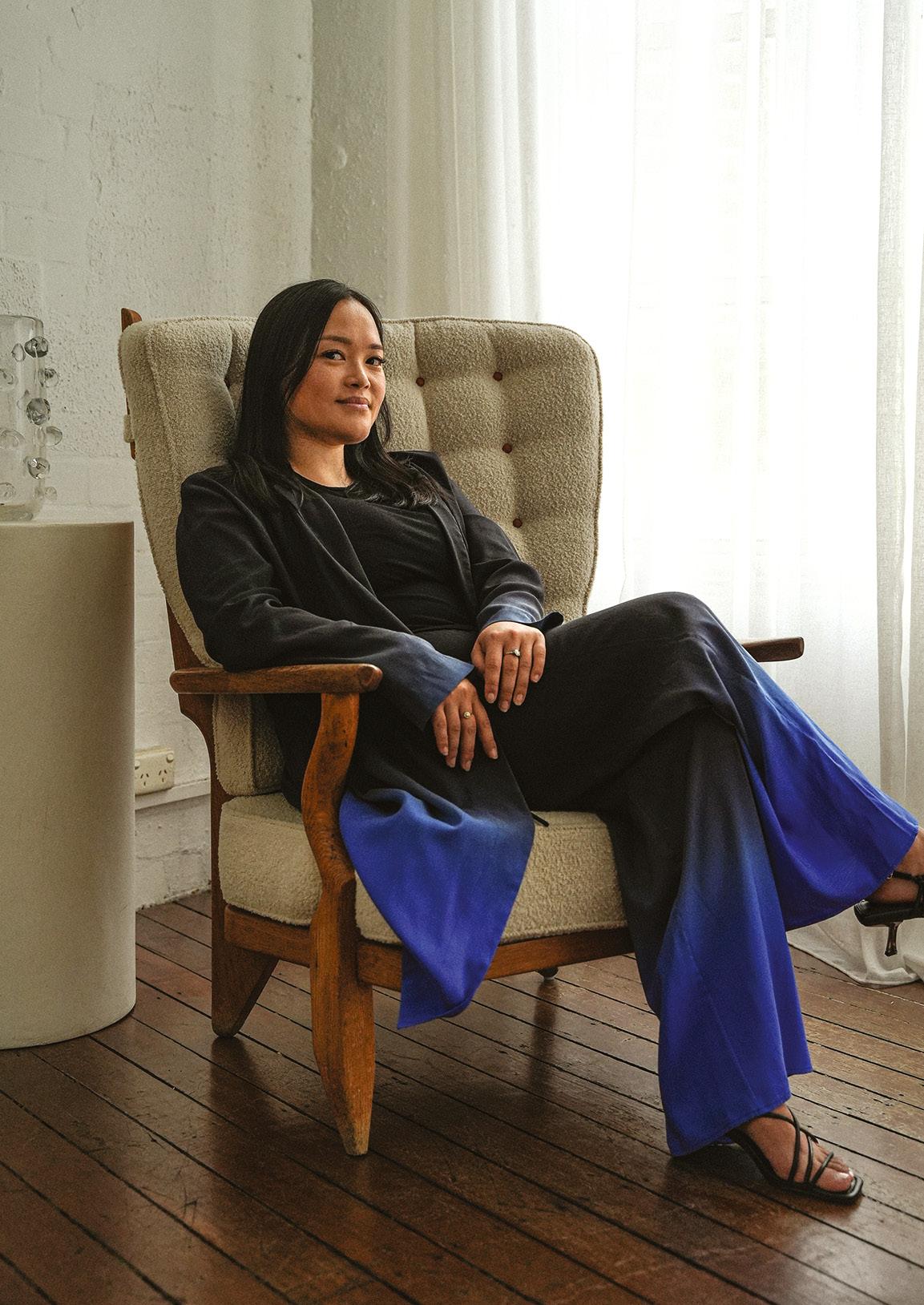

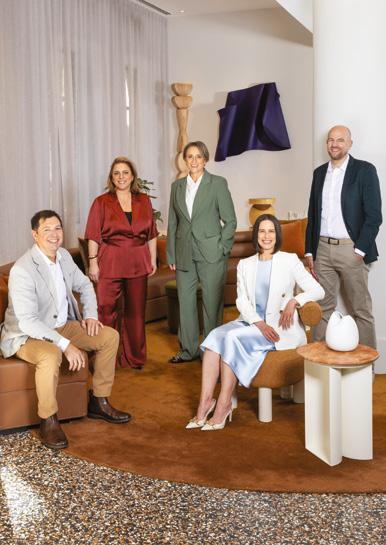
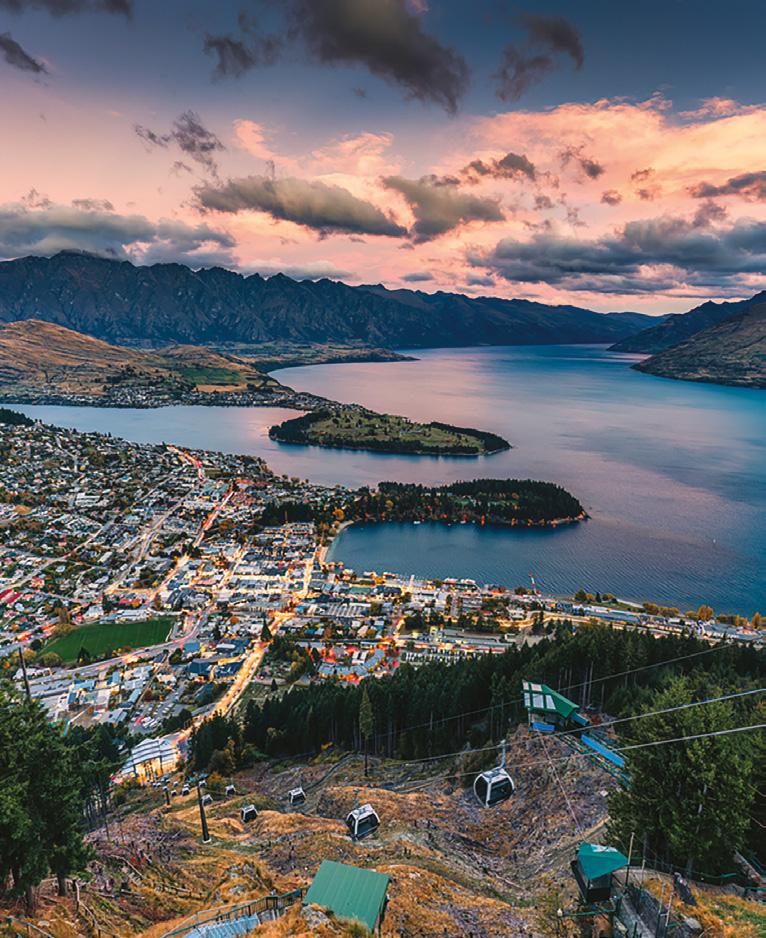
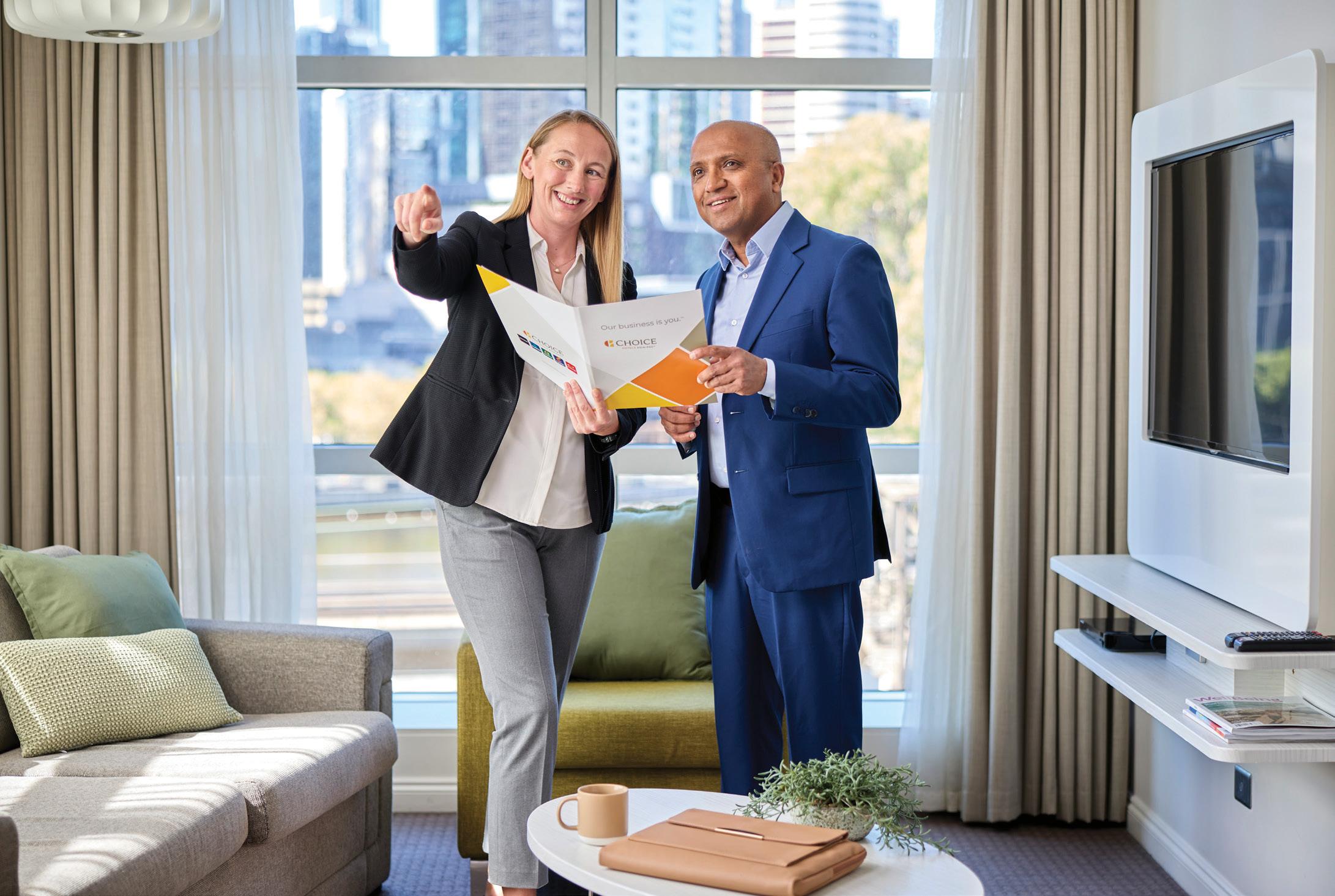
In recent months, we’ve been hearing a lot about the growth of the solo traveller and some recent research is showing the trend continues to grow at a rapid pace both in Australia and across the globe.
According to recent research from IHG Hotels and Resorts, a staggering 61% of Australians crave alone time after the holiday period – including long trips away, the school holidays, Easter and Christmas – to recharge.
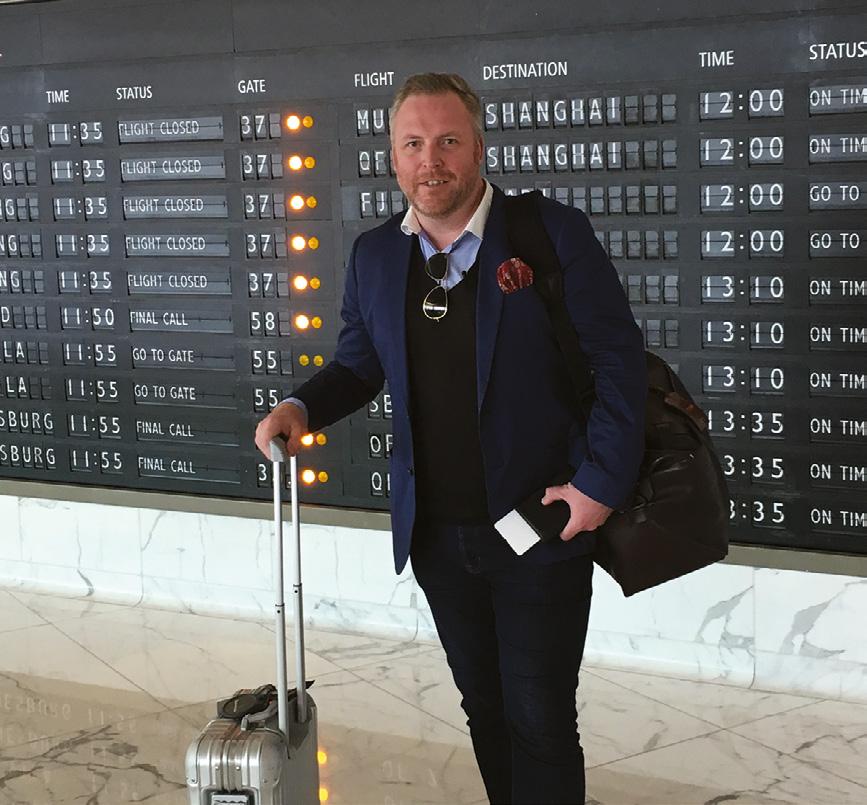
It’s Millennials who are leading the charge for solo escapes post the holidays, with three-quarters (75%) of Aussies aged 25-44 years craving me-time.
Similar to what we are seeing globally, the IHG research revealed women are slightly more likely to crave post-holiday alone time than men (64% versus 58%) and surprisingly those living with a romantic partner (72%) are more likely to seek a solo break than their single counterparts (64%).
Research released in July from Scoot, the low-cost arm of Singapore Airlines, backs that up and has also shown a remarkable upswing in hunger for solo travel.
According to a new white paper from Scoot, 87% of Australians plan to travel solo in the next 12 months. That comes on the back of eight in 10 (81%) respondents having embarked on solo trips in the past year, with more than half (54%) undertaking two or more solo trips. The carrier says this growing trend is closely tied to broader lifestyle shifts, from increased demands at work and home to a rising emphasis on personal wellbeing.
Kudos then to IHG who have launched a series of ‘NOMO’ (Night On My Own) packages at properties across Australia and New Zealand. Each NOMO package includes breakfast and bubbles in bed and a 4pm late checkout, as well as complimentary NOMO perks personalised per property designed to elevate the NOMO experience. How good. For example, the NOMO package at Voco Melbourne Central includes a self-care kit, a 1-hour massage experience at Spa Bar Melbourne, a bottle of prosecco on arrival, breakfast in bed, and 4pm late checkout subject to availability.
Solo travel was a big talking point at the recent AHICE Fiji Islands Investment in Tourism Summit held during June (p50) and will no doubt also be front and centre at AHICE Aotearoa in Christchurch this month (p56).
What I love about our AHICE events globally is on stage you are hearing the trends first-hand and in-market before they are spoken about widely. I can’t wait to hear the latest for New Zealand at AHICE Aotearoa and hope to see you there.
Yours in hospitality,
James Wilkinson Editor-In-Chief, HM magazine Chair & Convenor, AHICE Global Conferences
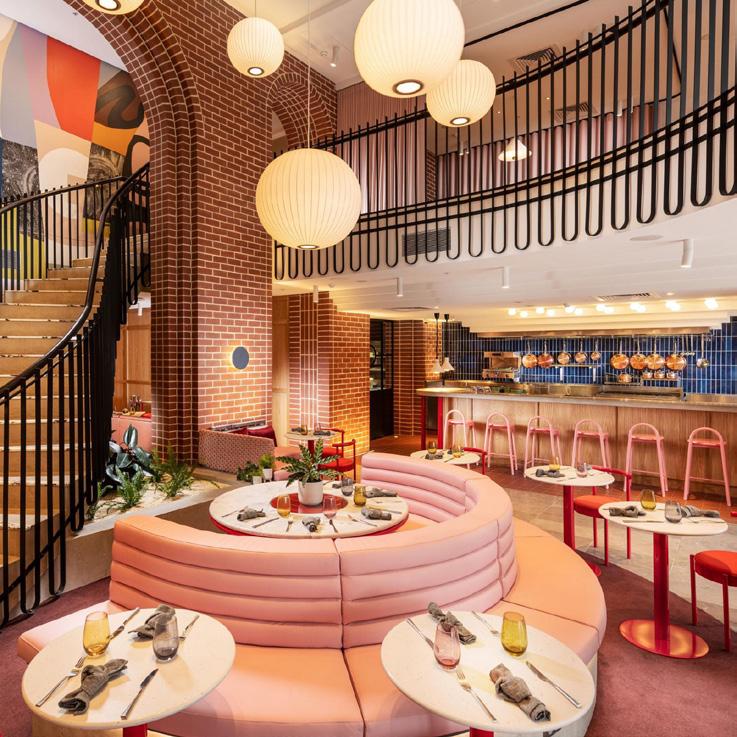
Executives flew in from across the Pacific to attend the recent AHICE Fiji Islands conference
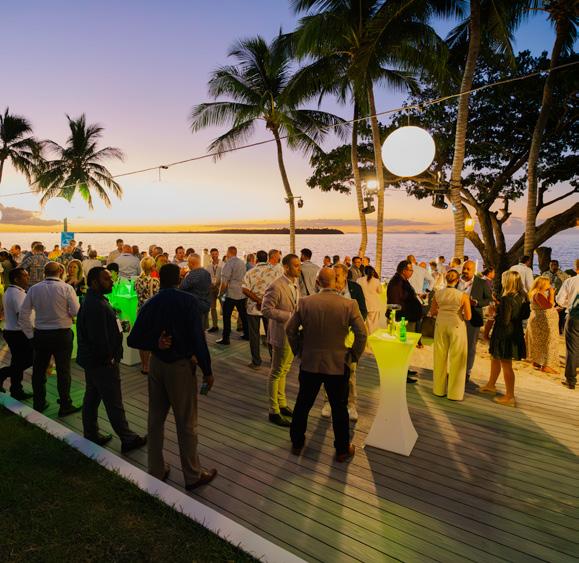
IHG has launched ‘NOMO’ (Night On My Own) packages at properties across Australia and New Zealand
around the world capturing our attention this month.
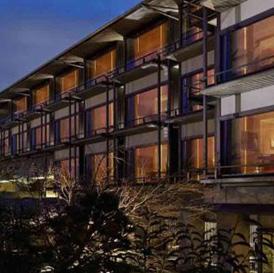
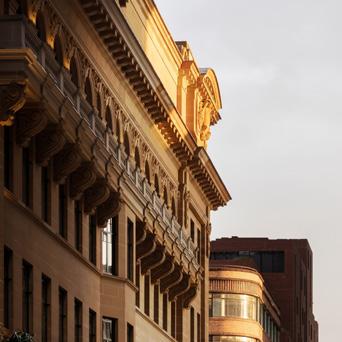
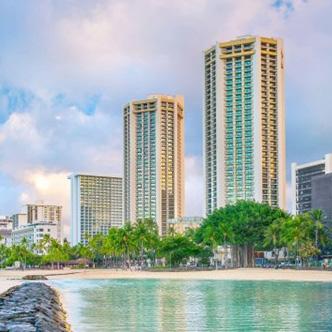
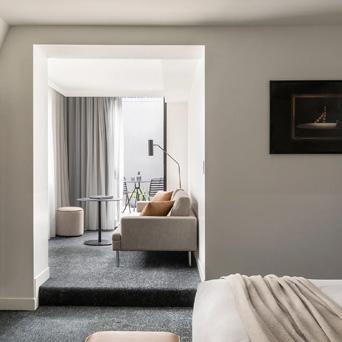
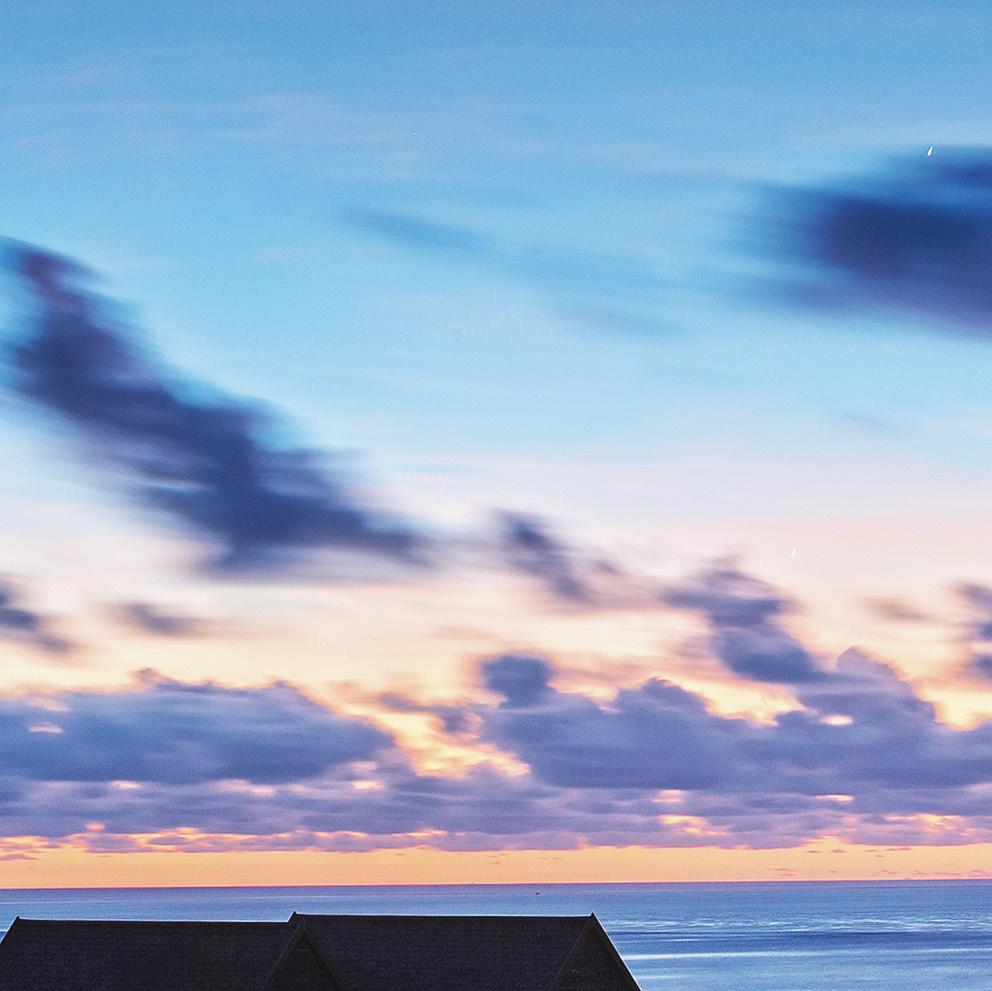
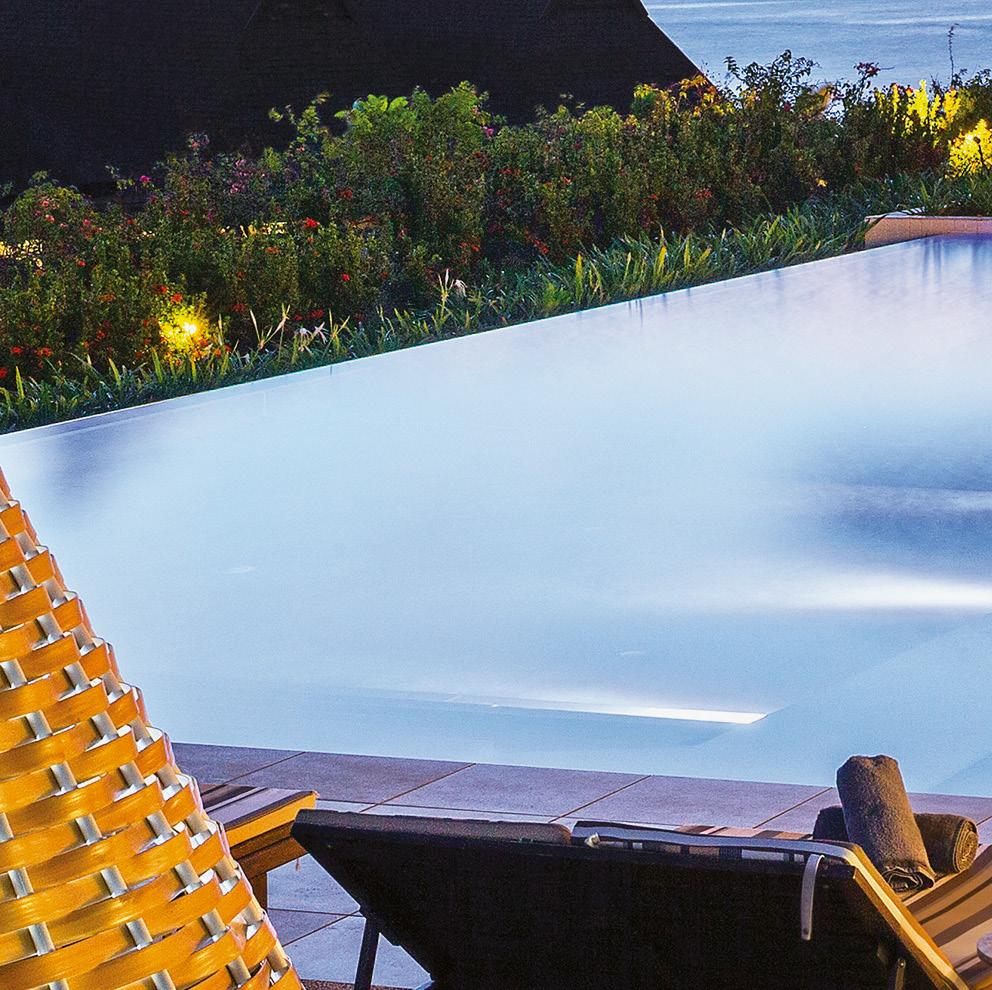
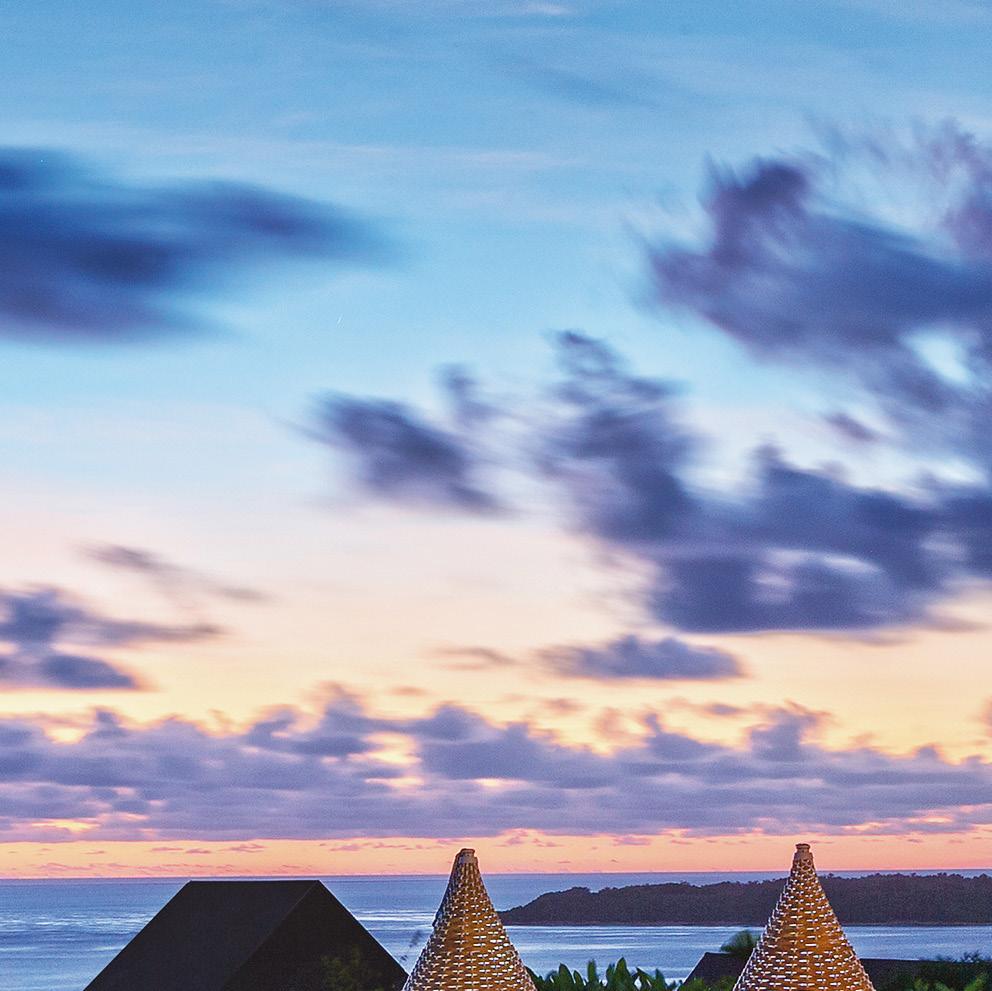
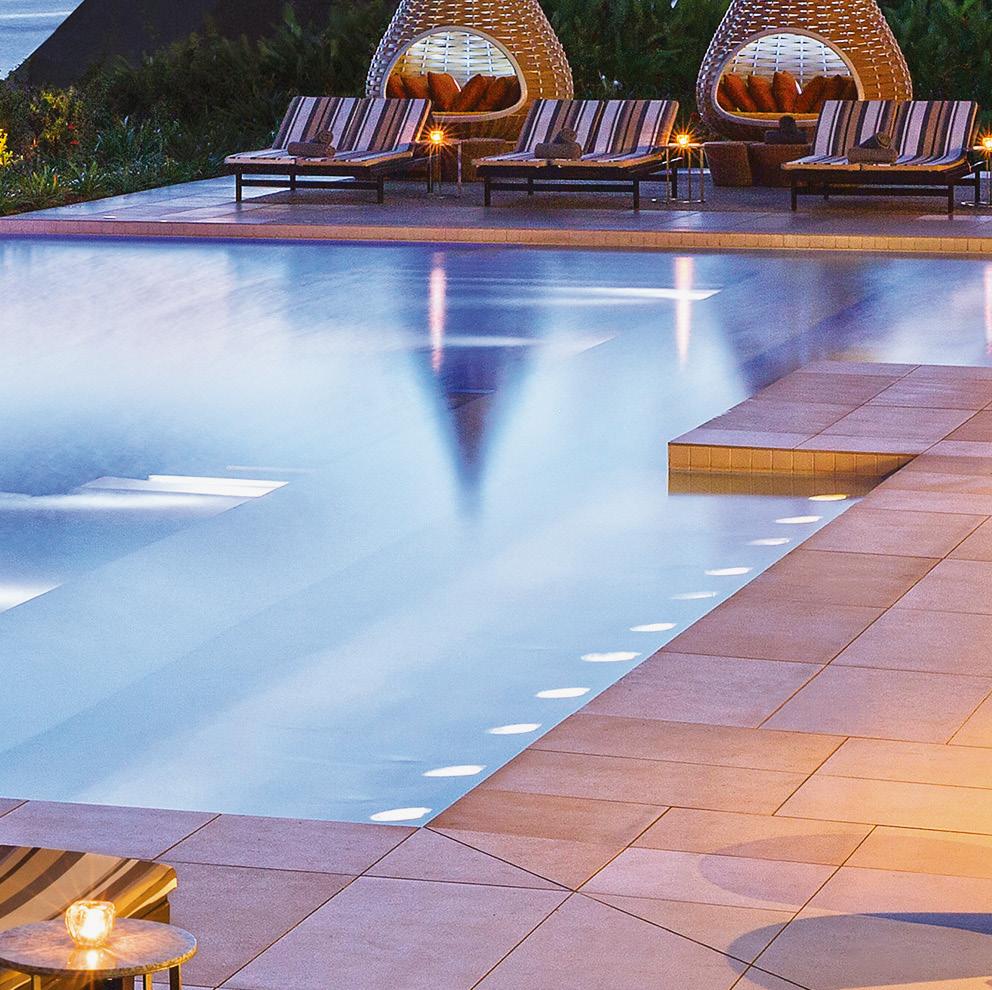
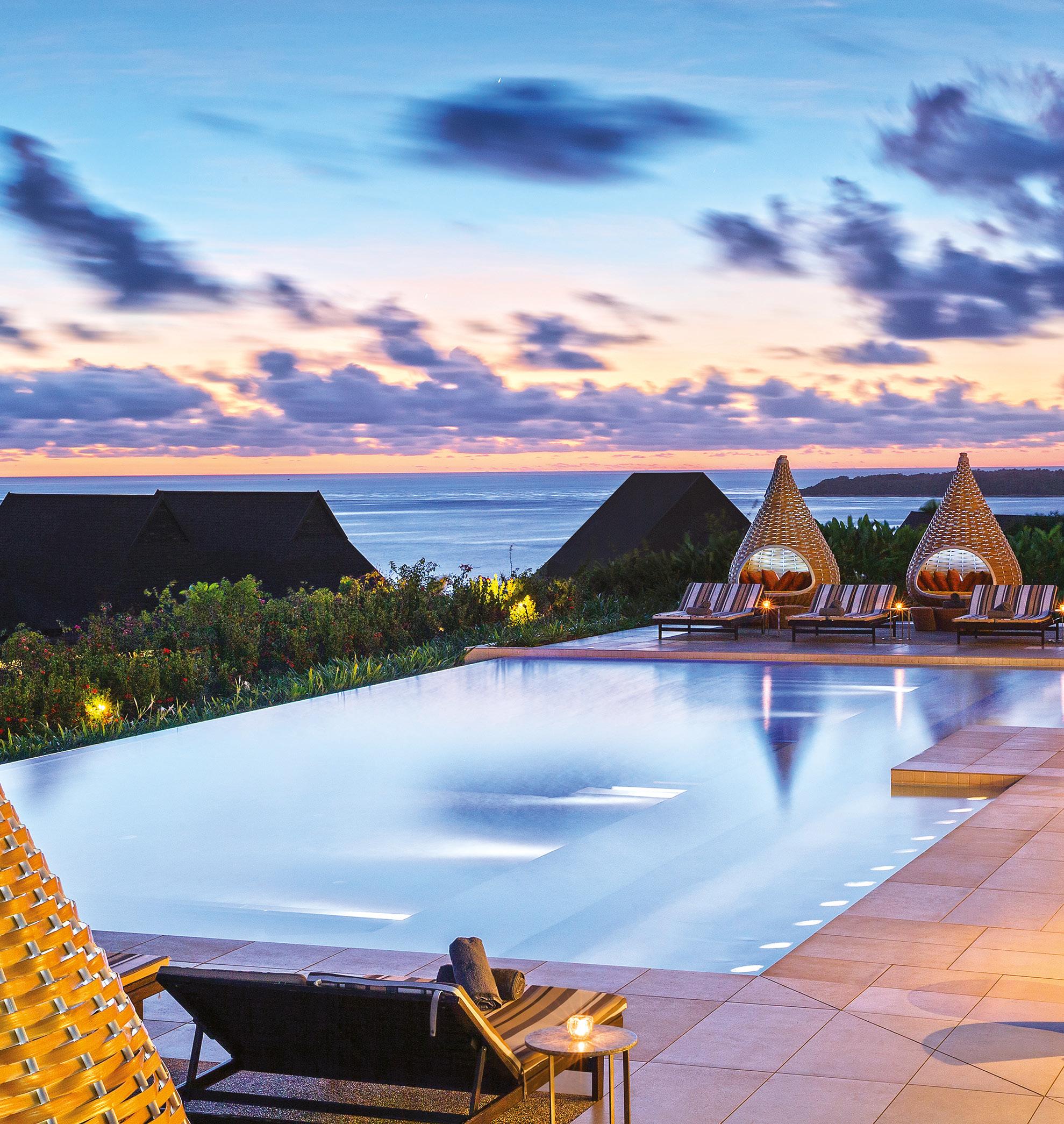
20 hotel brands. 6,600 global destinations. One loyalty program.
In today’s competitive hospitality landscape, design matters more than ever to hotel guests. The look and feel of a hotel – captured on their website or social media pages – is heavily influencing where travellers choose to spend their money.
One of the most striking examples of hotel design in the Australian landscape this year is 1 Hotel Melbourne, delivering a “nature-inspired property” with biophilic design principles, including more than 7,000 plants, 4500sqm reclaimed timber, and 2000 original elements.
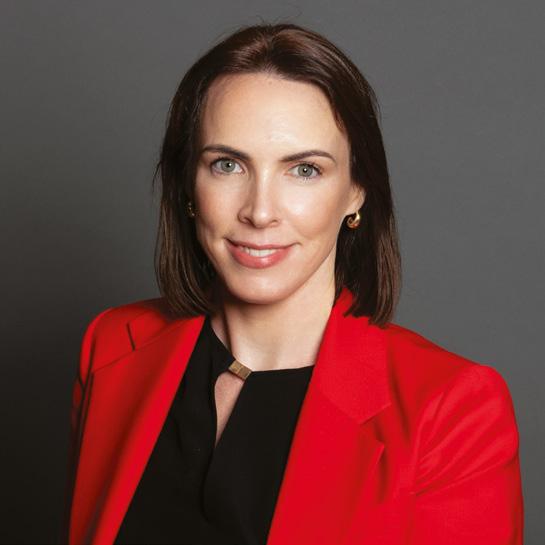
In this issue, former Starwood Hotels, Vice President of Design, Rebecca King, discusses the extensive work involved in sourcing materials for this project (p32).
“Every design choice was made with the intent to make the hotel feel like a home away from home for guests – a place to inhale, take a deep breath and unwind from the chaos of the everyday,” said King.
Another powerful example is The Eve Hotel Sydney. Toga has invested heavily in the design of this luxury boutique hotel, which is evident in the marble furnishings and exquisite artworks throughout. It’s no wonder the hotel is drawing curious locals and travellers to its doors (p30).
“No matter where you go, it’s considered,” said General Manager Ben Mellor. “The whole experience is designed to feel seamless.”
Not forgetting Mondrian Gold Coast, one of several design-led Ennismore hotels to arrive on the Australia hotel scene this year (p26).
Also in this issue, we hear about how Aussie-born apartment hotel brand Adina is undertaking an ambitious brand repositioning, with design at the forefront (p16).
“As hoteliers, we aim to create relaxed, yet stylish spaces where our guests feel right at home, and that belief has underpinned Adina’s success for the past 20 years,” said TFE Hotels’ Chief Executive Officer, Antony Ritch.
“As we prepare to evolve the brand and look to the future, we’re equally committed to delivering hotel experiences that reflect how people live today – connected, conscious and design focused.”
Great design is no longer a luxury; it’s a necessity across every segment, economy included.
I hope you enjoy reading this issue. Please do get in touch if you have any feedback or interesting stories to share.

Ruth Hogan Editor, HM magazine
Extensive efforts have been made to incorporate original and reclaimed materials at 1 Hotel Melbourne
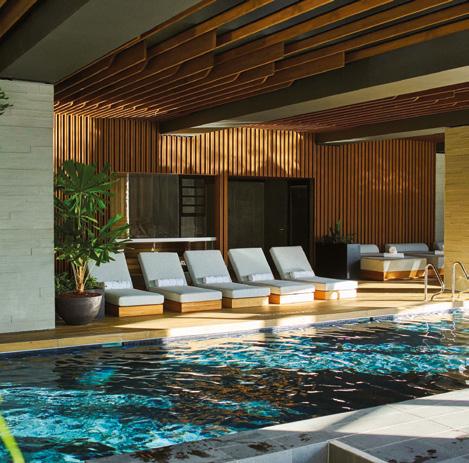
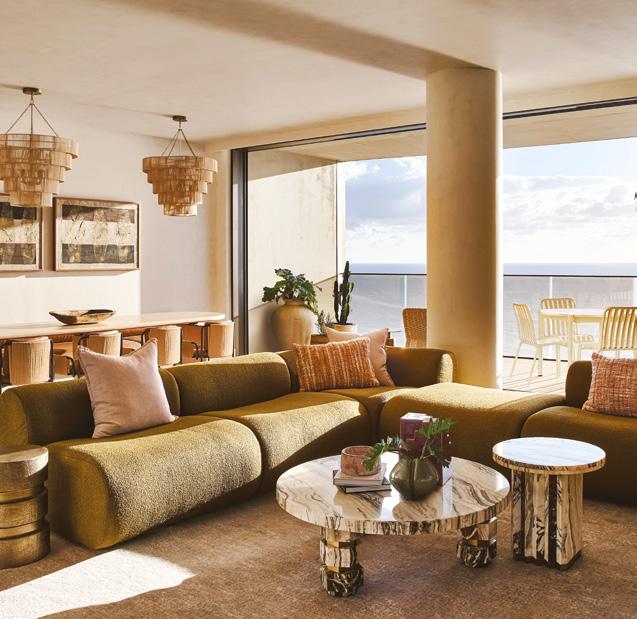
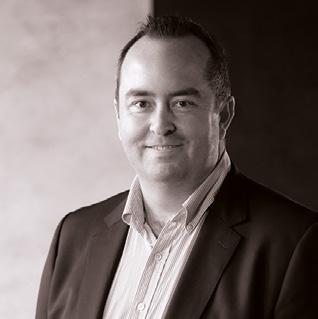
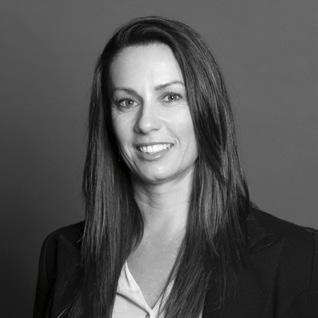
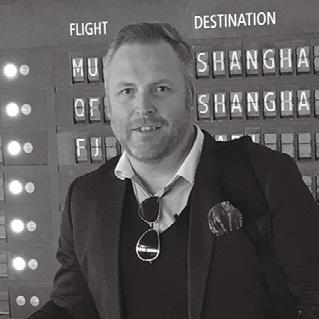

Managing Director Simon Grover
Publisher James Wells
Editor–In–Chief James Wilkinson jwilkinson@intermedia.com.au
Editor Ruth Hogan rhogan@intermedia.com.au
Group Commercial Manager Tara Ducrou tducrou@intermedia.com.au
Production Manager Jacqui Cooper jacqui@intermedia.com.au
Graphic Designer Ryan Vizcarra
Photography Cover photography by O’Neill Photographics.
Subscription enquiries 1800 651 422
Subscribe to HM magazine –6 issues for AU $88 (inc. GST) subscriptions@intermedia.com.au
Published by
41 Bridge Road, Glebe NSW 2037, Australia. (PO Box 55, Glebe NSW 2037, Australia) Tel: +61 (0) 2 9660 2113 Fax: +61 (0) 2 9660 4419 ABN 940 025 836 82 In association with








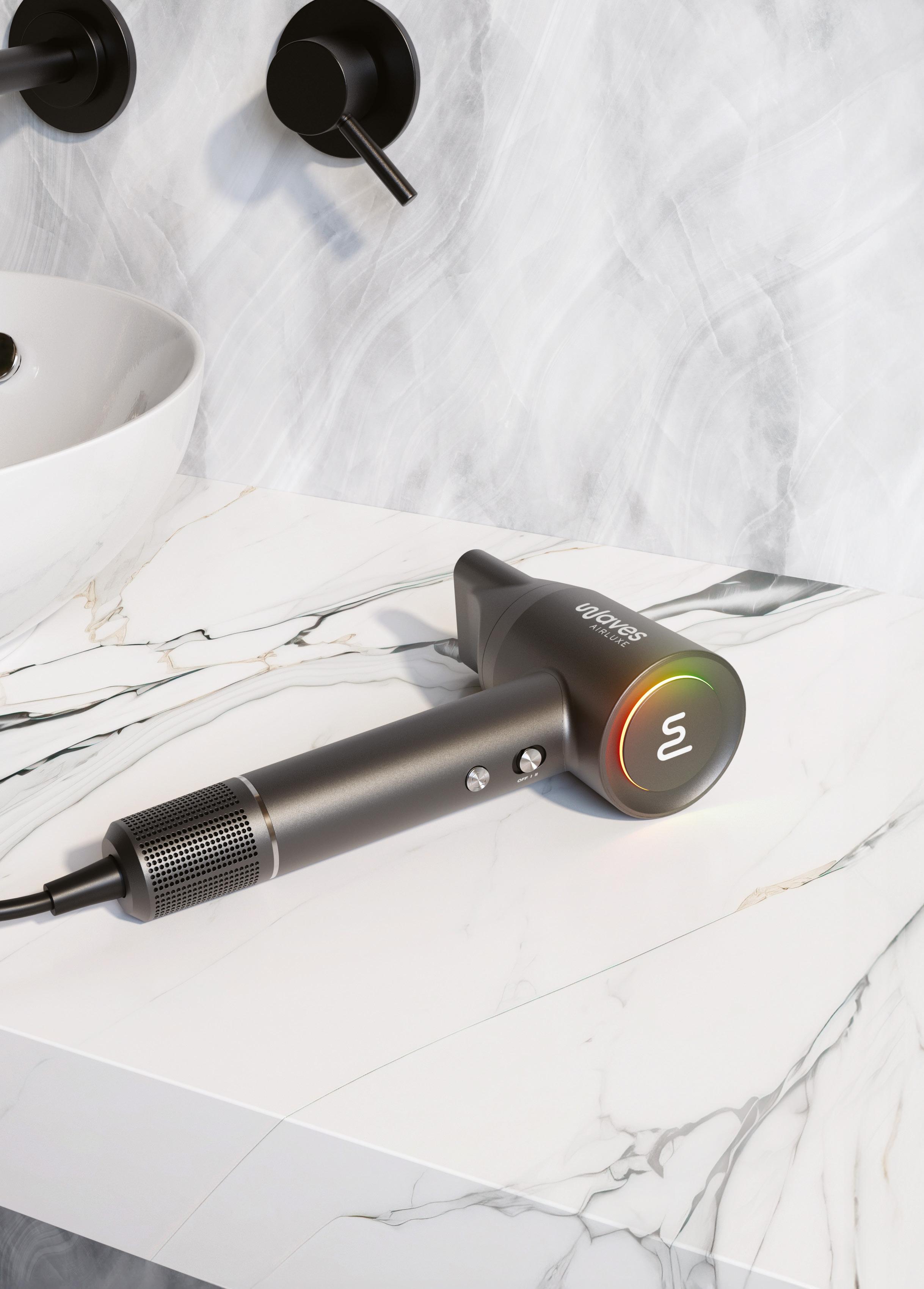
The essential hotel and travel industry news and trends from across the globe. Read more at HotelManagement.com.au
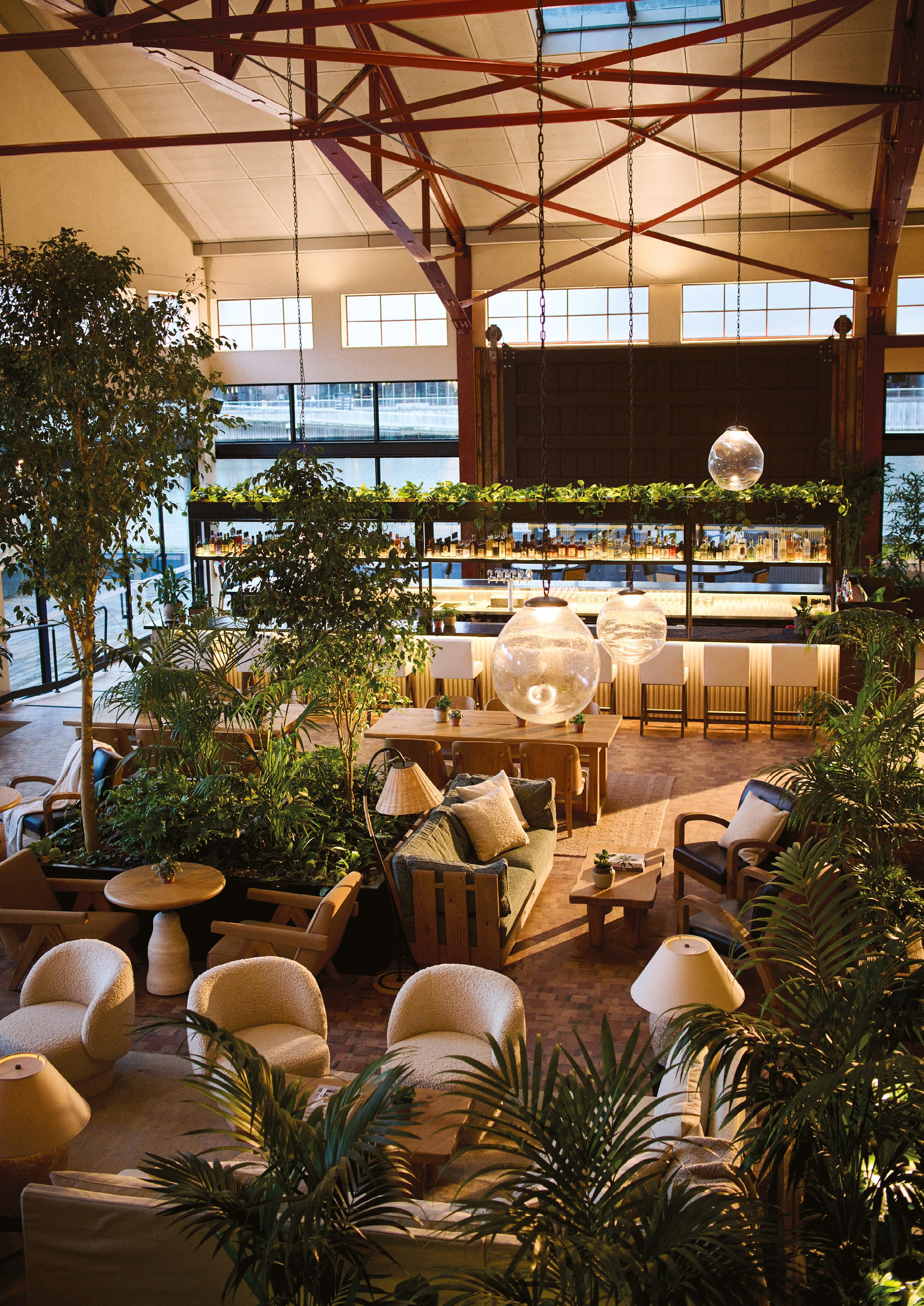
The sustainable luxury brand makes its long-awaited Australian debut.
1 HOTEL MELBOURNE has opened its doors, introducing domestic travellers and international guests to the first Australian iteration of Barry Sternlicht’s “mission-driven” luxury lifestyle brand.
Described as a “nature-inspired property”, delivered in partnership with Melbourne-based developer Riverlee, the 277-room hotel features biophilic design principles, including more than 7,000 plants, reclaimed timber and materials and sustainable features such as shower timers and operable windows.
“The opening of 1 Hotel Melbourne marks a powerful moment for our brand as we expand in the Asia Pacific region,” said 1 Hotels Founder and Starwood Hotels Chairman, Barry Sternlicht.
“As we grow our global footprint, we’re focused on markets that reflect our values – places where nature, culture, and innovation converge in meaningful ways. Melbourne is a city that not only understands the importance of sustainability, it celebrates it.”
Starwood Hotels CEO, Raul Leal, said the brand ethos centres around “luxury rooted in purpose, impact, and authentic experiences”.
“1 Hotel Melbourne brings sustainability and style into harmony, with a focus on wellness, local connection, and day-tonight programming that creates a tangible sense of place,” he said.
“From the moment you arrive, you feel like you’re part of the city.”
Rydges Lakeside Queenstown will be converted and repositioned to join the neighbouring QT.
EVT HOTELS AND Resorts is set to convert its Rydges Lakeside Queenstown property into a QT hotel, integrating with the existing 69room QT Queenstown.
Following a major refurbishment of the existing 152-room Rydges hotel in line with QT’s bold design, the combined QT Queentown will feature a total of 221 rooms, the majority of which will feature guest balconies overlooking the Lake Wakatipu waterfront.
QT Queenstown will also offer conferencing and event facilities, elevated food and beverage experiences, a state-of-the-art gym and pool, as well as facilities to cater for hikers, mountain bikers and ski/ snowboarders.
“Queenstown continues to be one of the best performing hotel markets in Australasia, and our hotel property is in a prime location on the shores of Lake Wakatipu,” said EVT Director – Commercial, Mathew Duff.
“The refurbishment will significantly enhance the assets value and grow earnings for our shareholders. Guests will step into something
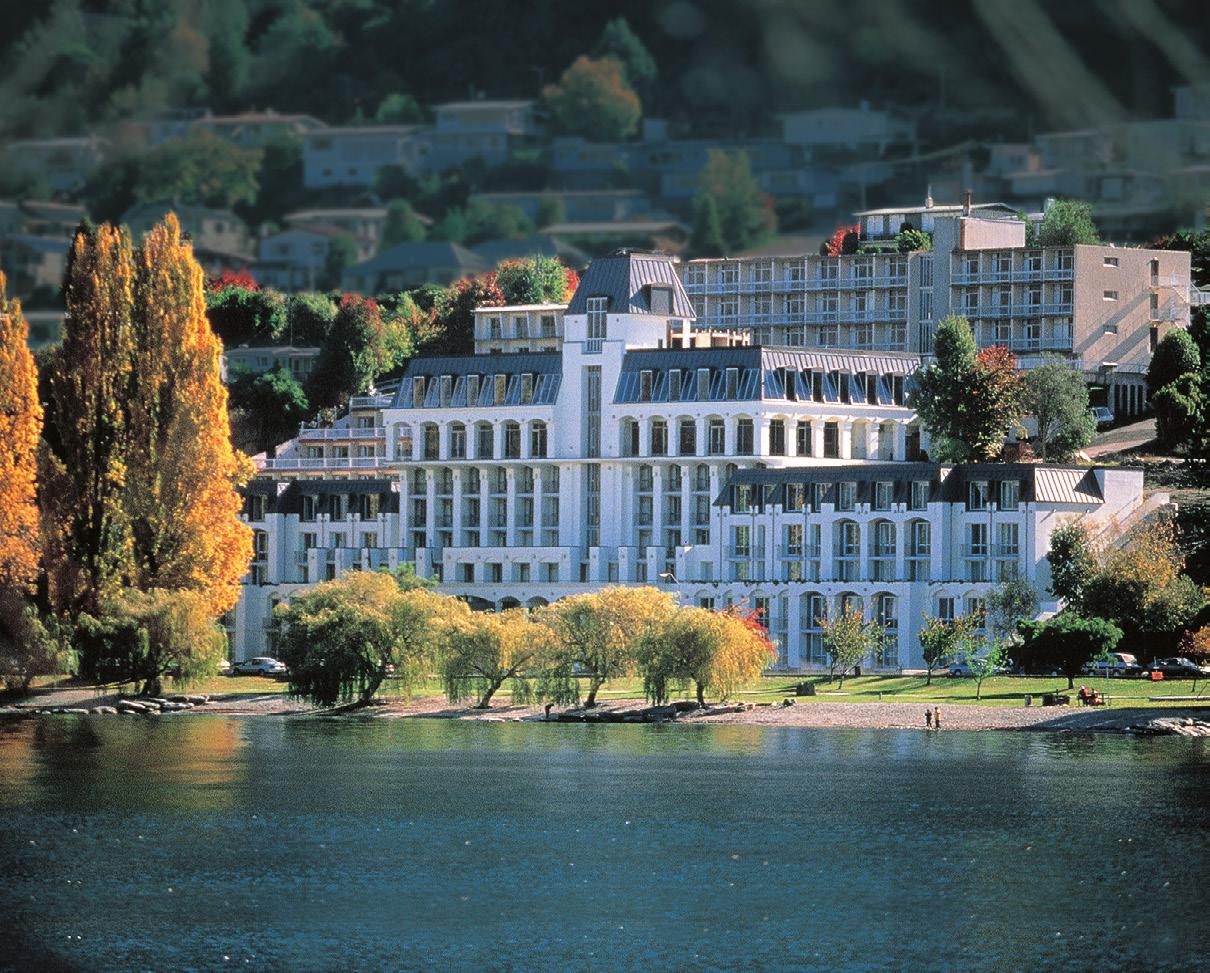
The expanded QT Queenstown will feature 221 guest rooms
truly special – QT’s signature design, breathtaking views and thoughtfully curated spaces.”
The current QT Queenstown will remain open throughout the upgrade with new rooms to launched in stages throughout 2026.
The project is slated for completion by mid-2027.
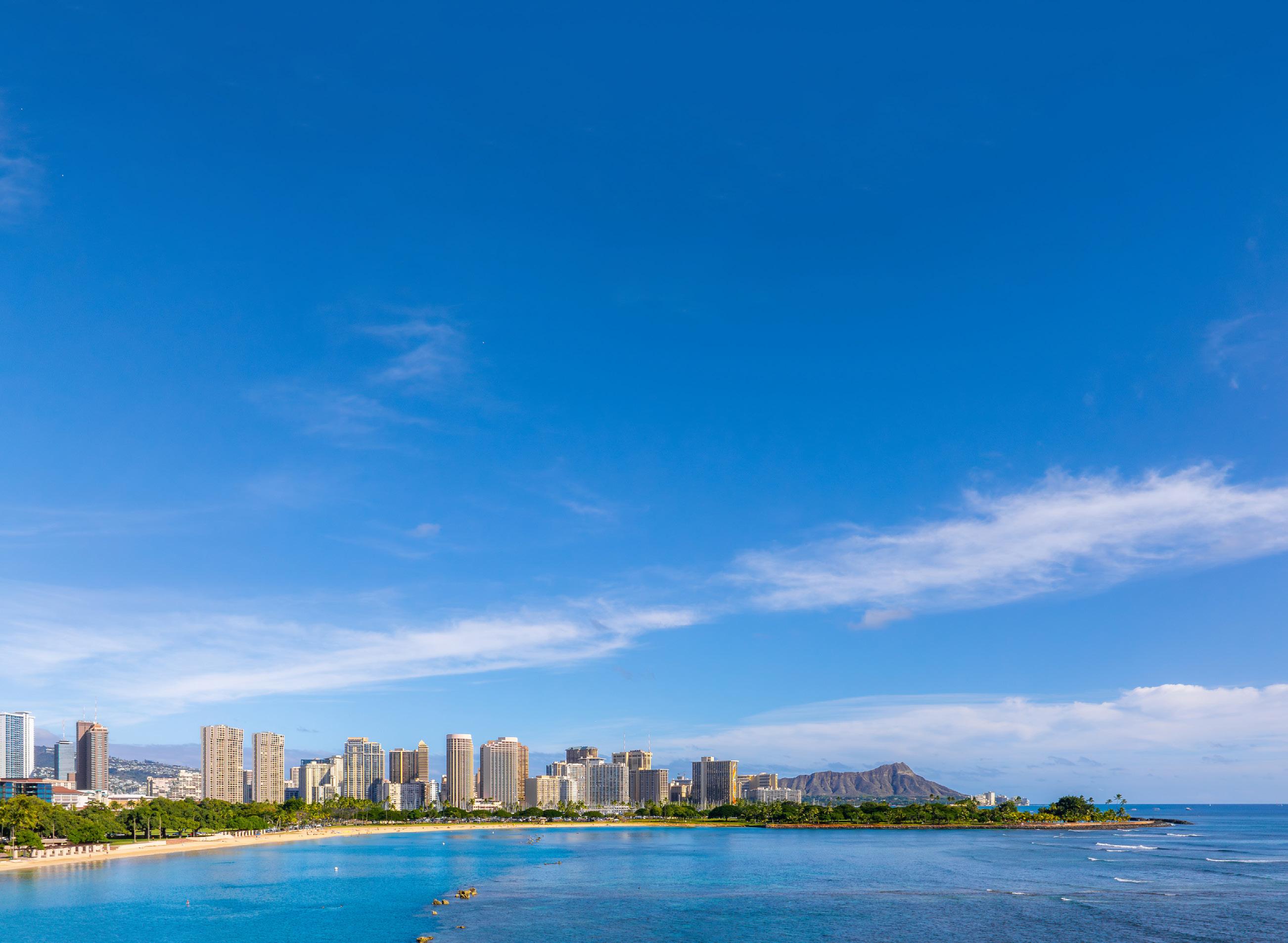


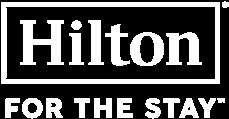

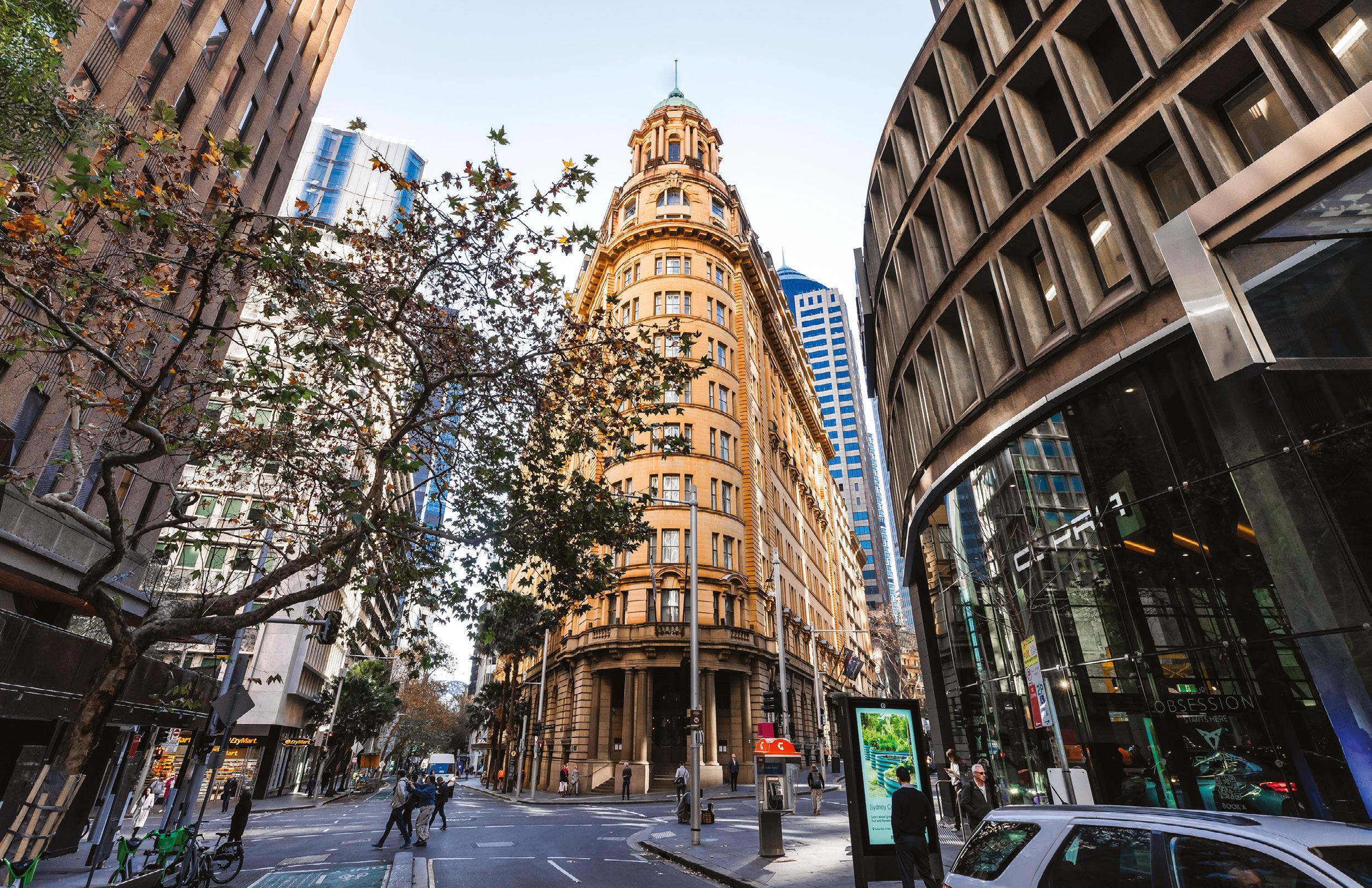
Paradox Hotels and Resorts makes Australian debut at an historic Sydney address.
PARADOX HOTELS AND Resorts has entered the Australian market with the opening of its first hotel at the historic Sydney address, 27 O’Connell Street, on July 1, 2025, following a rebranding of Radisson Blu Plaza Hotel.
Owned by TA Global since 1997, the heritagelisted sandstone building was built in 1856 as the home of John Fairfax and Sons. It then served as the Bank of New South Wales, then Westpac Bank, before opening as the five-star Radisson Blu Plaza Hotel in 2000.
Paradox Sydney joins a portfolio of hotels that spans five countries globally: Canada, Singapore, China, Thailand, and now Australia.
The brand is recognised for “culturally inspired design, seamless service and experiences that capture the unique spirit of each city”.
“Paradox is about creating places with soul –hotels that are deeply connected to the people, culture and pulse of the city,” said TA Global CEO Tiah Joo Kim.
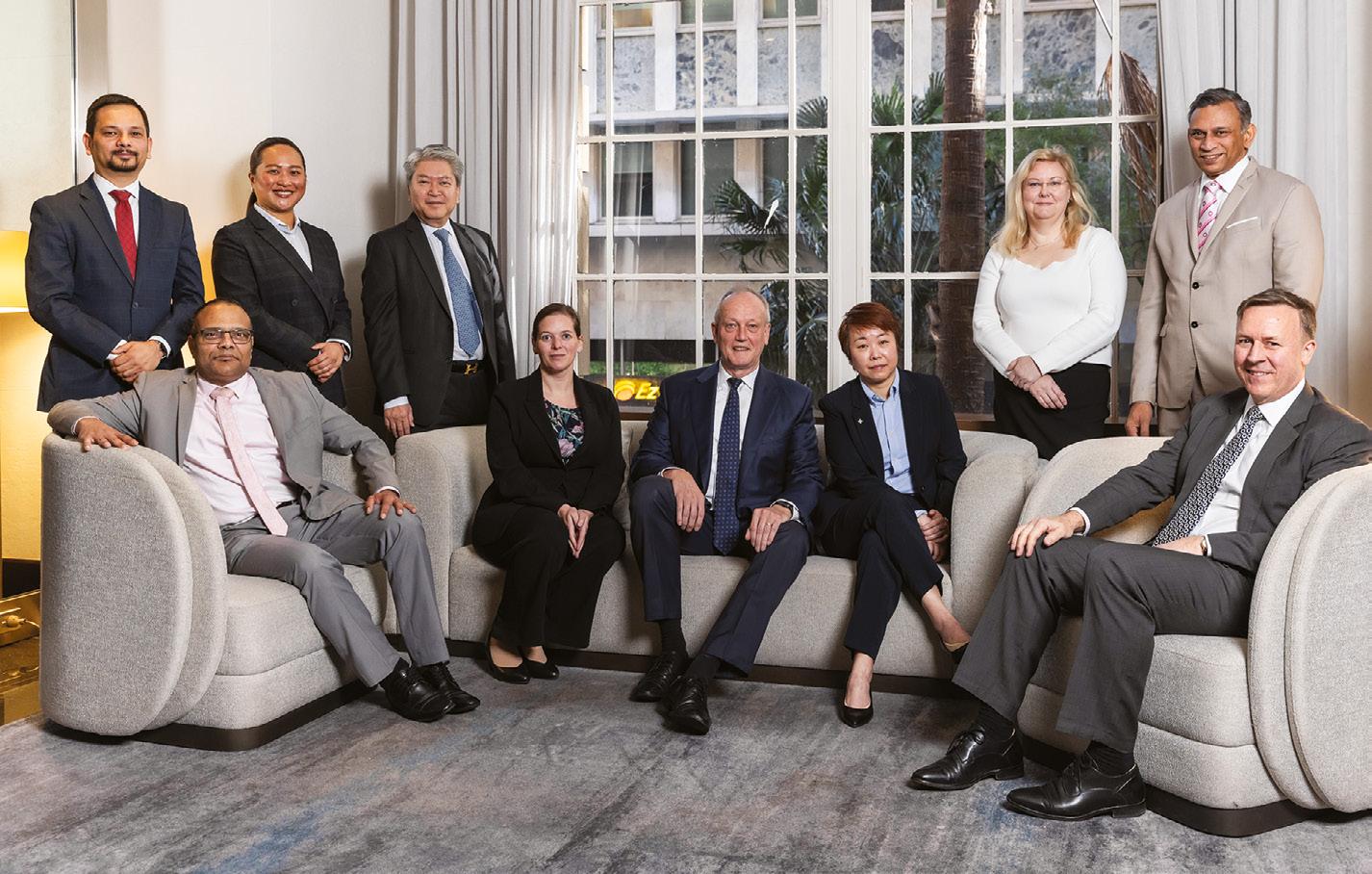
The leadership team behind Paradox Sydney
Tiah, the visionary behind the Paradox brand, holds a personal connection to the city as a graduate of Sydney’s Macquarie University.
“To debut in Australia at such a historic and meaningful heritage address is a major milestone for us. We look forward to bringing our signature blend of culture, creativity, and authentic hospitality to this vibrant city.”
Peter Tudehope remains as General Manager under the Paradox brand.
“Since 1856, this landmark building has been shaped by three great custodians: The Sydney Morning Herald, the Bank of New South Wales and Radisson Blu,” Tudehope said.
“Each has contributed to its remarkable story. Today, as Paradox takes the helm, we are excited to write the next vibrant chapter that celebrates its heritage while forging a fresh and inspiring future.”
The 364-room hotel features state-ofthe-art meeting and conference facilities, a wellness centre and a refined restaurant and bar offering.
With a AU$13.5 million refurbishment completed in 2015, the property will be gradually refreshed in line with the Paradox brand, remaining fully operational throughout the transition.
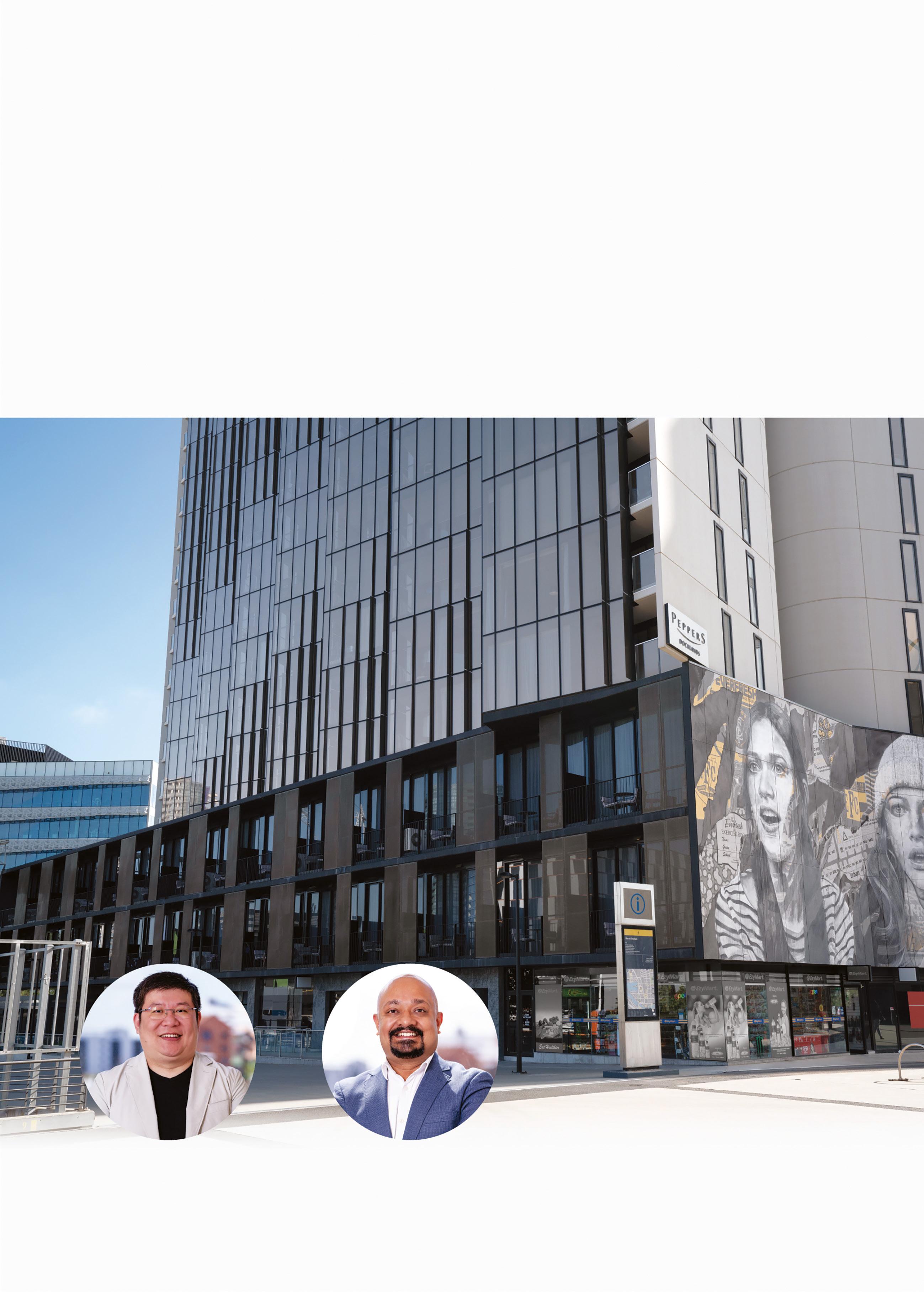

TFE Hotels is ushering in a new era of global casual living with its flagship Adina Hotels brand.
Ahomegrown success story in every sense, TFE Hotels’ flagship brand, Adina Hotels, has spent the past two decades quietly redefining the way people live, work, and stay when they travel. Now, with an ambitious brand repositioning underway and global expansion plans picking up pace, the Aussie-born apartment hotel brand is really hitting its stride.
In looking back on the brand’s success, TFE Hotels’ Chief Executive Officer, Antony Ritch, says Adina’s 20-year history of delivering hospitality inspired by the Australian lifestyle, has always been about creating liveable spaces and a home away from home.
“As hoteliers, we aim to create relaxed, yet stylish spaces where our
guests feel right at home, and that belief has underpinned Adina’s success for the past 20 years,” Ritch said. “As we prepare to evolve the brand and look to the future, we’re equally committed to delivering hotel experiences that reflect how people live today – connected, conscious and design focused.”
Adina’s transformation has been both philosophical and physical. In the last five years, a new generation of Adina Hotels has emerged – including 17 new hotel openings and three full refurbishments
“Travellers crave connection, independence and comfort.”
Geraldine Connell, TFE Hotels

across the global network. New Adina hotels in Town Hall Sydney, Melbourne Pentridge, Munich, Düsseldorf, Geneva and more, combine sophisticated interiors, a warm, residential feel and the brand’s easygoing approach to hospitality.
In mid-2024, TFE also embarked on a major repositioning of the Adina master brand and trialled a number of new initiatives in customised guest experiences at pilot properties in Bondi, Brisbane, Vienna, and Wiesbaden to help bring their vision of “casual living” to life.
Global Marketing Officer, Katia Giurtalis, says the new Adina repositioning was informed by the fact that travel, no matter how exciting, can be tough without the right creature comforts.
Giurtalis,
Group Product
Brand; Francis di
Emma
Geraldine
“Whether it’s settling into a new neighbourhood or a desire to whip up a homecooked meal after a big day in a new city, we want to continue to create places where people can live with ease,” she says.
“Today, when you stay at an Adina, our guests have the freedom, comfort and connection to stay their own way – it’s what we call living made easy.”
With customer expectations rising, TFE Hotels is also committed to future-proofing its guest experience through a new Guest Experience Platform – a world class, bespoke technology platform designed to remove friction and drive deeper guest engagement during stays.


“Customer expectations around digital are evolving fast and our Guest Experience Platform will help us not only meet them, but get ahead of them,” says Justin Shumack, TFE Hotels’ Group Product Manager.
With customer orientated and integrated technology guiding the way, and a passionate team in operations to deliver on the new brand promise, Giurtalis says Adina will continue to push the boundaries of what apartment hotels can be, championing awardwinning architecture, locally inspired experiences, and a refreshed focus on ESG and sustainability.
“Elevating the Adina brand and hotel experience across our network is our absolute goal - city by city and hotel by hotel,” Giurtalis said. It’s a confident step forward as the brand enters a new phase.

Adina Hotels’ guest centric approach to brand reinvention will see TFE officially launch three brand pillars for Adina – Australian Lifestyle; Kitchens to Revolve Around; and Sanctuary of Space – at an Open House industry event at the newly refurbished Adina Town Hall Sydney in August.
“Travellers crave connection, independence and comfort,” says TFE Hotels’ Director of Brand, Geraldine Connell. “Accordingly, our project team has worked closely with our operations team to create and showcase welcoming spaces filled with the comforts of home – from thoughtful lighting and design touches to liveable kitchen spaces that invite guests to cook, relax, or work at their own pace.”
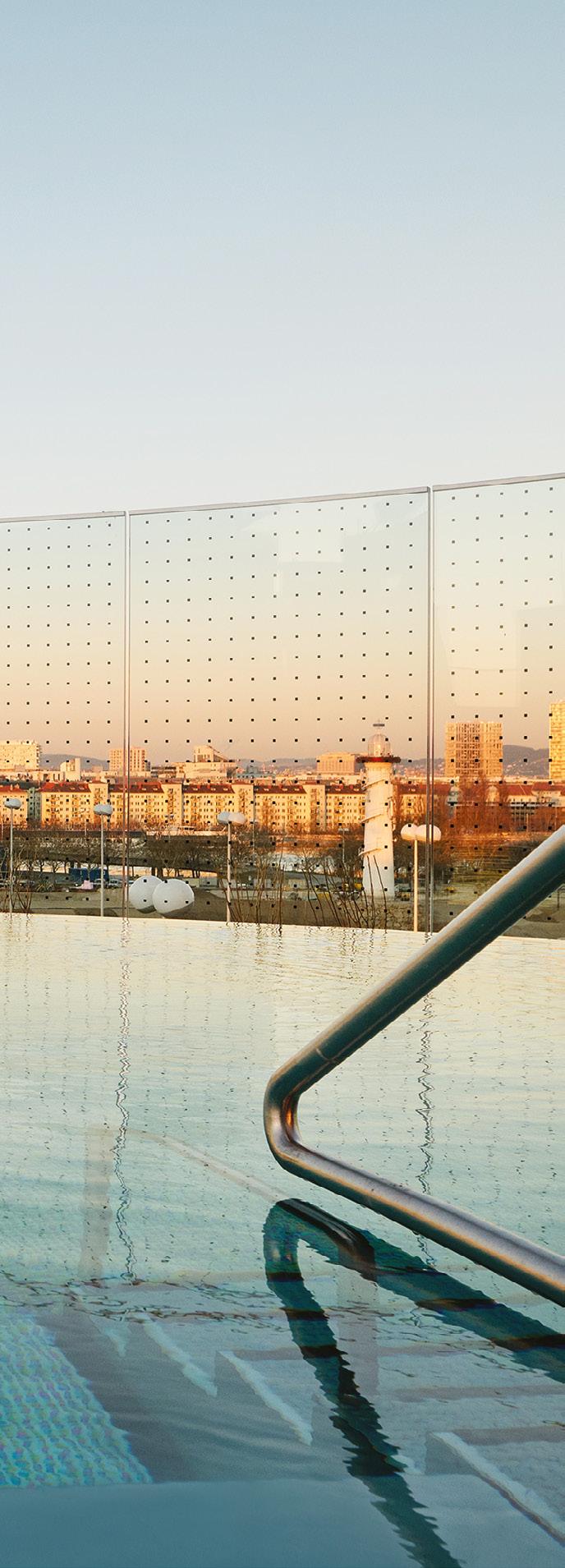

Over the past few years, Ritch and his team have focused on transforming TFE Hotels into a hospitality business that is increasingly digitally enabled, design-led and dining-focused. In 2024, in what they believe was a global first for the hospitality industry, TFE pioneered the creation of a six room microapartment hotel in Berlin that operates perpetually in beta mode.
This innovative, digital-first ‘lab’ – MM:NT – enables TFE to continuously test and reconfigure the guest experience, including design, amenities, and sustainable materials, with real-timequalitative guest feedback on the hotel design, public spaces, and overall experience.
“By recreating fully functional hotel rooms and microapartments in a controlled, yet public, testing environment and using an agile, iterative process typically seen in software development, TFE can test new configurations, designs, and sustainable products in a live feedback loop, allowing us to adapt hotel designs for brands like Adina and bring them to market quicker – something not usually possible when opening a traditional hotel.”
The MM:NT lab has been very well received by industry and has gone on to win a Skift innovation award in New York and the Best Flex Service Operator at the recent Serviced Apartment Awards in London. Excitingly, discussions are also underway to roll out the first full size MM:NT.
“We’re committed to delivering hotel experiences that reflect how people live today –connected, conscious and design focused.”
Antony Ritch, TFE Hotels
There is no doubt this new positioning marks a major shift for the homegrown brand and a fitting reinvention as Adina comes of age. Excitingly, in keeping with the brand’s Australian roots, TFE has also woven a subtle thread of Australian style through the Adina experience, aimed at creating moments of connection to place and neighbourhood.
“From the design of our rooms to the way our teams host, to the familiar embrace of the brand’s signature scent, we want guests to feel our Australian spirit – relaxed, welcoming and unpretentious,” Connell said.
Since the first Adina opened its doors in 2005, the brand continues to be very well received both at home and on the international stage. Similarly, TFE Hotels’ premium A by Adina brand, which launched in February 2021, is also going from strength to strength. The 120-key A by Adina Vienna Danube made its European debut earlier this year in Austria’s tallest and most prestigious residential building, with more of the brand in the international development pipeline.
“As a global ambassador for Australian hospitality, TFE was excited to take our A by Adina brand offshore for the very first time with the launch of A by Adina Vienna Danube,” Antony Ritch said. “Similarly, our upcoming expansion into the UK – with hotels set to open in Glasgow and Cambridge - marks an exciting chapter for both TFE Hotels and Adina Hotels as we bring our Australian spirit of hospitality to one of the world’s most dynamic travel markets.”
According to Ritch, TFE’s global growth reflects the strength of the Adina brand, TFE’s team, and their commitment to creating exceptional guest experiences, no matter where in the world they operate. n

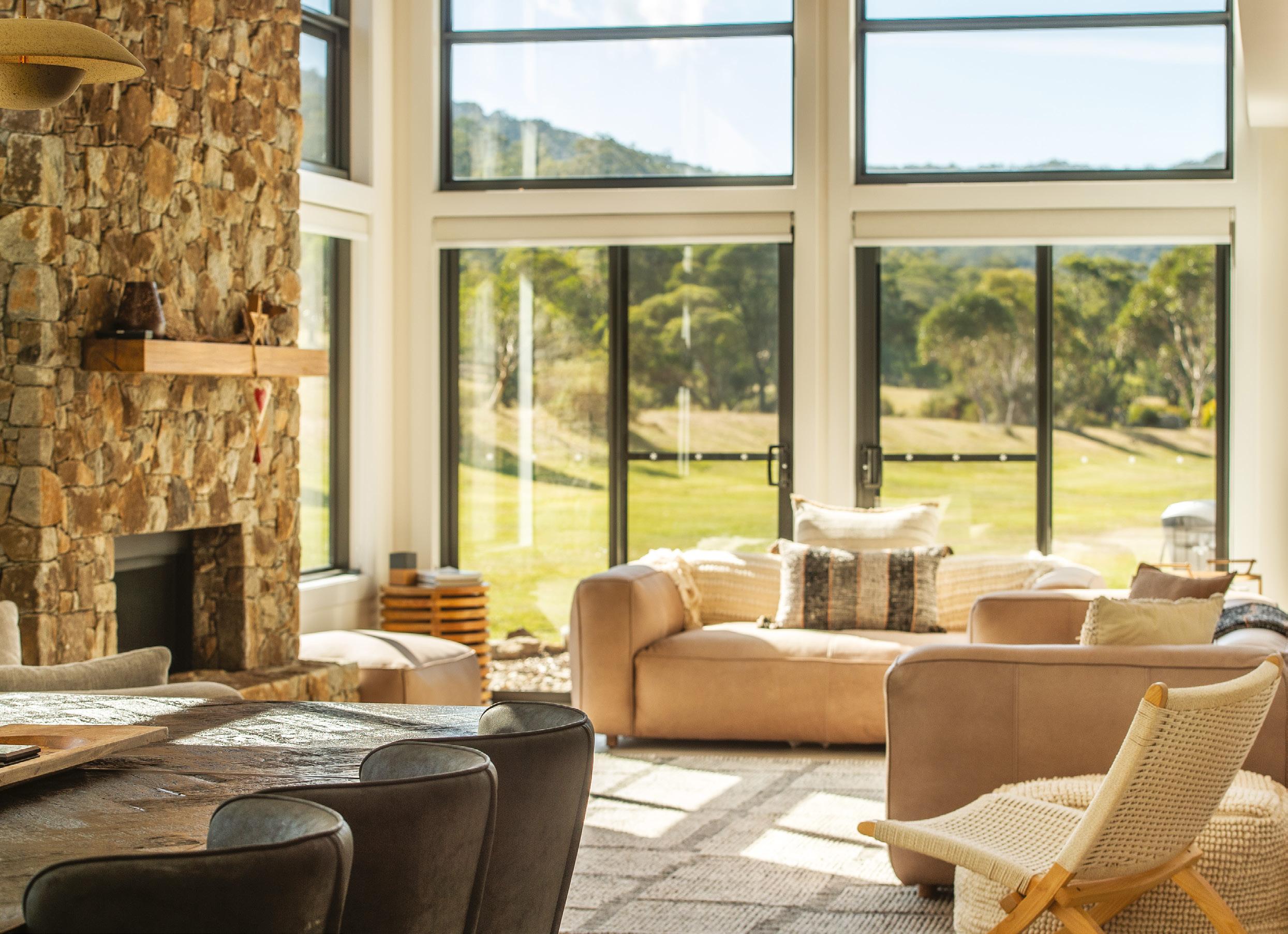
A 110-key Thredbo resort recently joined the Oaks portfolio.
MINOR HOTELS HAS acquired a 110key resort at Thredbo Valley in the Snowy Mountains, which it has repositioned under its Oaks brand.
Located on the fringe of Kosciuszko National Park, 15 minutes from Thredbo Village and the popular ski fields of Thredbo and Perisher, Oaks Lake Crackenback Resort caters to nature enthusiasts, families and snow sports travellers with on-site outdoor activities including golf, archery, tennis, kayaking, canoeing, trampolining, trail running, hiking, fishing and mountain biking.
“The stunning Snowy Mountains is a spectacular destination to explore all year round, and with travellers increasingly keen on domestic travel in the current climate, we are excited to add this unique property to our expanding portfolio,” said Minor Hotels Australasia Chief Operating Officer, Craig Hooley.
“This resort positions us well to tap into rising demand for wellness and experience-
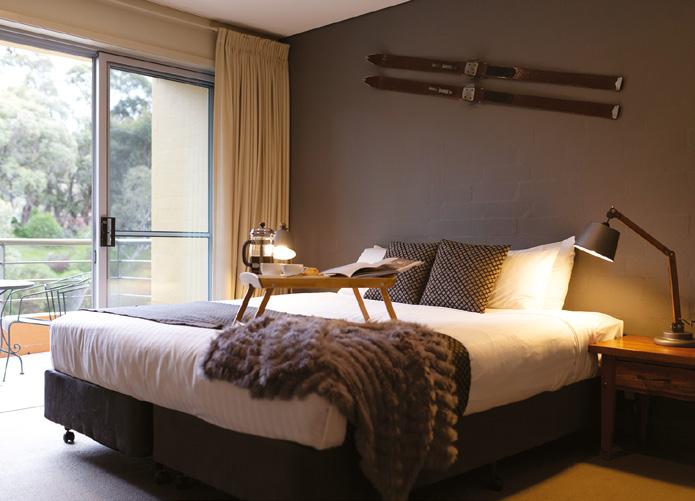
The resort features a mix of studios, apartments, villas and chalets
based travel, striking an ideal balance between scenery, relaxation, self-care and outdoor activities.”
The property also includes several spaces for meetings and events an indoor heated pool, sauna, gymnasium, an independentlyoperated Spa and Wellness Centre, and two dining venues.
Oaks Lake Crackenback Resort will also deliver on the recently announced vision for the repositioned Oaks.
“We are excited to work with local partners
to bring our new service and brand hallmarks to life,” Hooley added.
“Following the ski season, we’ll be introducing an integrated lobby space where guests and locals can cosy-up with a baristamade coffee and enjoy freshly baked goods or an iconic Oaks lamington.
“A grab-and-go pantry will also be stocked with local produce and travel essentials for a day exploring the Snowy Mountains.”
The accommodation offering includes a mix of studios, apartments, villas and chalets, including three-bedroom options, with many offering outdoor dining, fireplaces, spacious living areas and mountain and lake views.
The Thredbo resort is the latest property to join the Oaks Hotels, Resorts and Suites portfolio with 2025 additions including Oaks Melbourne St Kilda Road Hotel, Oaks Melbourne Flemington Suites, Avani Melbourne Jazz Corner Residences, Oaks Geelong Suites, Oaks Geelong Vue Suites, and Queen’s Wharf Residences in Brisbane.
















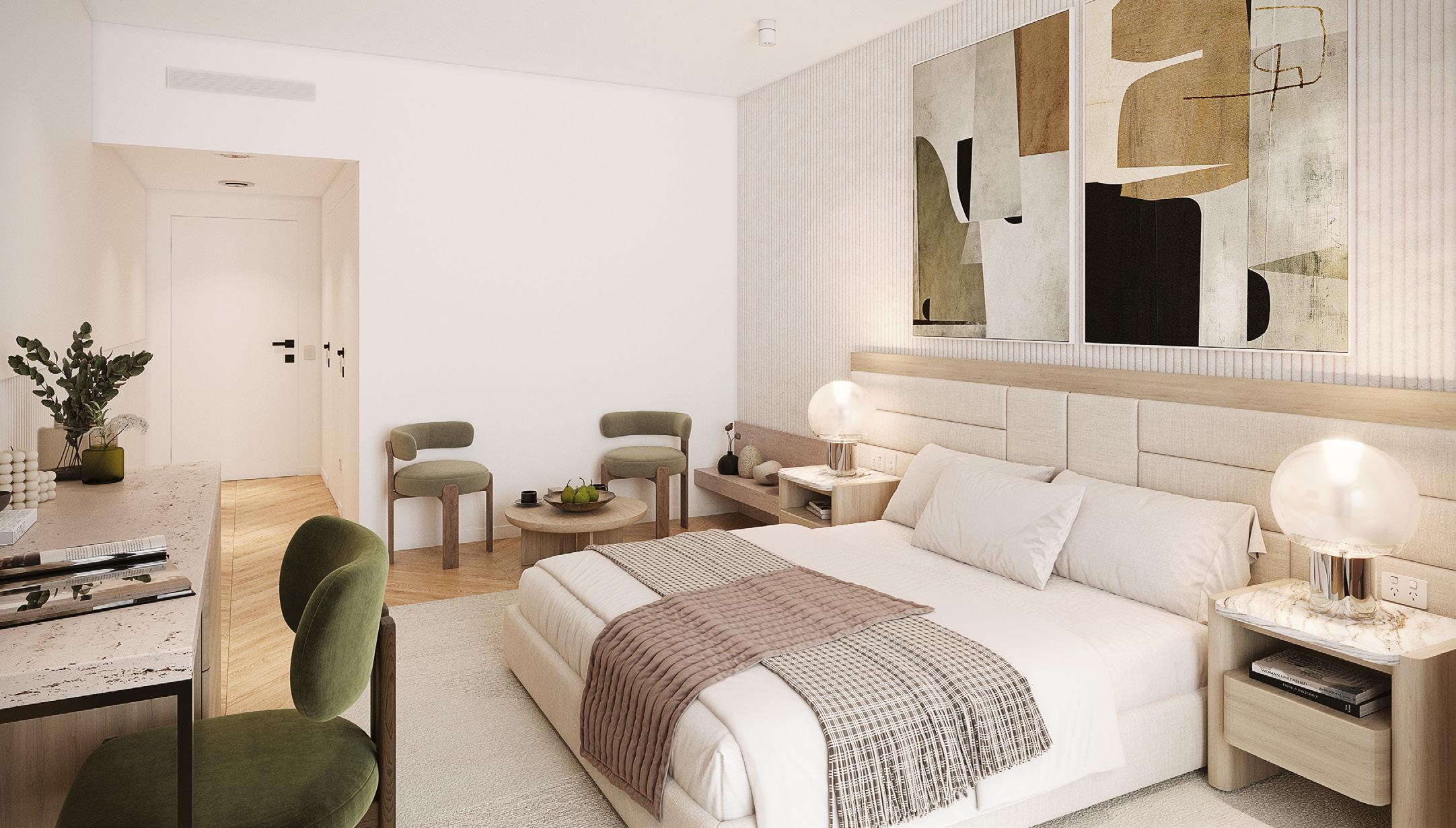
La Vie Hotels and Resorts has signed a management deal with Giovaninno Navarra and Tony Merhi.
company La Vie Hotels and Resorts has acquired the management rights for the former Rydges Norwest in Sydney’s Hills District.
The property has been rebranded under a white label as Visy Dior Hotels International and is set to undergo a transformation worth up to AU$18 million over the next 18 months.
Visy Dior Hotels International features 132 rooms, including Executive Spa rooms and Balcony King rooms, a restaurant, swimming pool, fitness centre, and extensive function facilities.
The full-scale renovation includes plans for redesigned guest rooms and function spaces, innovative dining experiences, and the development of a new grand ballroom to host 880 guests with a large dance floor.
La Vie Hotels and Resorts Chief Operating Officer, Marcus Hanna, welcomed the addition of Visy Dior to the company’s growing portfolio of hotels and resorts.
“The Hills region is one of Sydney’s most dynamic business and lifestyle hubs,” Hanna said.
“This project reflects our mission to deliver elevated guest experiences, and we are
confident Visy Dior will redefine hospitality standards in the area.”
The Visy Dior Hotels International brand is owned by prominent local businessmen, Giovaninno j F Navarra and Tony Merhi, CEO of Merc Capital.
The Navarra family owns and operates successful venues including Conca D’oro Lounge, Le Montage, Curzon Hall, Oatlands House Estate, and Eschol Park Events Centre.
Navarra said the partnership with La Vie Hotels and Resorts represents “a defining moment in the evolution of the Visy Dior brand”.
“La Vie’s operational expertise and proven leadership in hotel management align seamlessly with our vision to create a flagship destination that embodies sophistication, innovation, and people-first luxury,” said Navarra.
“Together, we are not just transforming a property – we are setting a new industry benchmark in the Hills District. This collaboration will deliver an elevated 5-star experience that resonates with today’s discerning traveller while establishing a powerful blueprint for the future of modern hospitality.
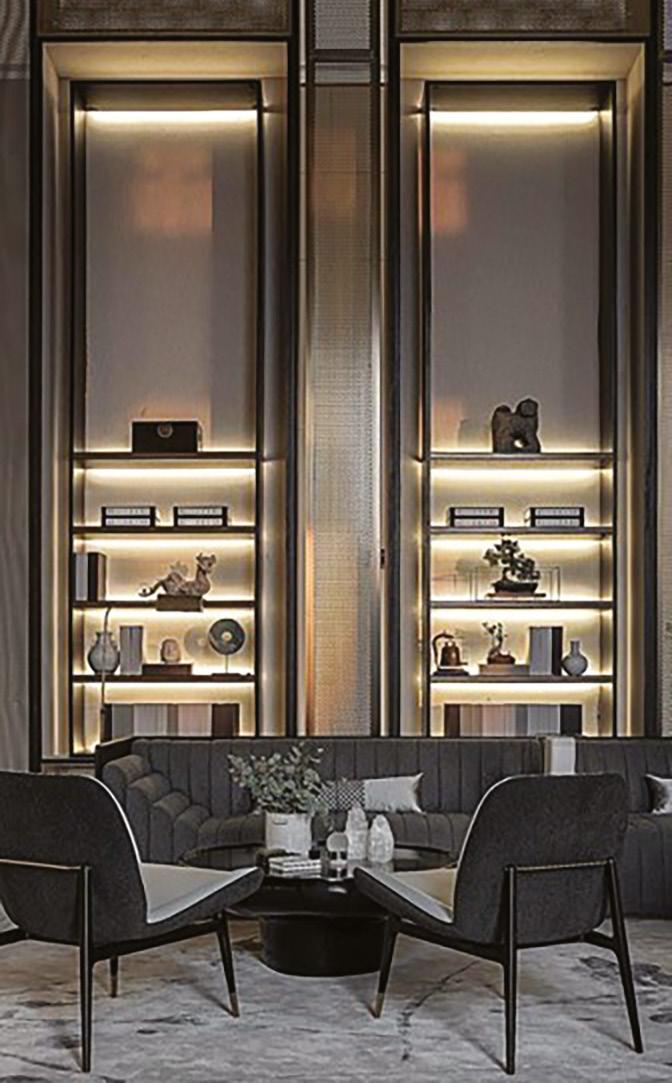
The property has been rebranded under Visy Dior Hotels International
“The revitalised Visy Dior Hotels International will be a community cornerstone, offering refined service, curated experiences, and exceptional hospitality for both travellers and locals.”
Mondrian Gold Coast opens biowellness spa for locals and guests.
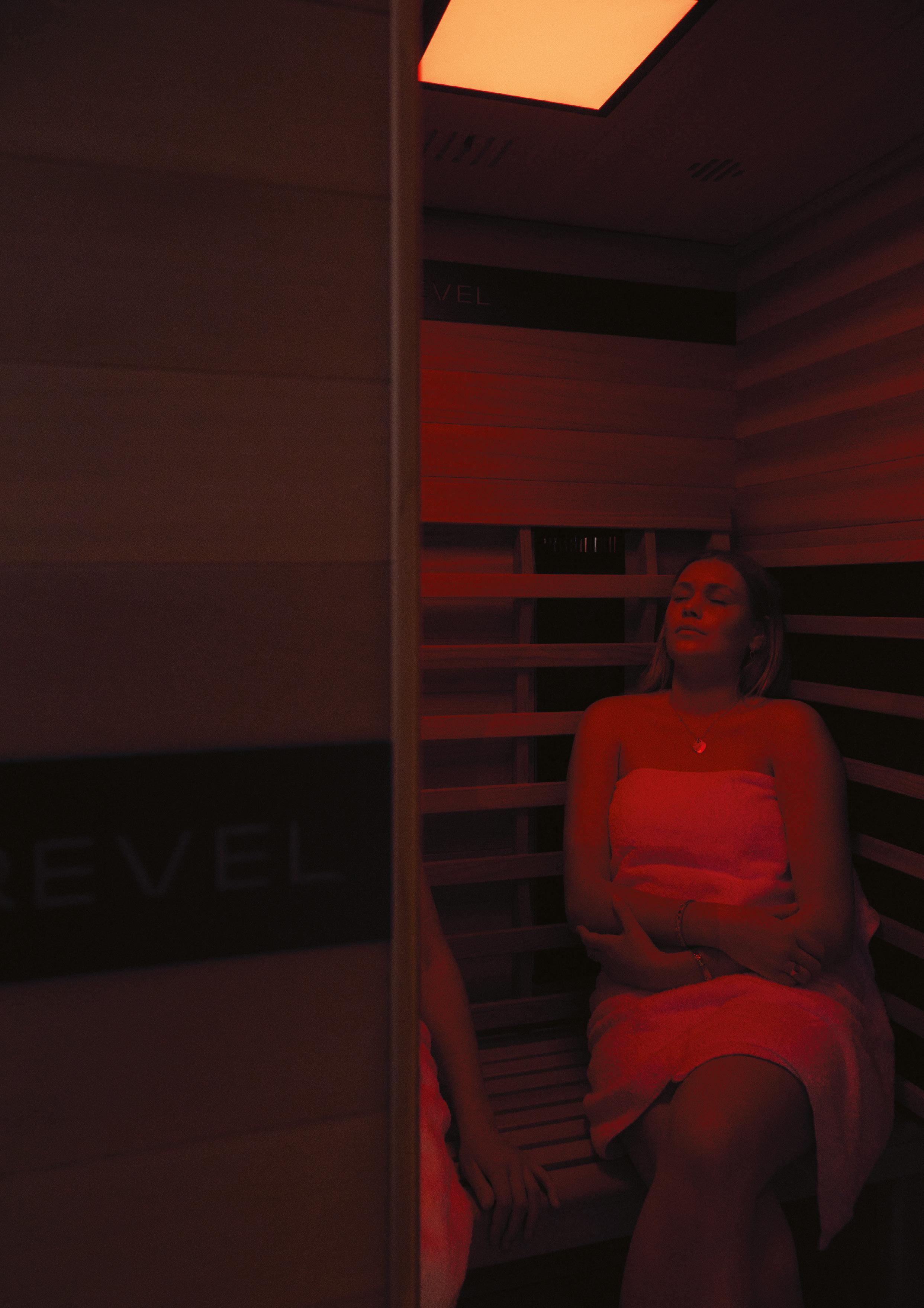
MONDRIAN GOLD COAST has begun welcoming locals and guests to what it’s calling ‘Australia’s first bio-wellness spa’.
Located on level two, Ciel Spa aims to deliver a new standard in holistic health to support longevity, resilience and cellular restoration.
Touchless therapies, designed to optimise mental clarity, improve sleep, reduce inflammation and accelerate recovery, include mitochondrial light therapy, contrast therapy, a zero-gravity dry float, infrared sauna, and a custom-built Himalayan salt room.
“Ciel Spa is more than a destination spa – it’s a commitment to improving longevity and connection though the power of holistic biohacking and traditional therapies in Australia’s first bio-wellness spa,” said Mondrian Gold Coast Director of Spa and Wellness, Amy Hides.
“We’ve curated every treatment, handpicked every product and tailored each guest experience to deliver a wellness offering that feels personal, elevated and deeply restorative. Our guests leave feeling rejuvenated with a greater sense of awareness and zest for vitality.”
Clinical therapies including skin needling, cosmetic doctor services and LED-enhanced facials are also available.
AC Hotel Gold Coast is set to open in mid-2026
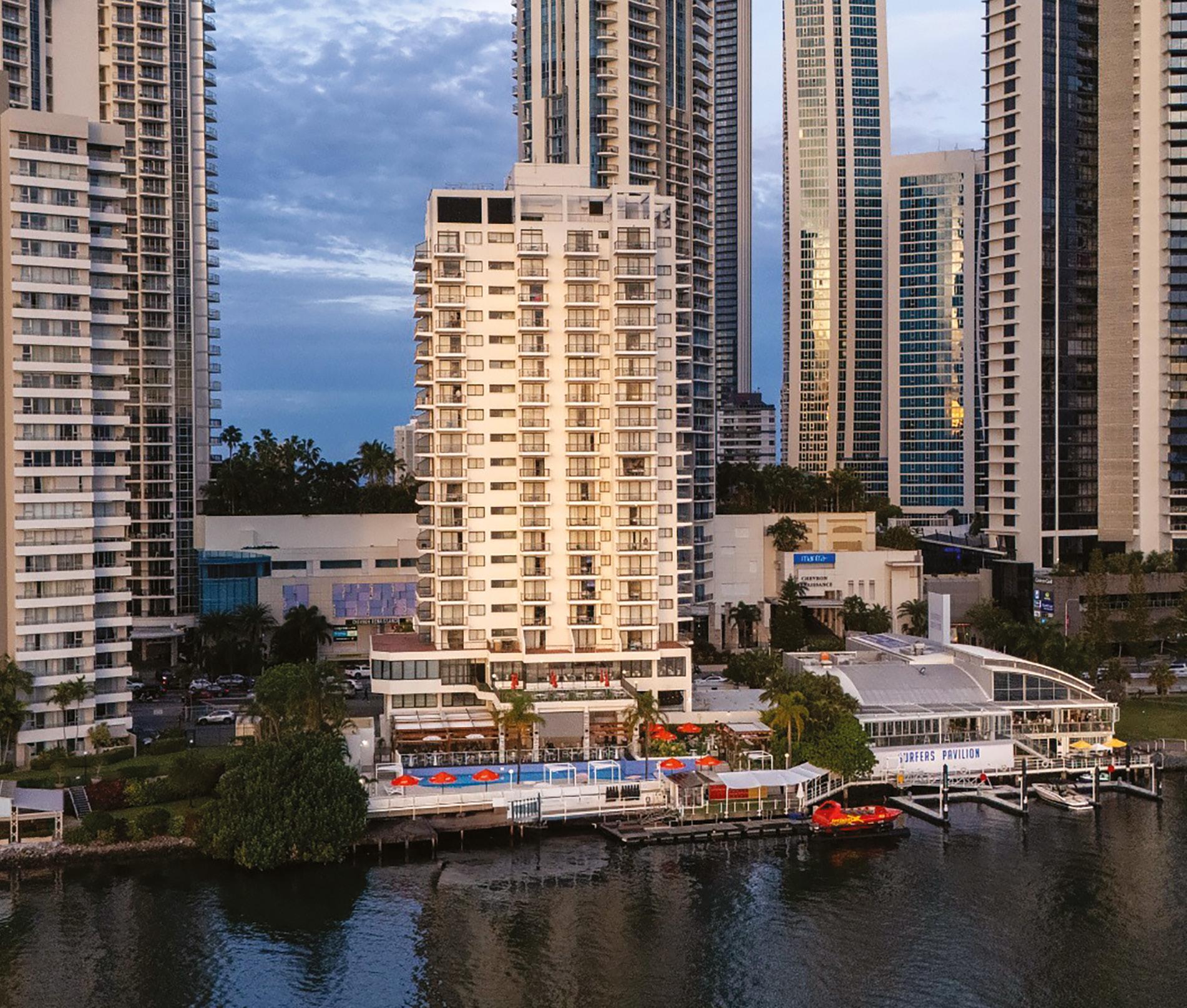
Marriott International has signed a deal with KS Hotels and Resorts to renovate and rebrand a Surfers Paradise property.
MARRIOTT INTERNATIONAL IS set to bring its AC Hotels brand to Queensland for the first time following an extensive renovation of a Gold Coast hotel.
Vibe Gold Coast, which was recently acquired by KS Hotels and Resorts, is set to undergo a full renovation, commencing later this year, before opening as AC Hotel Gold Coast in mid-2026.
On completion, the upscale lifestyle hotel, located in the heart of Surfers Paradise, will feature 202 guest rooms, an all-day dining restaurant, AC Store, AC Lounge and bar, swimming pool, gym, and a 120-person meeting and events space.
“We are thrilled to collaborate again with KS Hotels and Resorts following their latest acquisition in Australia, and we are excited to expand our growing footprint on the Gold Coast,” said Marriott International’s Vice President Hotel Development, Australia, New Zealand, and Pacific, Richard Crawford.
“It is a market we know exceptionally well, through our long-standing operation of two of the city’s highest-performing resorts,” Crawford said, pointing to the success of JW Marriott Gold Coast Resort and Spa and Sheraton Grand Mirage Resort, Gold Coast.
“Importantly, AC Hotel Gold Coast will offer our loyal guests, particularly our 228 million Marriott Bonvoy members, a new price point and product offering,” he added.
Marriott has previously signed agreements to debut its world-renowned luxury brands, including The Ritz-Carlton, St. Regis Hotels and Resorts, and The Luxury Collection brands to the Gold Coast.
Marriott International Director Hotel Development, Australia, New Zealand and Pacific, Tristan Cooper, said the Gold Coast is a key location for future growth.
“We anticipate having 50 hotels open across Australia, New Zealand and the
Pacific by the end of 2027, three of which will be in the Gold Coast – a major growth location for our portfolio,” Cooper said.
AC Hotel Gold Coast will be the second AC Hotel in Australia, following AC Hotel Melbourne Southbank, which opened in 2022. The AC Hotels brand portfolio currently includes 235 open properties globally with over 170 in the pipeline.
Catering to both business and leisure travellers, the brand aims to deliver “elegant, purposeful” design with flexible spaces and signature moments in the guest experience.
Crawford said Marriott International is seeing increasing interest from owners looking to rebrand existing hotels and tap into the hospitality group’s global reach.
“Close to 40% of our global hotel signings in 2024 across APEC were existing hotels seeking to join our portfolio to maximize their competitive advantages and future proof their success,” Crawford said.

With a portfolio of over 560 properties across 57 countries, Minor Hotels is reimagining the future of travel through innovation, integration, and heartfelt hospitality.
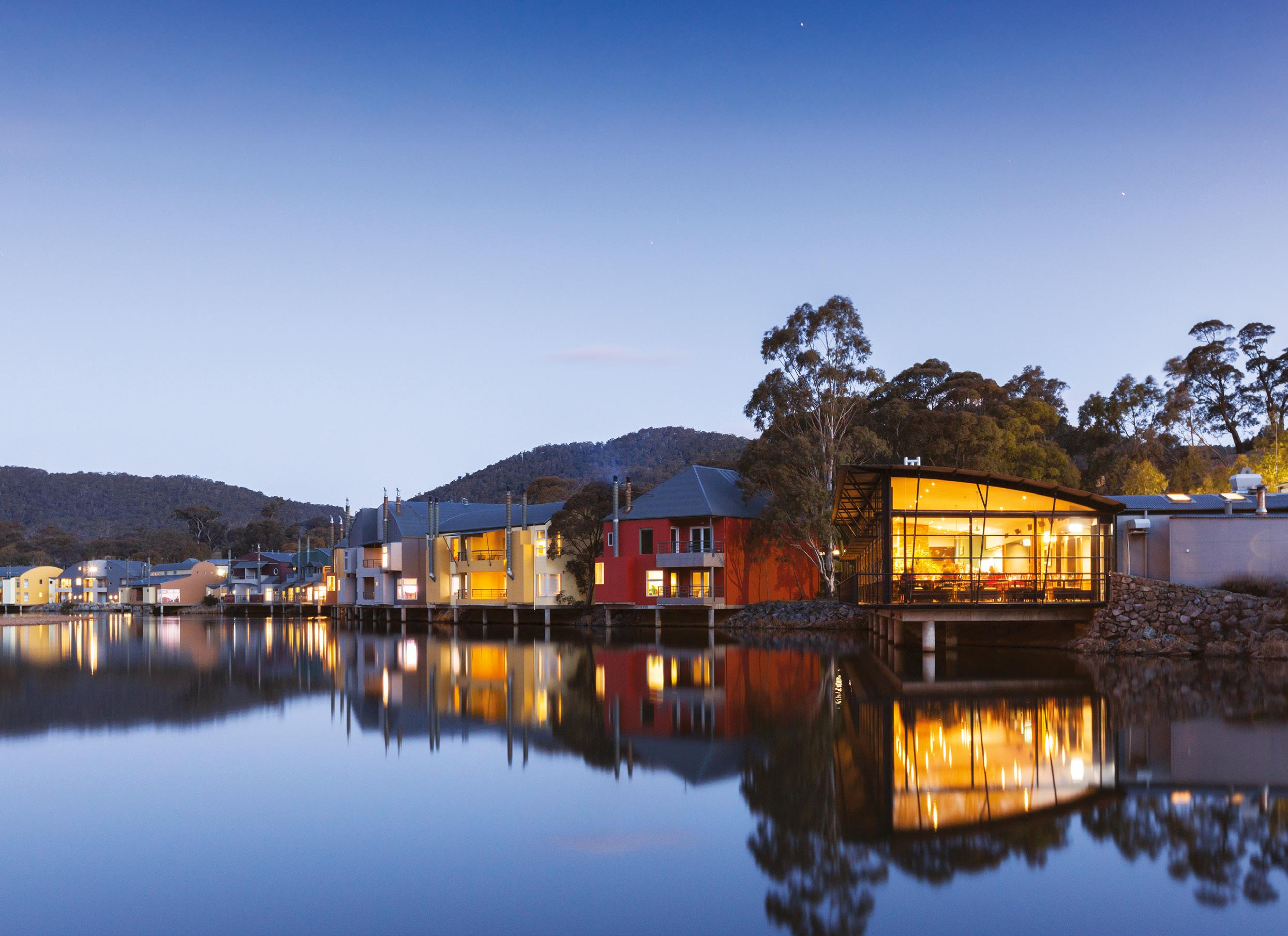
Oaks Lake Crackenback Resort recently joined Minor Hotels’ portfolio
Minor Hotels recently announced the launch of four new hotel brands, including the group’s first soft brands, marking a significant milestone in its continued global growth. The addition of The Wolseley Hotels, Minor Reserve Collection, Colbert Collection, and iStay Hotels will allow Minor Hotels to expand into new markets and offer distinctive hospitality experiences across the luxury, premium, and select segments.
In June, Minor Hotels proudly welcomed Oaks Lake Crackenback Resort to its growing portfolio. Nestled in the Snowy Mountains, the all-season resort invites guests to reconnect through adventure and nature, from skiing and fly fishing to hiking and lakeside relaxation. The property reflects the evolving identity of the Oaks Hotels, Resorts & Suites brand, which is repositioned to align with the needs of today’s leisure and business travellers. Oaks’ brand evolution embraces lifestyle-driven design, localised experiences, and a more contemporary service ethos, ensuring that every stay feels both familiar and distinct.
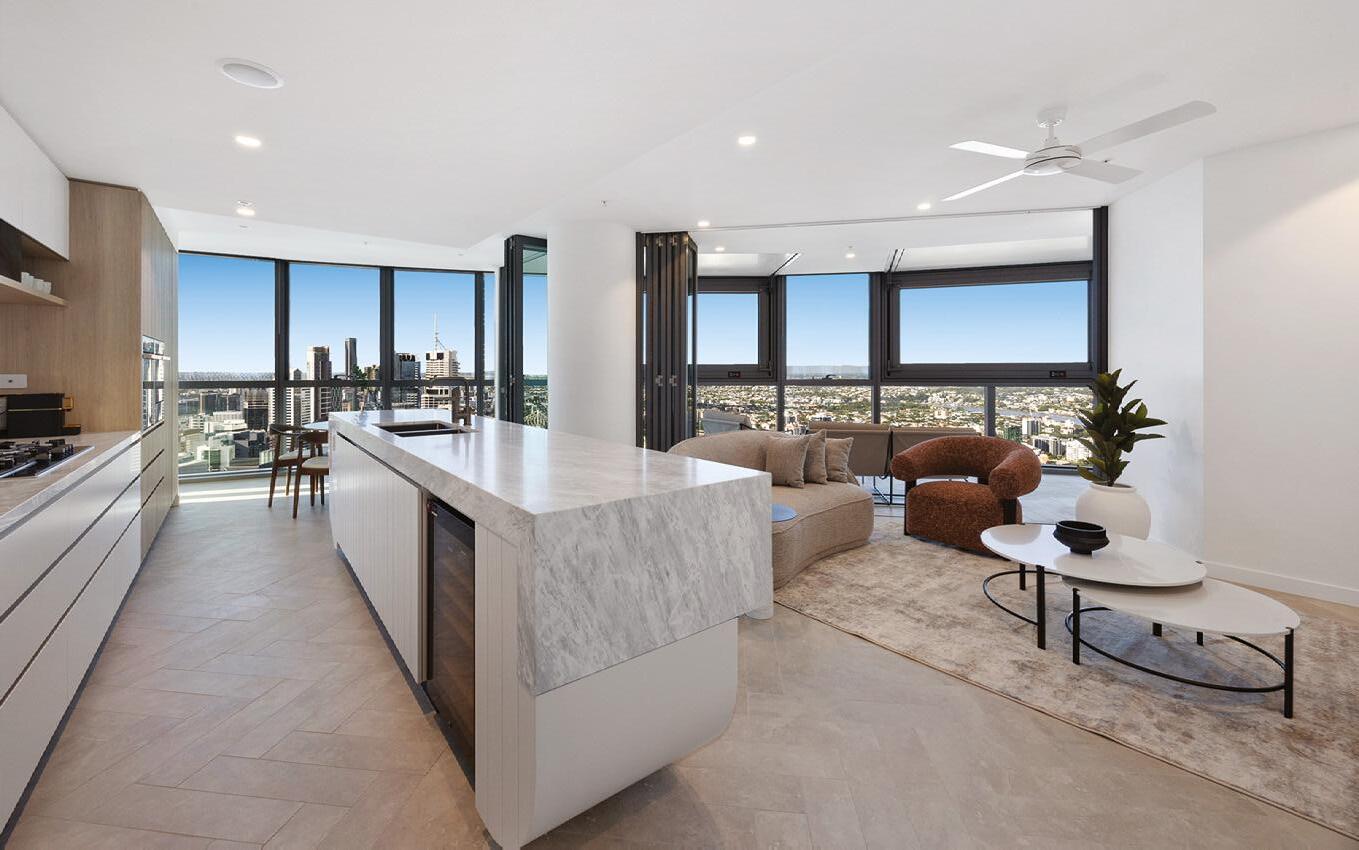
friendly mobile app, an integrated Minor DISCOVERY loyalty program, and a new B2B platform, Minor PRO. Together, these innovations ensure a seamless, consistent, and elevated experience for guests and partners around the world.
“As a true lifestyle property, Oaks Lake Crackenback Resort will deliver on our recently announced vision for the repositioned Oaks. We are excited to work with local partners to bring our new service and brand hallmarks to life”, says Craig Hooley, Chief Operating Officer for Minor Hotels Australia and New Zealand.
In March, Minor Hotels took a bold step forward by uniting trusted brands including Anantara, Avani, Elewana Collection, NH Hotels, NH Collection, Nhow, Oaks, and Tivoli, under a single global identity. This transformation introduced a refreshed Minor Hotels website, a user-
Minor Hotels’ momentum continues in Australasia with several highprofile developments including Queen’s Wharf Residences in Brisbane, a 64-storey landmark that redefines luxury urban living in the heart of the city’s iconic waterfront precinct. Combining architectural excellence with immersive guest experiences, the opening sets a new benchmark for elevated stays.
As Minor Hotels continues to grow, the company remains committed to delivering exceptional guest journeys, wherever they begin. With innovation at its core and connection at the heart of everything they do, Minor Hotels is shaping a bold new era in global hospitality.
To learn more, visit minorhotels.com
A year of bold new hotel openings for Ennismore.
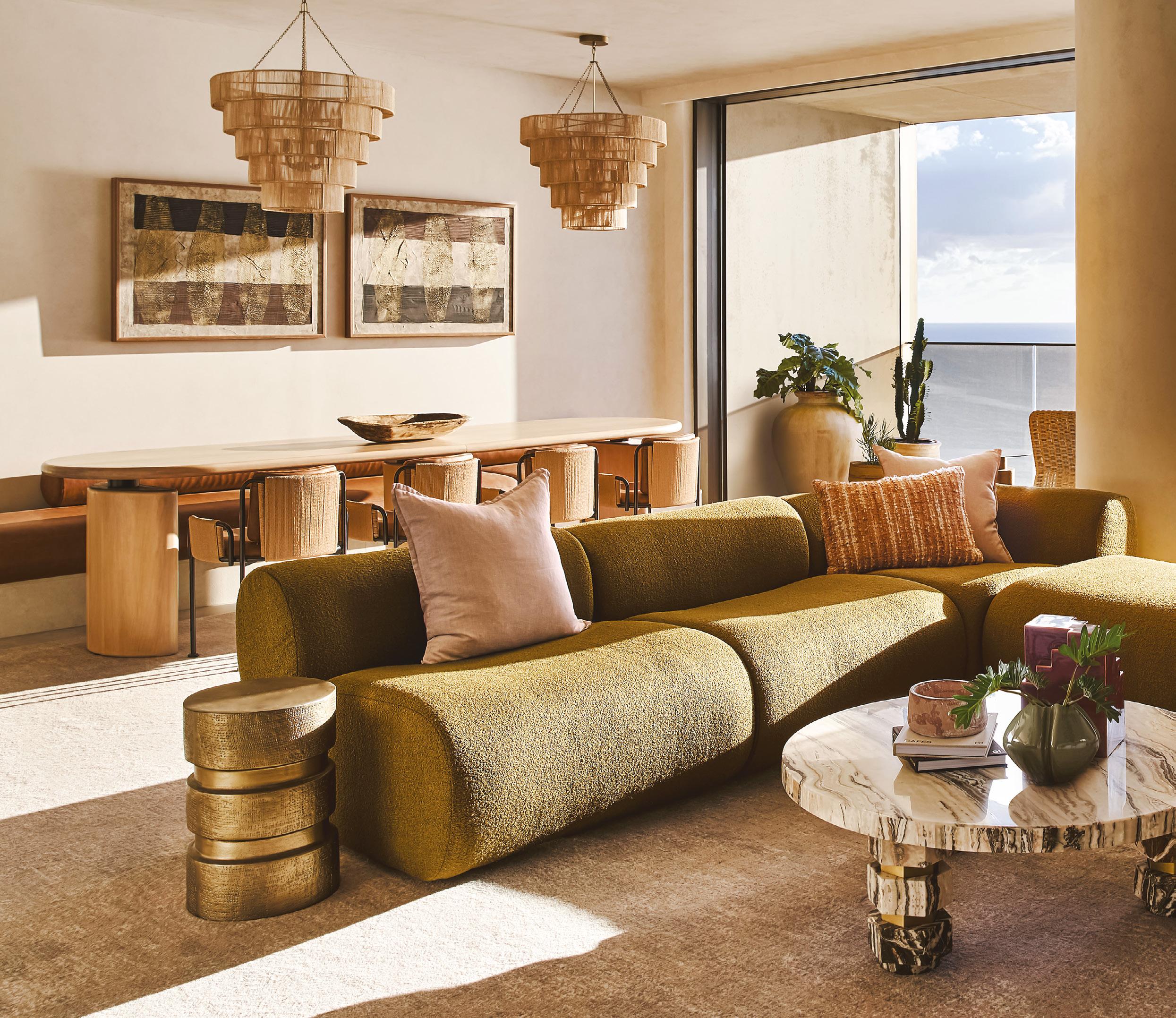
Breaking the mould and setting a new benchmark for lifestyle, Ennismore’s hotly anticipated arrival in Australia is underway, with four hotels opening this year alone.
Ennismore is a global collective of entrepreneurial and founder-built brands with creativity and purpose at their heart, including Mama Shelter, The Hoxton, Delano and SO/ among its 16 brands and two restaurant and bar groups. As the fastest-growing lifestyle hospitality company, Ennismore, a joint venture with Accor (which holds a majority share), knows how to craft meaningful lifestyle experiences through creative storytelling, innovative design, exceptional culinary destinations and dynamic programming.
This year, three of Ennismore’s renowned brands make their Australian debut, marking a significant milestone for the group as it enters a new era of growth in the Pacific region. These include Mondrian, a cultural gallery serving up innovation and creativity; 25hours Hotels, irreverent, individual hotels characterised by provocative urban locations; and Hyde, a brand grounded in music, freedom and a sense of discovery.
Sylvain Pasdeloup, EVP of Asia Pacific for Ennismore, said: “2025 marks a defining moment for Ennismore in the Pacific region as we introduce our unique brands to the market. Rooted in community and culture, our hotels, restaurants, and bars create authentic lifestyle
experiences by focusing on the details – welcoming locals and travellers alike. As free-spirited as it is sophisticated, Australia has long been in our sights, and we look forward to making our guests feel at home.”
For the brand’s debut property down under, Hyde Melbourne Place offers a fresh and unique experience for locals and travellers, blending contemporary design with Melbourne’s synonymous cultural essence. With its bohemian aesthetic, playful spirit, and deep roots in music and design, Hyde Melbourne Place is more than just a stay; it is a full sensory experience with vibrant spaces, live music moments, and style that truly speaks to the heart of Melbourne’s artistic community. Soaking up the city’s electric energy at every turn, the property has already earned a coveted spot on Condé Nast Traveller’s Hot List 2025
Mondrian Gold Coast’s opening on the shores of Burleigh Heads heralds a new era of coastal luxury, marking the debut of the Mondrian brand and the launch of the Group’s branded residences platform in Australia. A design-led escape anchored by the region’s relaxed rhythm, the 208room hotel with fully contained studios, suites, homes and beach houses is a retreat between the pines and pandanus. Not only a place to stay, but
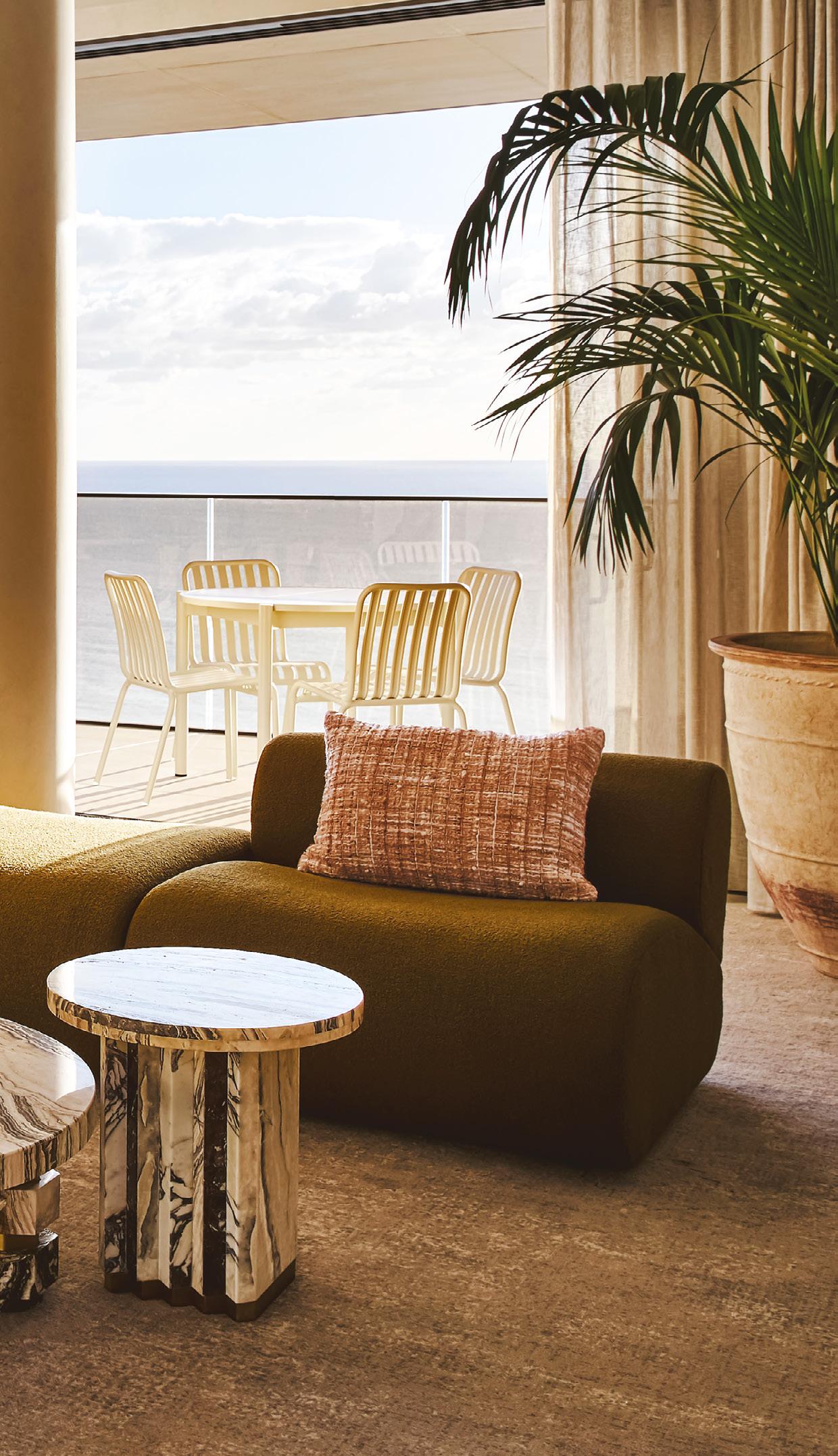
“2025 marks a defining moment for Ennismore in the Pacific region.”
Sylvain Pasdeloup, Ennismore
also a place to belong, it is home to LiTO, the ground-floor restaurant that embodies the spirited warmth of Italy, and Haven, which blends homegrown favourites with nostalgic flavours, as well as a fitness centre, CIEL spa, and 24-metre resort-style pool.
25hours Hotel The Olympia is for dreamers and renegades, a place for cinema lovers where the aesthetic pays tribute to the building’s arthouse origins as the Olympia Theatre. Opening in September, the hotel will feature over 100 guest rooms with exclusive artwork by Sydney artist Kubi Vasak, including three themed concept suites and four standout F&B concepts. Guests can enjoy Jacob the Angel, an English coffee house and bakery, The Palomar, a restaurant focusing on elemental techniques, and Mulwray, a chic cocktail and wine bar. A highlight for any visit will be Monica, a rooftop bar with inspiring views of Sydney.
Hot on the heels of the brand’s Australian debut in Melbourne, Hyde Perth will bring the vibes to Pier Street in the heart of the CBD in November. Inspired by Western Australia’s rich palette of colours and influences, the hotel offers bohemian-inspired guest rooms and suites, two dedicated meetings and events spaces, a destination restaurant and bar, and a lively speciality café that opens onto an outdoor pool area surrounded by lush, tropical landscaping. Dialling up the energy throughout the day, dedicated entertainment spaces will come to life with a curated programme of music and live performances in keeping with Hyde’s festival vibe. n
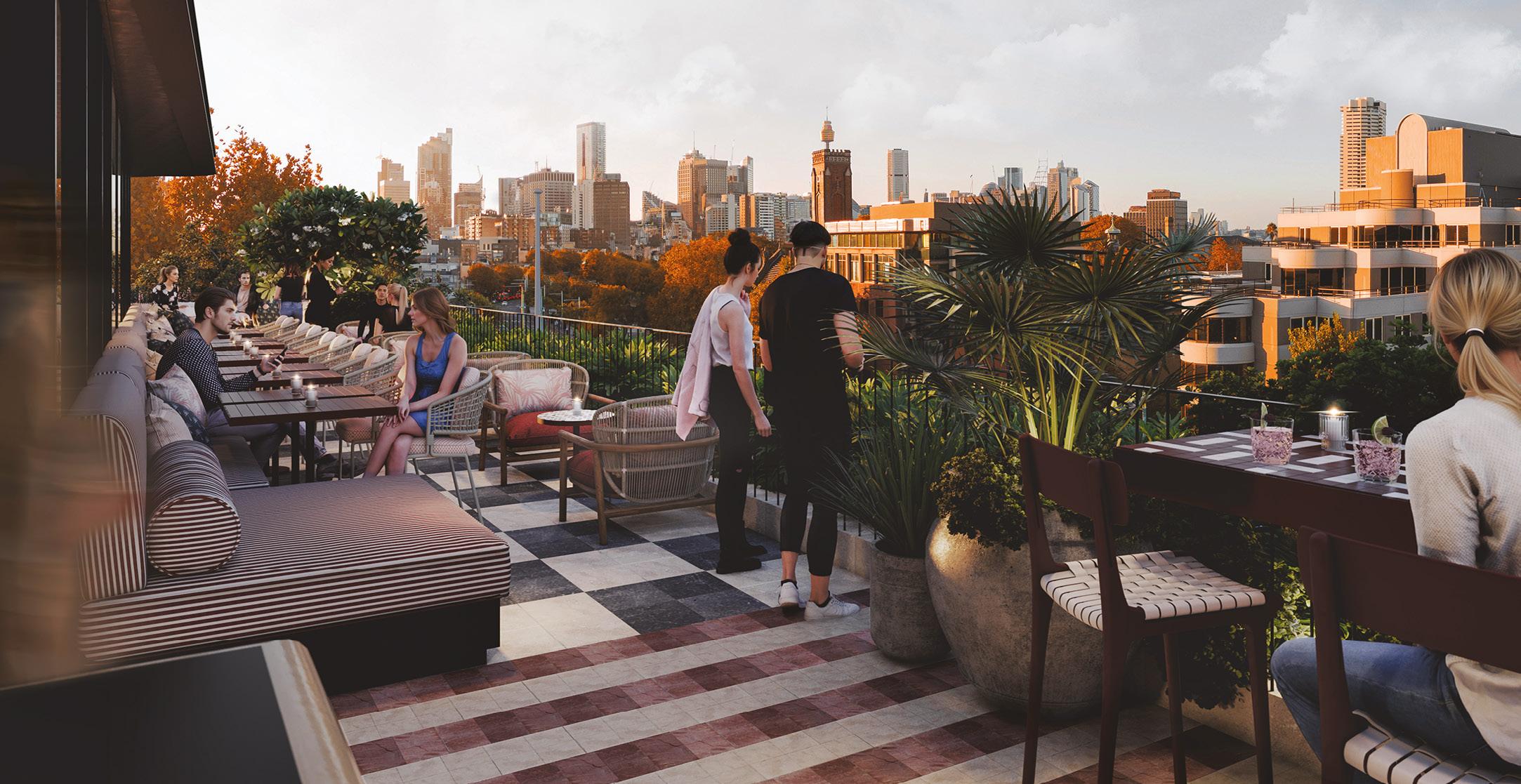
AA’s mid-year capital city hotel room report card shows improved performance overall.
By James Goodwin, Chief Executive Officer, Accommodation Australia
RELEASED its mid-year capital city hotel room report card recently, showing an improved performance overall –with capitals such as Hobart doing particularly well.
Don’t get me wrong, the news wasn’t all good, but there was definite improvement on the same period last year and hotels are now in a solid position moving forward into the remainder of 2025.
All of Australia’s capital cities experienced an increase in average occupancy rates over the first six months.
But five of them (Sydney, Melbourne, Adelaide, Darwin and Canberra) experienced a fall in the average daily revenue they earn for each booked room over the first half of 2025 compared to last year.
A look at the figures shows Hobart has done particularly well – its hotels experiencing the strongest improvement in
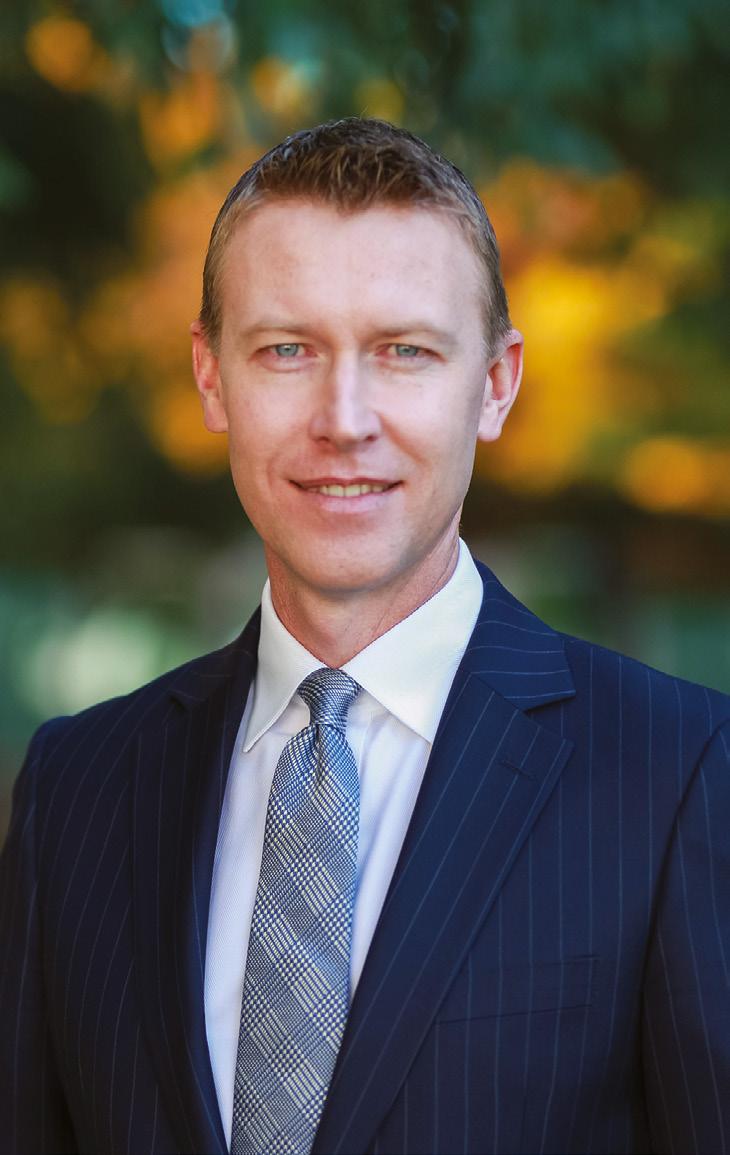
A national register of Short-Term Rental Accommodation (STRA) is in the interest of fairness.
By James Doolan, Strategic Director, Hotel Council Aotearoa
WHEN INDUSTRY SPEAKS with one voice, it’s time for councils and central government in New Zealand to act. The entire accommodation sector in New Zealand is unanimously calling for a national register of Short-Term Rental Accommodation (STRA). Notably, the largest international STRA platforms and online travel agents (OTAs) also fully support this call.
Local councils now need to step up and show alignment with industry. In particular, Auckland Council and Queenstown Lakes District Council should be doing more to demonstrate they understand the issue fully and support industry’s push for a fair and efficient regulatory regime.
STRA is no longer a particularly new or innovative product – AirBnB as the best-known platform was founded 17 years ago! Around the
world, tourism destinations have struggled with how best to bring STRA “inside the tent”. Without a reasonable regulatory regime, we could quickly reach a tipping point. Barcelona and New York are prime examples. Barcelona will phase out all STRA licenses by 2028 after residential rents surged 60% in a decade. New York’s Local Law 18 effectively banned shortterm rentals without host presence.
New Zealand doesn’t need to follow that path. The first step is a national register of STRA properties, ensuring all STRA operators are known, accountable and subject to consistent standards. It’s not about banning STRA; it’s about fairness, transparency and better data.
Rotorua has already taken action. Rotorua Lakes District Council has made a genuine effort to identify STRA properties through research
average occupancy rate for the six months –up 5.6% to 79.3%.
Hobart also experienced a healthy 3.8% increase in average daily room revenue. Darwin saw a strong improvement in occupancy rates (up 5.2%), but from a lower base.
Of all the capital cities it was Perth that experienced the highest overall average occupancy rate at 79.9%, followed by Hobart and Sydney.
But Sydney still holds the status as the city with the highest average revenue per room, followed by Brisbane and then Perth.
The AA report card for the six months also reveals the impact of outside events, like tours or weather on hotel room occupancy. The Gold Coast for example saw a fall in average occupancy primarily due to the cyclone impact in March.
But on the plus side, outside events like the British and Irish Lions Tour gave hotels in key capitals a much needed kick start.
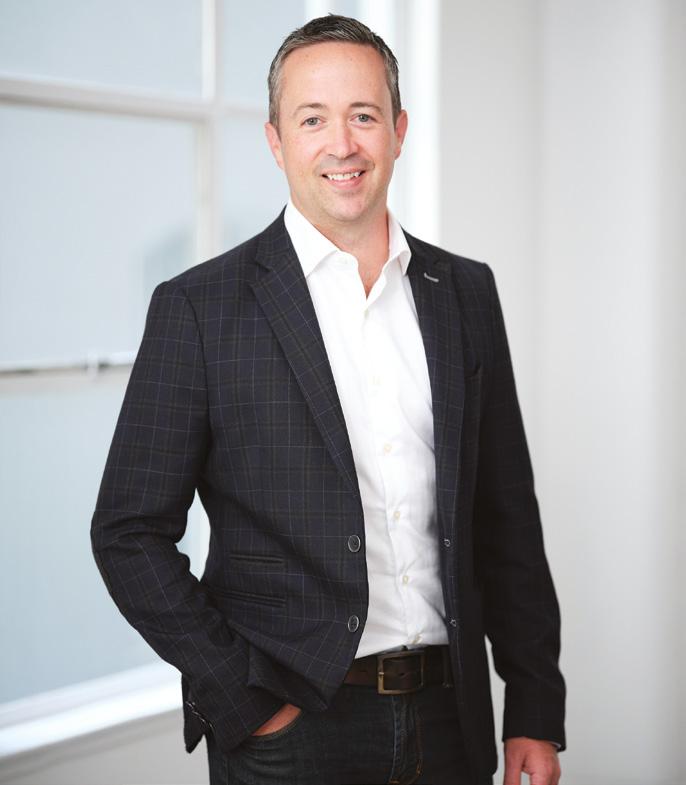
and other methods, but a national STRA register would be a much more efficient way of getting this baseline information for every local council in New Zealand.
Supporting a national STRA register is a litmus test of whether central and local government truly understand key tourism issues and are willing to work collaboratively with industry on real solutions.
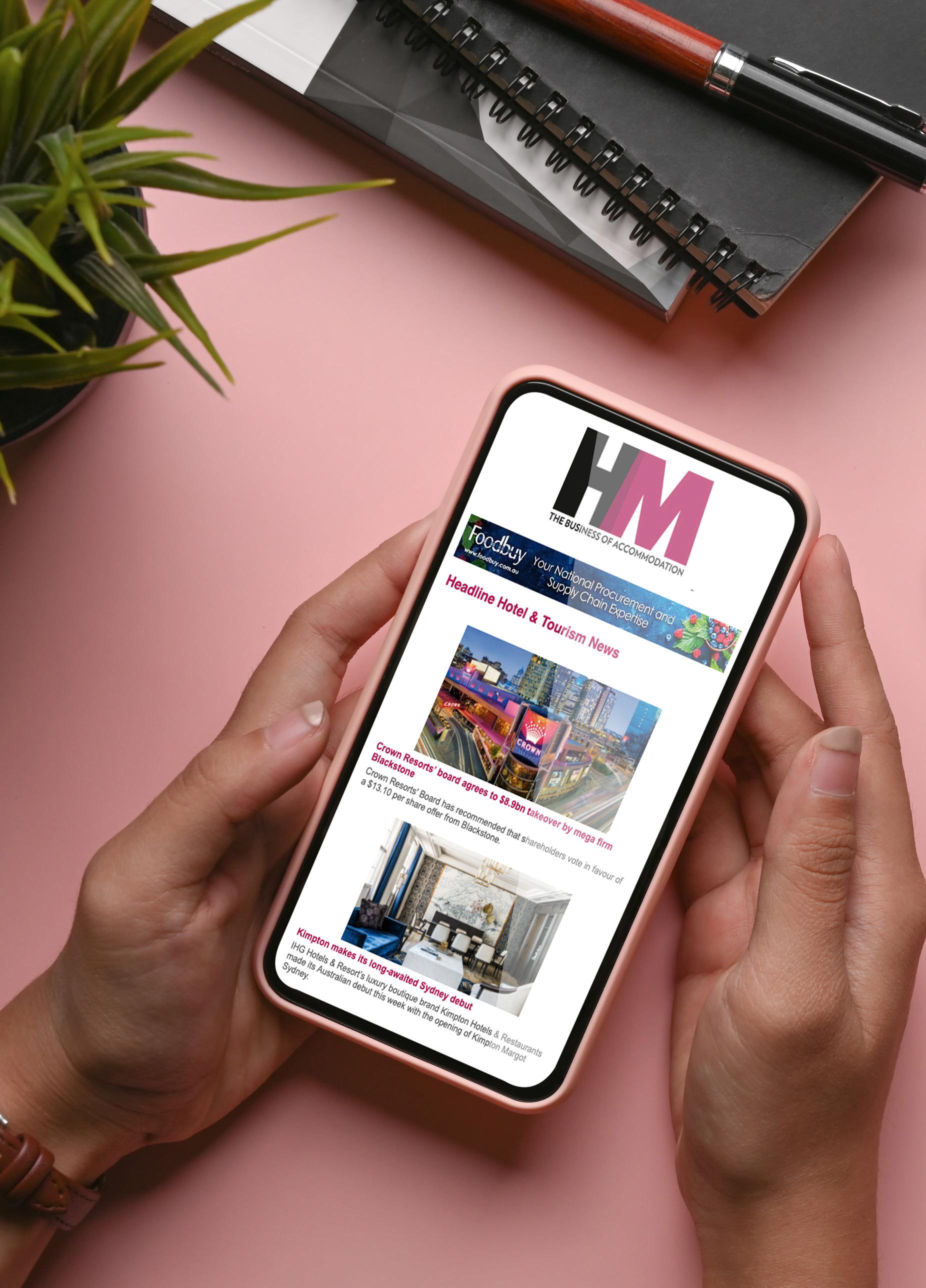
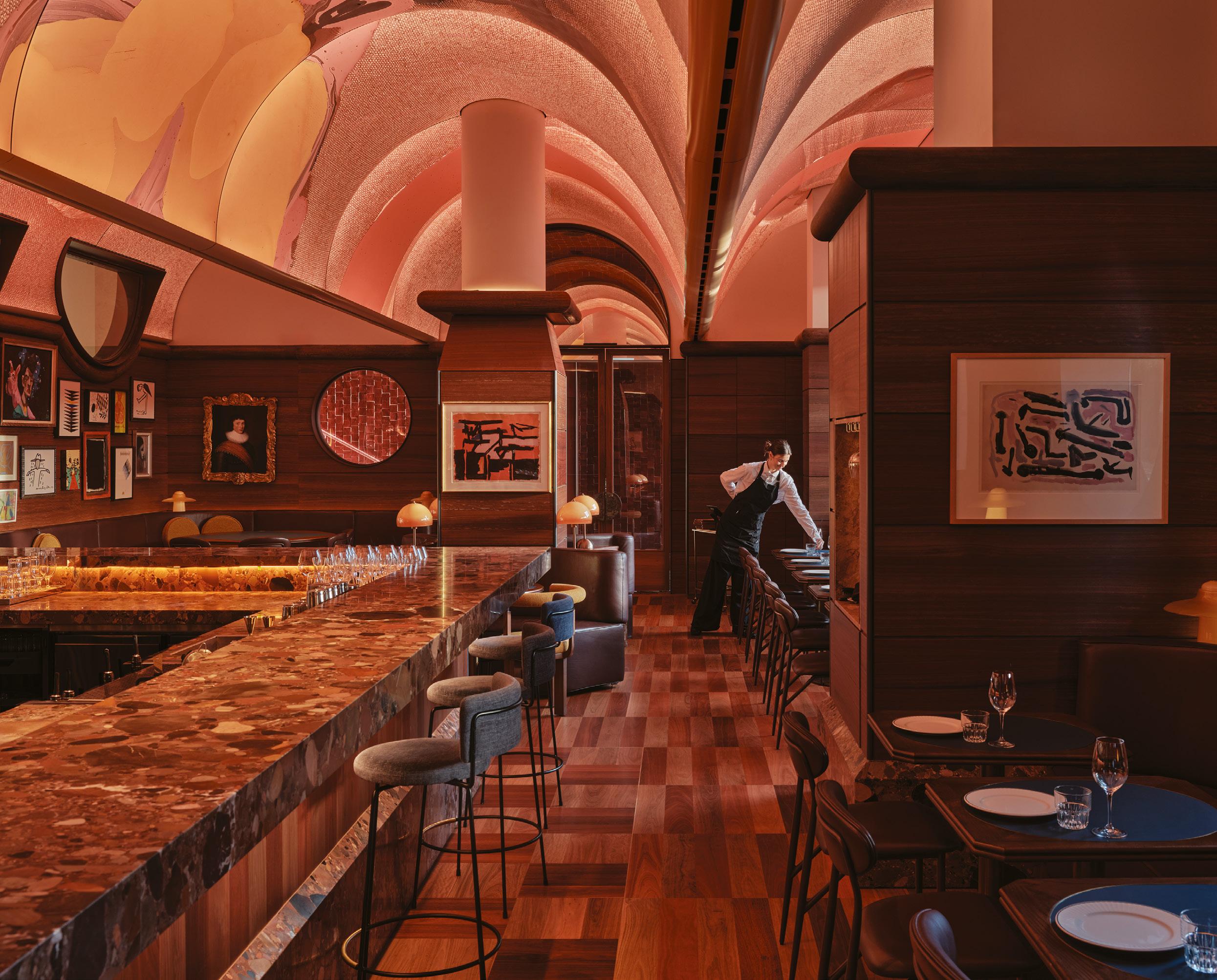
SIX MONTHS ON FROM OPENING, THE EVE HOTEL SYDNEY IS STILL GENERATING A BUZZ AROUND TOWN. RUTH HOGAN SPOKE TO GENERAL MANAGER BEN MELLOR ABOUT THE HOTEL’S APPROACHABLE PEOPLE, ARTFUL DESIGN, POPULAR F&B VENUES, AND BUZZY MIXED-USE PRECINCT.
Ben, tell us about the response to this hotel so far. Have you noticed any shift in demand over the winter period?
The brand is completely new to the market. So, by the time we opened in February, there was a lot of buzz. I did a lot of site inspections in that first sixweek period, mostly for people within the industry that wanted to have a look at the product. Then there was a real shift in clientele towards that high-end fashion corporate. We’ve had a few partial buyouts from large fashion houses, and they’ve booked in for the next six months as well. I don’t think the demand has dropped off. We were very focused on creating a rate that would suit the product.
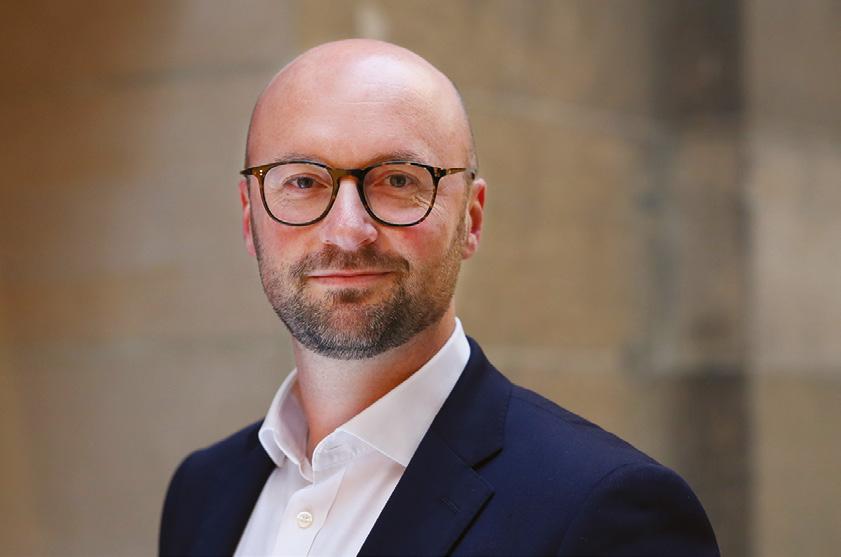
Tell us about the type of corporate guest you’re seeing at the hotel?
Most of the banking or finance sector corporates need to be in the centre of town, but there’s an entrepreneurial corporate that don’t need to be anywhere, and they’re the ones that like to be sitting in a bar or cafe during the day. They disappear to do yoga at lunchtime, and then they come back and sit by the pool. They’re the ones that are now coming in and enjoying the spaces.
People can spend 24-48 hours here and have a different food and beverage experience for each meal and be assured of the quality of what they’re going to be receiving as well.
Design plays a huge part in the guest experience at this hotel. Even from the car park, you have a glamourous arrival experience. Can you tell us a bit about that investment in design to create a boutique luxury experience?
Because Toga owns the whole site, there’s has been a real incentive to make sure that the entire experience is consistent. The car park, interestingly, was our biggest concern towards the end of last year. We didn’t want it to feel like you’re going in the back way. No matter where you go, it’s considered.
The investment into that portal area, is quite substantial. It’s the same marble that is used at the front door. The hotel scent is pumped through the car park, and the music that you hear as you get out of your car follows you throughout the hotel. It’s this transcendent experience, from the car park to the lobby, where you are greeted, and walked to your room. The whole thing is designed to feel seamless.
The investment across the precinct is huge. The slabs of marble throughout are not just cladding, it’s 12-inch solid marble.
Team members play the most important role in setting the tone of a hotel. How did you go about ensuring that the team is welcoming and approachable?
I’ve always said that Australians do luxury in quite a unique way. We’re not about stuffy luxury. It has a place, but we’re situated in Redfern and having a five-star property with a stuffy luxury attitude just wouldn’t work.
We spent a lot of time in that pre-opening period helping the team understand that whilst the product will be expensive, it’s not supposed to feel like it’s stuffy. Some people will be in suits, some will be in shorts, and everyone deserves to be here to experience it.
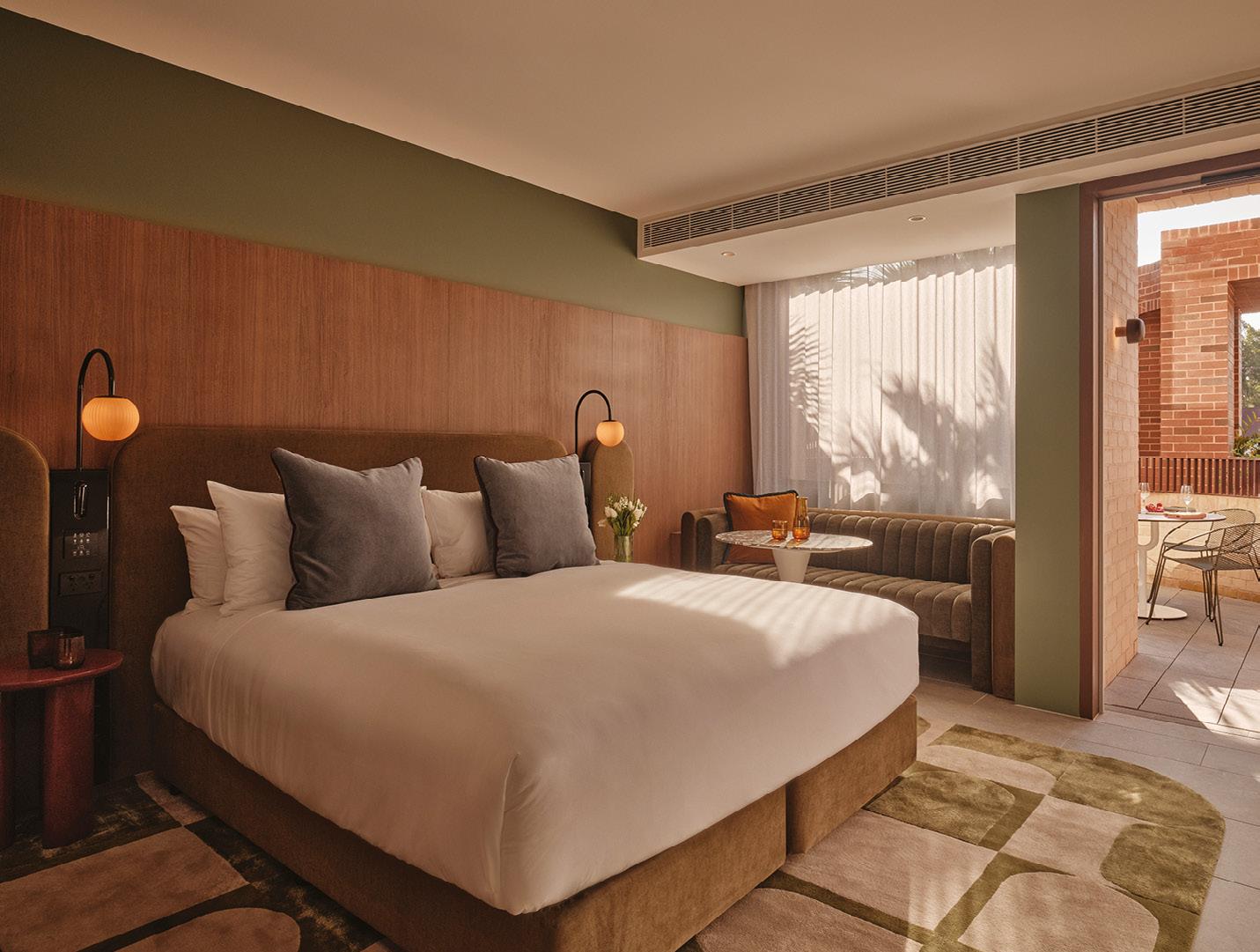
Many of our team members didn’t come with that five-star experience, which was good in some ways, because we could teach them from scratch. It’s been great to see people embrace hospitality.
Tell us about some of the other special touches designed to enhance guest experience.
We’ve got this beautiful Range Rover Sport, and anyone who books a suite is offered a complimentary airport transfer. We don’t charge for early check in or late check out. If it’s available, you can have it. Something that’s irked me for years is this continual upsell. Allan [Vidor, Toga Managing Director] was really supportive of that. He likes the idea of us being generous with what we have.
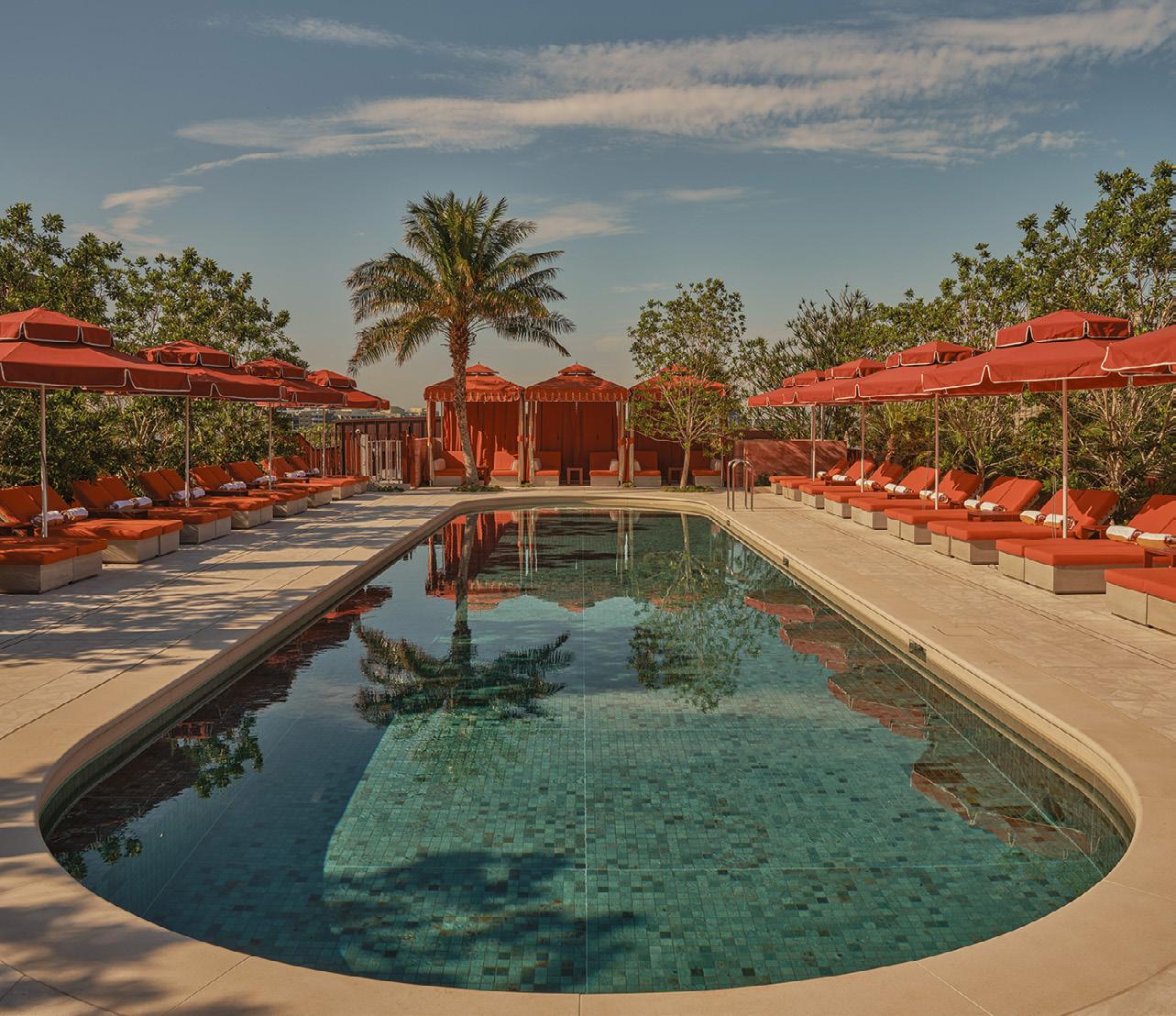
We make a real effort to ensure that every guest gets escorted to the room, particularly for their first time, and shown around the room. We’ve got a 102-room hotel so we can do that very easily. If there’s a queue at reception, we won’t do it. But if not, why wouldn’t we?
I think there’s a real impetus from our side to try and keep it as human as possible.
We do turn down for all guests – it’s not just for suites or higher-paying guests, which is pretty unique in this market.
Tell us about the impact the Wunderlich Lane precinct has on the business and the activations to keep the place alive over the winter period.
Having Toga invested in the whole precinct means that there’s a shared vision for its success.
In winter, it can be a bit difficult to get people into city hotels – they usually decide to go skiing or go to the tropics.
In June, Wunderlich Lane had NightShift, a week-long festival of music, art, pop-up dining and bar takeovers to showcase all the different venues and increase patronage through the precinct during the week. n

1 HOTEL MELBOURNE IS RECOGNISED FOR ITS SUSTAINABLE DESIGN ETHOS, FEATURING MORE THAN 7000 PLANTS, 4500SQM OF RECLAIMED TIMBER AND 2000 ORIGINAL ELEMENTS. FORMER STARWOOD HOTELS VICE PRESIDENT OF DESIGN REBECCA KING SPOKE TO RUTH HOGAN ABOUT THE DESIGN DECISIONS AT THIS “NATURE-INSPIRED” PROPERTY.
Can you tell us about the extensive work involved in reclaiming existing timbers and materials throughout this design?
Reclaiming existing timbers from the building site was both a deliberate design choice made as a celebration of location, and a play towards sustainable practice. Some of the reclaimed timber was sourced from Melbourne’s metro tunnel excavation to decommissioned railway bridge, and you’ll see this used on the monumental staircase and the headboards in all the guest rooms. But most notably, we were
able to salvage some of the timber from the old subaquatic wharf on which the hotel was built which you’ll now see repurposed in the entry way of all 277 rooms – each piece is unique and intricately marked by the burrows of tiny marine worms.
Tell us about the biophilic element of this design and the work involved in maintaining these elements.
The design takes strong cues from nature as a reflection of 1 Hotel’s ‘commitment to sustainability and reverence for the land’. There’s a lot of raw material usage, with

examples include hand-hewn timbers, tumbled stone, and supple aniline leathers require little maintenance and gather more character over time. Again, deliberately chosen to continue adding colour to the hotel’s story as time goes on. There’s also a heap of live flora incorporated throughout the design too, which really helps to bring the outside in.
How have local history and culture been infused into the design?
The site’s rich maritime history was a constant source of inspiration, amounting in a design that is entirely unique and individual to Melbourne. The site’s nautical heritage has been integrated into the design to establish a deep sense of place, seen in detail from the blackened

steel frames that echo the original goods shed, to split faced granite accents, to rope details on bespoke chairs in the public area.
How have public spaces been designed for work, relaxation and socialisation?
Nothing was designed by accident – the intent was to build a layered, tactile environment that felt lived-in, personal, and inherently human. My favourite example of this is in the lobby
Reclaimed timber sourced from Melbourne’s metro tunnel excavation has been used for the headboards in all guest rooms
bar – the space is multi-purpose and flows effortlessly, inviting guests to use and exist in the space in their own way. Open sight lines link each ground floor zone, so as you move through the space, you feel the energy of those around you.
How are sustainable design decisions impacting the bottom line?
I know the eco-conscious narratives often get the spotlight, but the bottom line is that hotels
are inherently unsustainable so our approach to the design was about hotels better. Utilising local materials played a big role in this, and throughout the entire design process, we found ourselves questioning what can we upcycle and what can we source locally from furnishings to finishings and found objects.
The Crane Bar (main lobby bar) is a great example of this. Every single piece of furniture in that space was custom made, designed specifically for the hotel. From what I understand that level of customisation is quite rare in Australian hospitality. The use of local Australian Blackbutt timber is another great example, and a first for the 1 Hotel brand. Filtered water stations in every room not only cut down the need for single-use plastics at the hotel, which is another one that feels unexpected.
What feeling do you hope guests will walk away with based on their experience of the hotel design?
Every design choice was made with the intent to make the hotel feel like a home away from home for guests – a place to inhale, take a deep breath and unwind from the chaos of the everyday. n


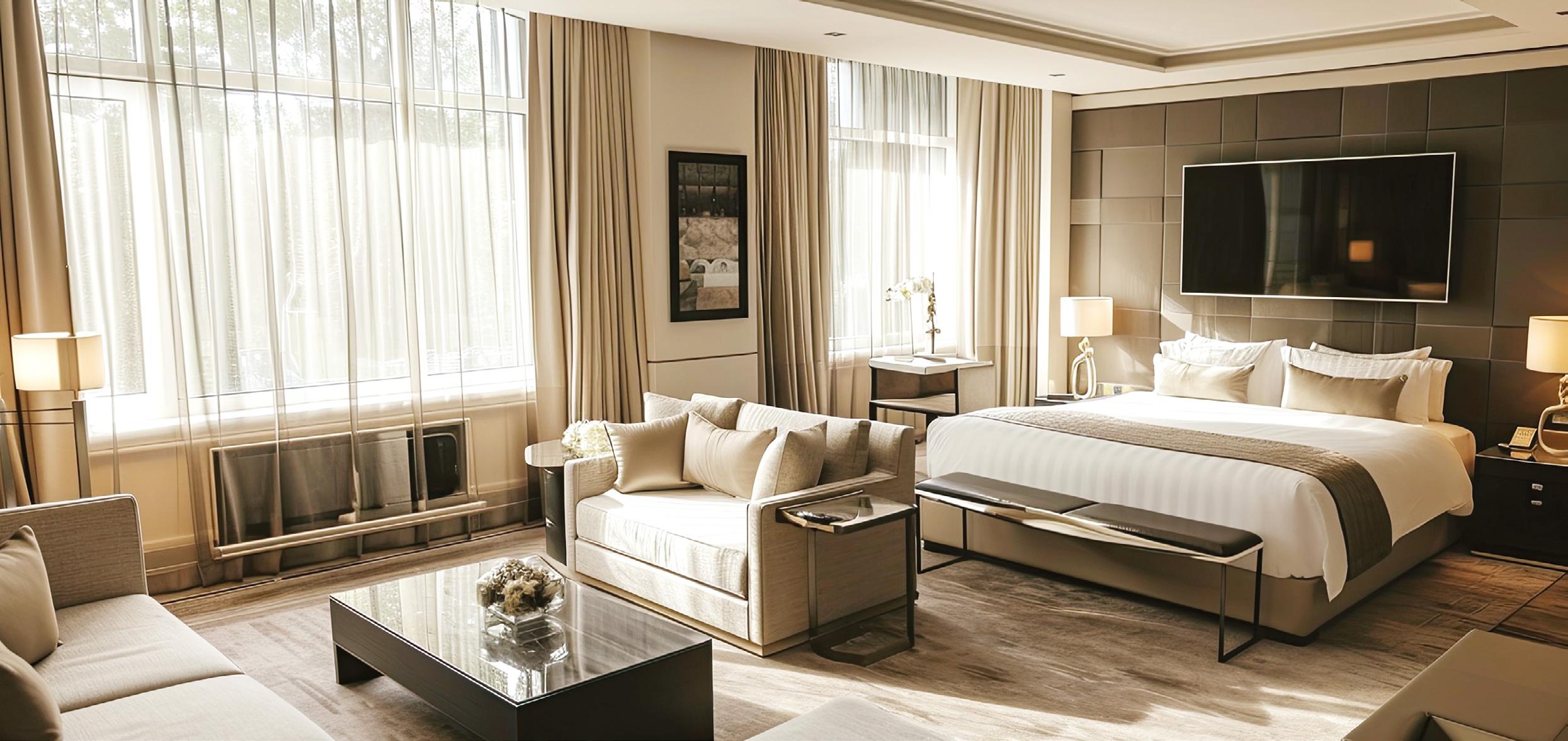
Weatherdon’s own brands are helping shape the customer experience at iconic hotels
Family-owned and operated hotel supplies business, Weatherdon, is celebrating half a century of excellence in the hospitality industry.
Robert, what does it mean to you to be celebrating 50 years in business?
It’s extremely humbling to reach this milestone surrounded by people who have been on this journey with us for more than 20 years. This adventure has been a remarkable tale of patience, authenticity and adaptability as we learn more each day about our clients’ businesses.
Tell us about the genesis of Weatherdon.
Our foray into the hotel space began in 1982 with the fit out of the Regent Hotel in Circular Quay before it became the Four Seasons in the early 2000s – a 43-year partnership still strong to this day.
What is the secret to longevity in this industry?
The word innovation gets used a lot as a promise of endurance, but I prefer the word adaptability as it implies a consideration of our customers’ needs as our own driver of progress. If you can evolve with your customers’ needs, you can adapt to new industry dynamics and remain relevant regardless of evolving technology, manufacturing progress, or global pandemics. We also have a relentless focus on your clients and their clients. We’re in the business of making life easier for our customers, and surrounding ourselves with exceptional people that embrace this ethos will forever be at the top of my list.
Tell us about your approach to business.
In a fast-moving landscape obsessed with buzzwords like AI or disruption, we have built our reputation on three simple pillars that may surprise people:
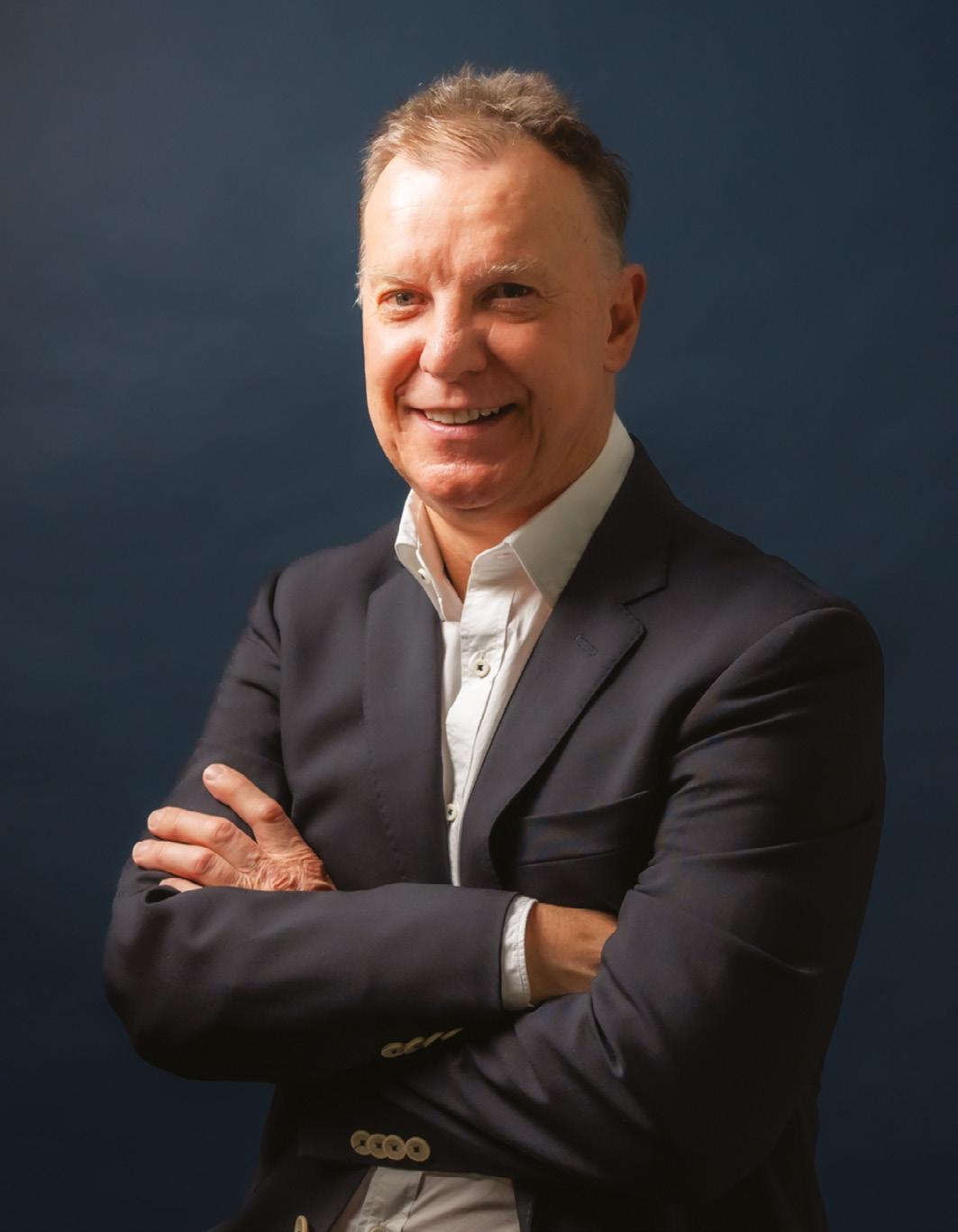

Proximity. We are close to our customers geographically and connect with them daily. With business partners in all major cities, and warehouses across the country, our team are on a first name basis with hotel general managers around Australia. Rodrigo knows exactly what Vivian needs at the Four Seasons Sydney, while Mel Bent is on speed dial at the most prestigious hotels on the Gold Coast.
We have amazing people like Kath Coen, or Robert Steginga representing Weatherdon, many of whom have been with us for 20+ years. They know the industry better than anyone and, more importantly, everyone knows them. Surrounding ourselves with the best people is our greatest promise to our customers. Loyalty is the result of consistency over time and there’s no short cut in this game.
Reliability. Our B2B operation is different to the retail sector. Most consumer brands need to reinvent themselves constantly to maintain interest in their ranges. For us, it’s paramount to let our customers know that the same knives, kettles, bins and pillows will be available for years to come. When a group like Quest has thousands of rooms across the country, brand consistency and continuity is key.
Ownership Weatherdon is more than a distributor. We design and manufacture our products, and we own our brands. This allows us to control distribution, stock on hand and pricing. We’re ready to ship 200 Luxe hairdryers to The Star Grand in Brisbane tomorrow or set up the Ritz Carlton in Perth with slippers and bedding by the end of the week.
We stand by our products and provide first-hand customer care for our clients. Our customers are looked after in person by our team right here in Sydney. No bots or AI tools. You’ll speak with Maybelle, Paul or Chris and they are the reason our customers are still with us today. Scaling our business is important, but never to the detriment of authentic customer experience.
How did Weatherdon become a household name in the business?
We’ve been working with the same hotels for decades. As we grew, brands such as Meriton, Accor, Intercontinental and Hilton have built our reputation and made our name in the industry. Today, our own brands help to shape the customer experience linked
“Surrounding myself with the best people will always be at the top of the list.”
Robert Weatherdon
with those iconic names. It takes years to build this kind of equity, but we know it can easily be undone in minutes with poor customer experience –every interaction counts, every day.
At our core, we provide simple and sustainable solutions to our customers, both ecologically and economically. They have to work together. Our amenities platform is changing the face of the industry, saving money, time and plastic for our clients. We are moving towards no plastics in packaging across the board. Our Nero electrical brand is backed with an industry-leading warranty. From bedding to kitchen, bathroom to appliances, chances are you’ve used our products on your travels in one of the thousands of hotels we partner with around the country. Weatherdon’s range and the reliable service we provide for hotels means our value proposition is simply unmatched in Australia.
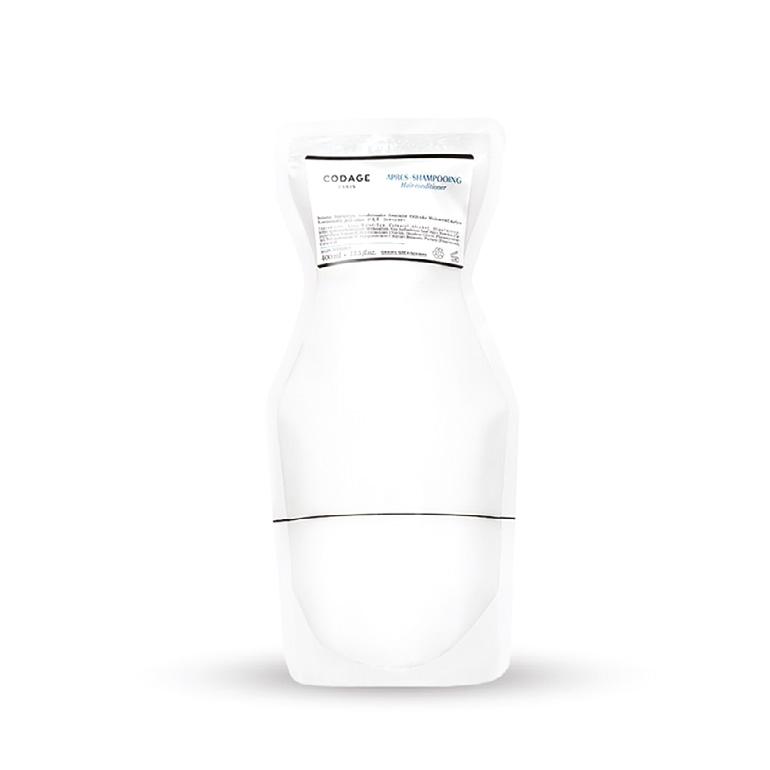
What do the next 50 years look like for Weatherdon?
Our journey has taught me that what got us here won’t get us there, and I look forward to seeing how our offer evolves with the industry. We’re moving to a larger Sydney warehouse this year to further reinforce our stock proposition. Technology will influence our growth, and the evolution of travel will also be interesting, but proximity, reliability and surrounding ourselves with the best people will forever be at the heart of the Weatherdon brand. n
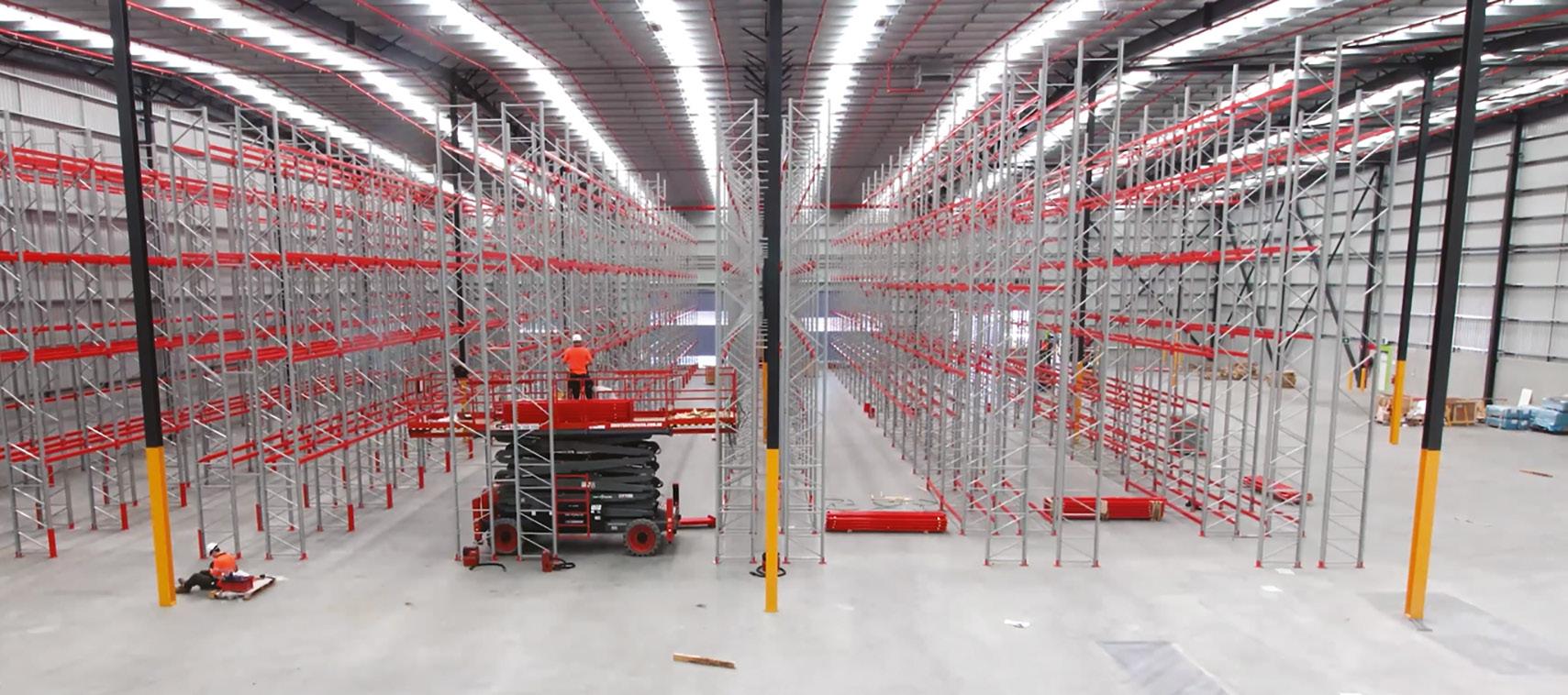

INTRODUCING THE LATEST AND GREATEST TECHNOLOGY SHAKING UP THE HOTEL AND HOSPITALITY LANDSCAPE.
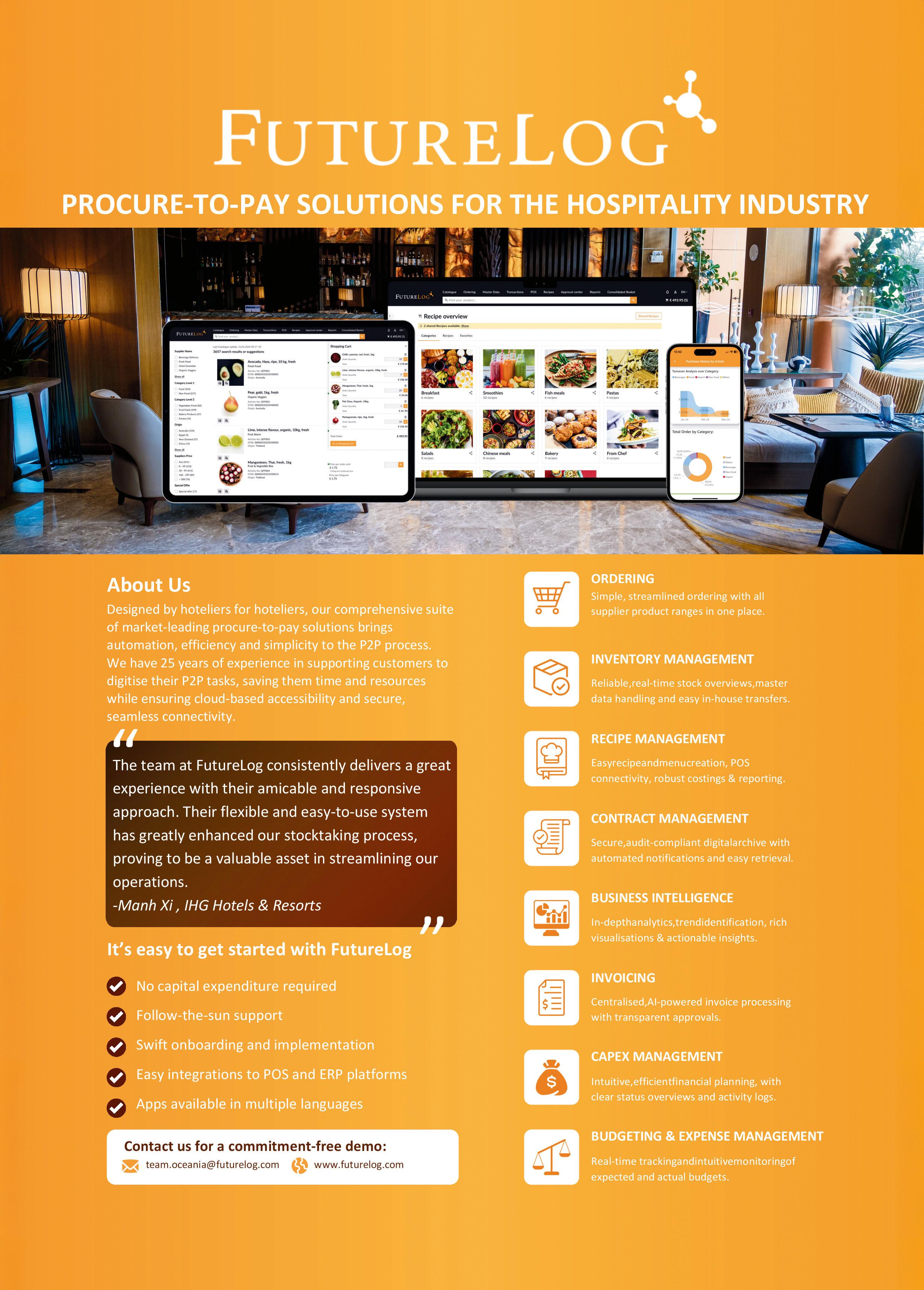

Personalised service and revenue growth remain top priorities for hoteliers, and both depend on access to complete, real-time guest insights. That’s why Agilysys has launched Intelligent Guest Profiles, powered by its guestsense.ai engine, to unify and enrich guest data across all Agilysys applications.
The service goes far beyond traditional guest records, surfacing behavioural, transactional, and preference data in real time – giving staff a consistent and instantly accessible view of each guest, from booking through to return visits.
“Hoteliers don’t just need data, they need meaningful, real-time insights they can act on in the moment,” said Agilysys Sales Director, ANZ, Craig Dennington. “Intelligent Guest Profiles deliver exactly that, enabling staff to engage with guests in ways that are both personal and profitable. It’s a smarter, more scalable way to increase guest satisfaction, loyalty, and drive measurable impact across the business.”
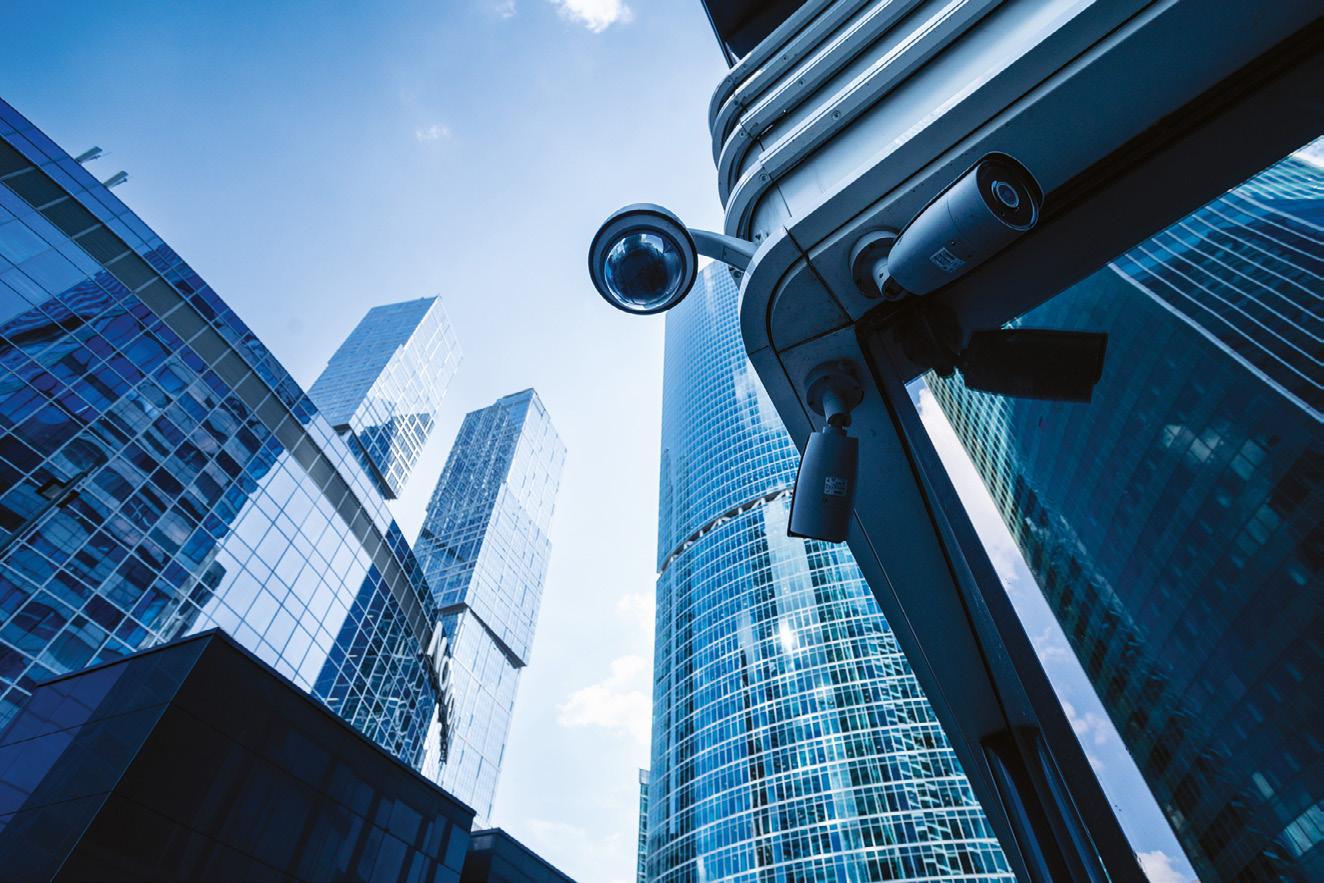
For hotels, safety isn’t just about alarms, it’s about knowing someone is there when it counts. ADT Guard delivers a smarter, more responsive approach to hotel security. Combining 24/7 video monitoring, AI-powered threat detection, and real-time incident response, the service provides peace of mind without the burden of false alarms or over-reliance on emergency services. When an alarm is triggered, ADT’s monitoring centre verifies the event, communicates directly via two-way audio, and dispatches responders if
required. The system offers live talk down capabilities, app-based control, HD video with night vision, and flexiblecloud or on-premises storage.
“Hotel teams are always looking for practical, cost-effective ways to protect people and property,” says Dennison Hambling, Managing Director of ADT Security’s parent company, IMG. “ADT Guard gives them the confidence that someone’s always got their back.”
Tailored for hospitality, ADT Guard helps hotels reduce risk so their guests can sleep easy.
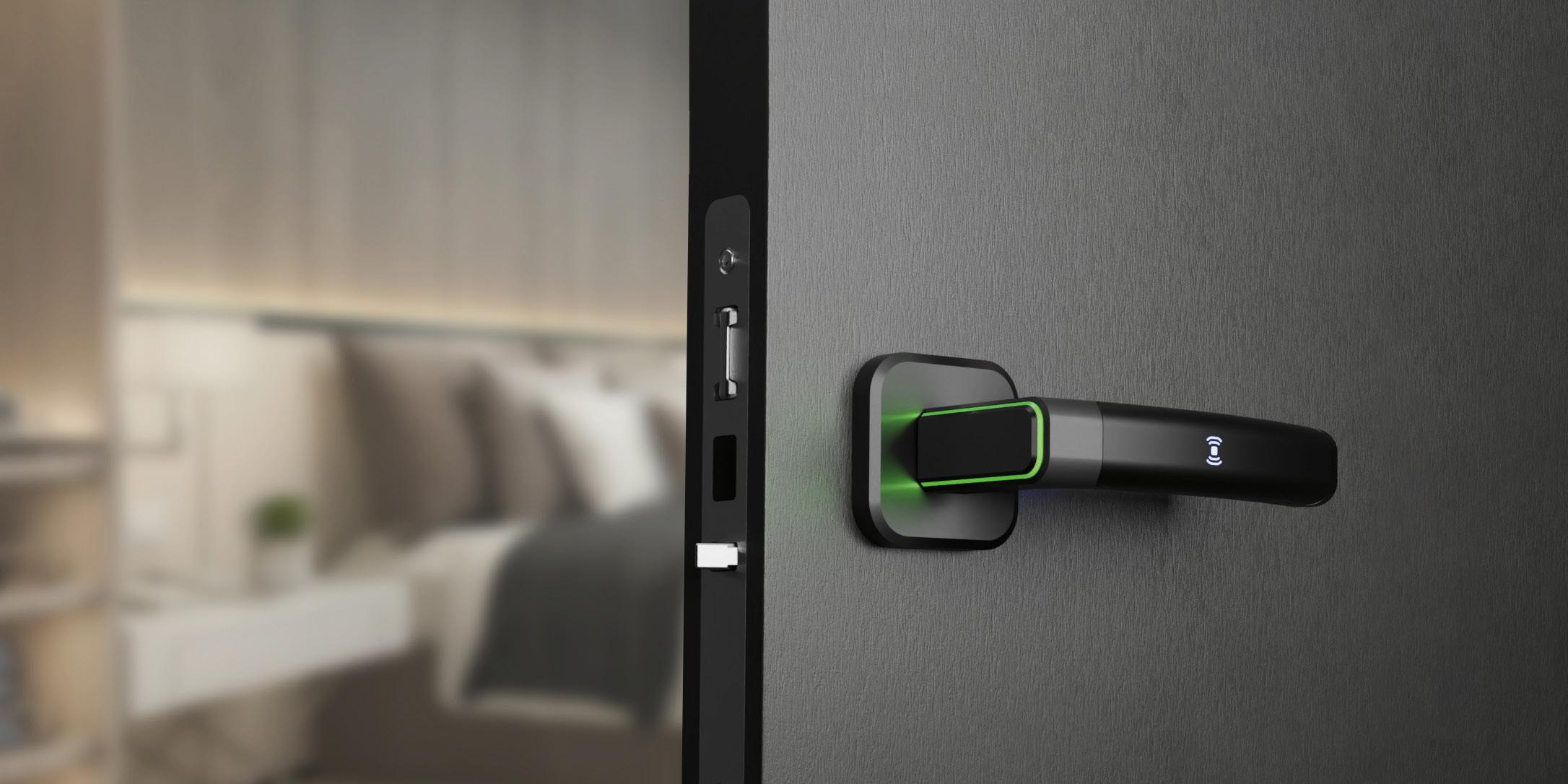
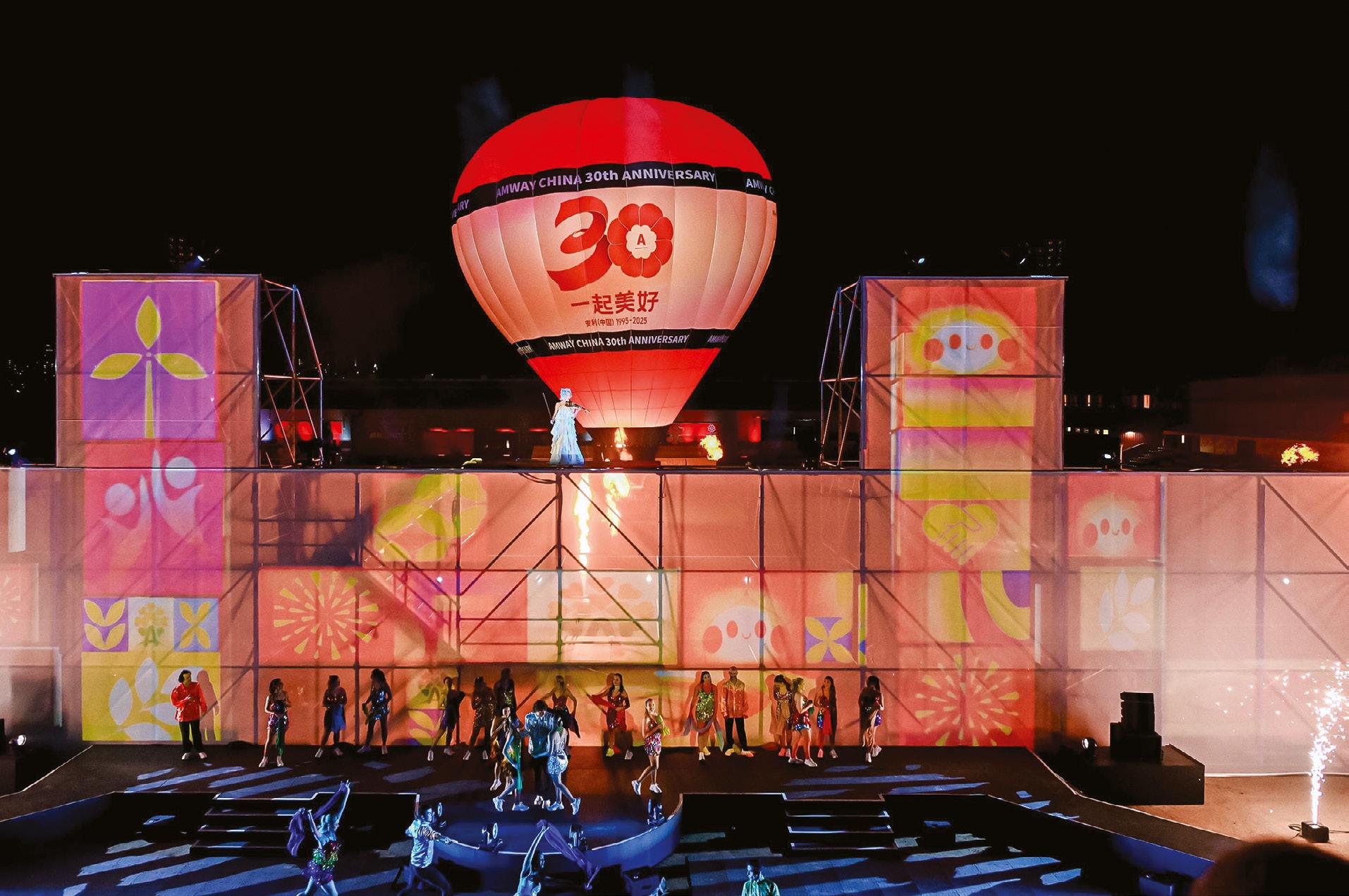
Encore is redefining venue event production with immersive technologies that elevate both guest experience and venue capability. At the forefront is Daniel Lourenco, Director of Innovation and Technology, whose global tech scouting has led to innovations like AI-powered tools and sensory recognition cameras –personalising live events like never before. These breakthroughs took centre stage at the recent Amway China event in Melbourne. Guests entered through a responsive tunnel, tracked by multi-camera systems, before witnessing a custombranded hot air balloon rise dramatically above the Melbourne Showgrounds. Projection mapping, advanced rigging and industry-leading audio-visual technologies ensured flawless execution.

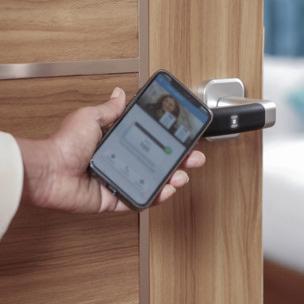
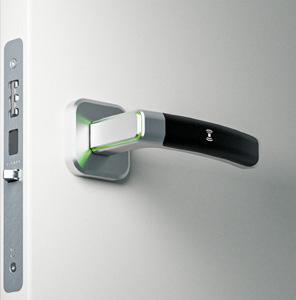
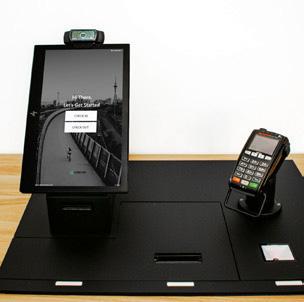
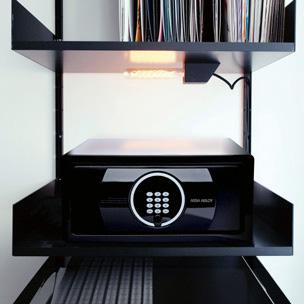
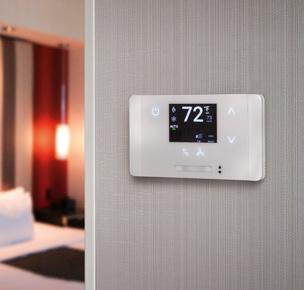
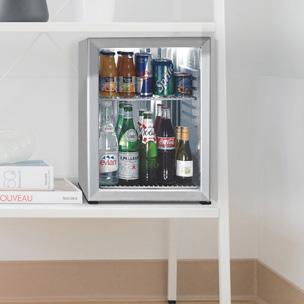


FutureLog is advancing its technology to make budgeting easier for hotels
In hospitality, staying on budget is critical, but traditional budgeting tools aren’t built for today’s pace. FutureLog’s Budgeting and Expense Management tool, designed specifically for hotels, turns budgeting into a real-time, year-round strategy. With live visibility of spend vs budget,
Vingcard, renowned for its cutting-edge hospitality solutions, has introduced exciting features that prioritise sustainability and efficiency. The integration of Apple Wallet into its self-check-in system allows guests to bypass traditional check-in processes, reducing the reliance on physical key cards and minimizing waste. This digital solution not only enhances convenience but also supports ecofriendly initiatives.
Moreover, Vingcard’s Energy Management System (EMS) plays a pivotal role in optimising energy usage. By automatically adjusting room settings based on occupancy, the EMS significantly cuts down on energy consumption while maintaining guest comfort.
These innovations reflect Vingcard’s commitment to enhancing guest experiences while addressing environmental concerns. By merging technology with sustainable practices, Vingcard is offering hotels a modern approach that meets the needs of today’s ecoconscious travellers.
automated alerts, and in-depth analysis, hotel teams can spot issues early, cut unnecessary costs, and make faster, smarter decisions.
FutureLog’s intuitive interface and seamless budget revisions keep departments aligned and agile. Whether on desktop or
mobile, everything updates instantly, no spreadsheets, no delays. Best of all, budgeting is fully embedded within FutureLog’s procureto-pay suite, flowing effortlessly from ordering to approvals. No more silos. No more guesswork.
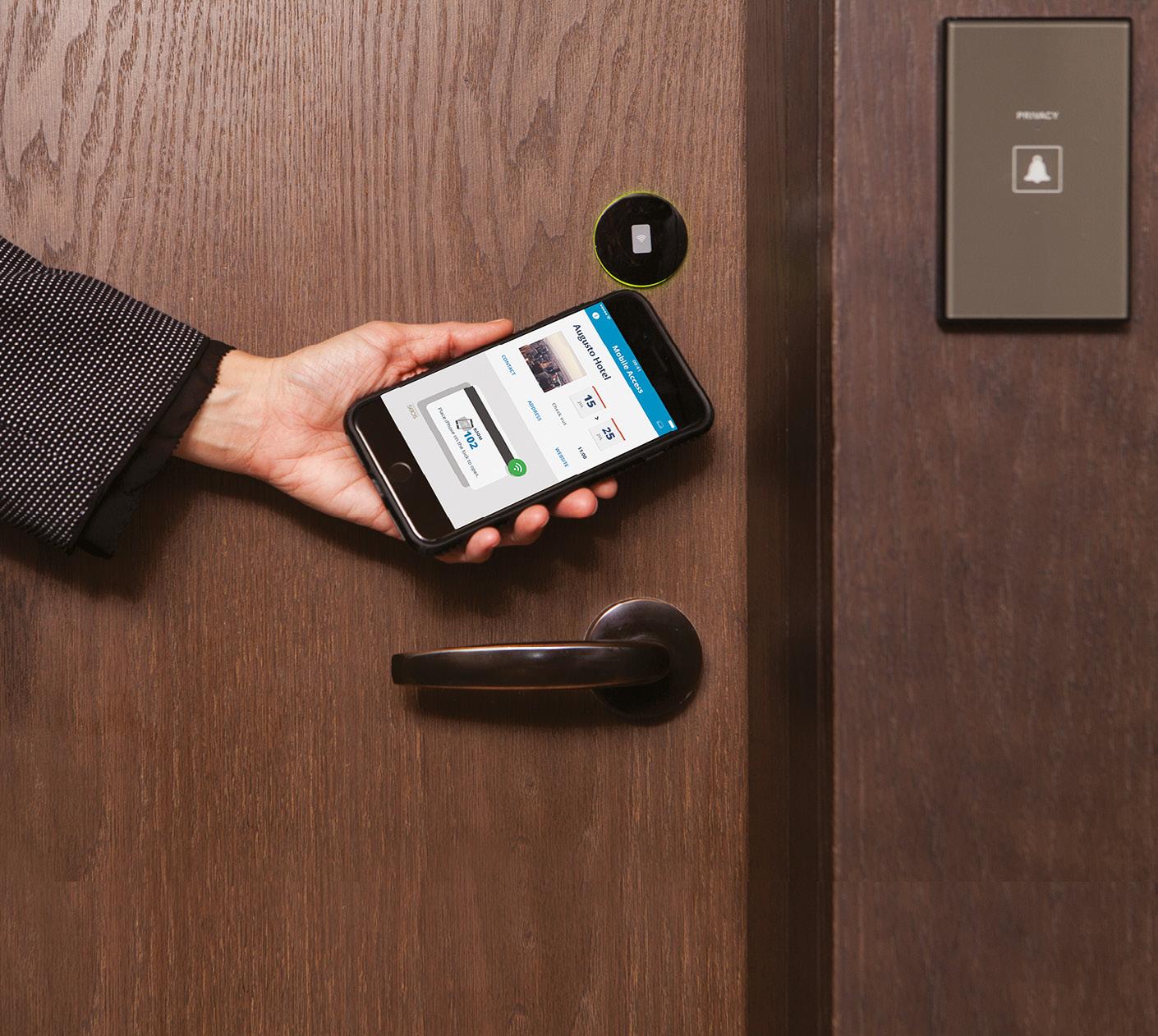
Foxtel is continuing to elevate its Business iQ platform with two further complimentary upgrades scheduled for release this year. “We have so many new features arriving we’ve had to roll them out over two stages,” said Foxtel National Manager –Accommodation, Scott Wiedemann.
The first wave of enhancements throughout August includes Wi-Fi 6e support, generated local attractions via GettinLocal, enabling live 4k over an IP stream, and customisable video-on-demand carousels, bringing a more personalised at-home experience to guests.
The final release in November will complete the rollout of over 100 new features including app integration for hotel loyalty programs, scrolling promos on the welcome screen for dynamic advertising, QR code usage analytics, an AI-powered chat bot to assist with troubleshooting, as well as multi-property content scheduling for centralised management.
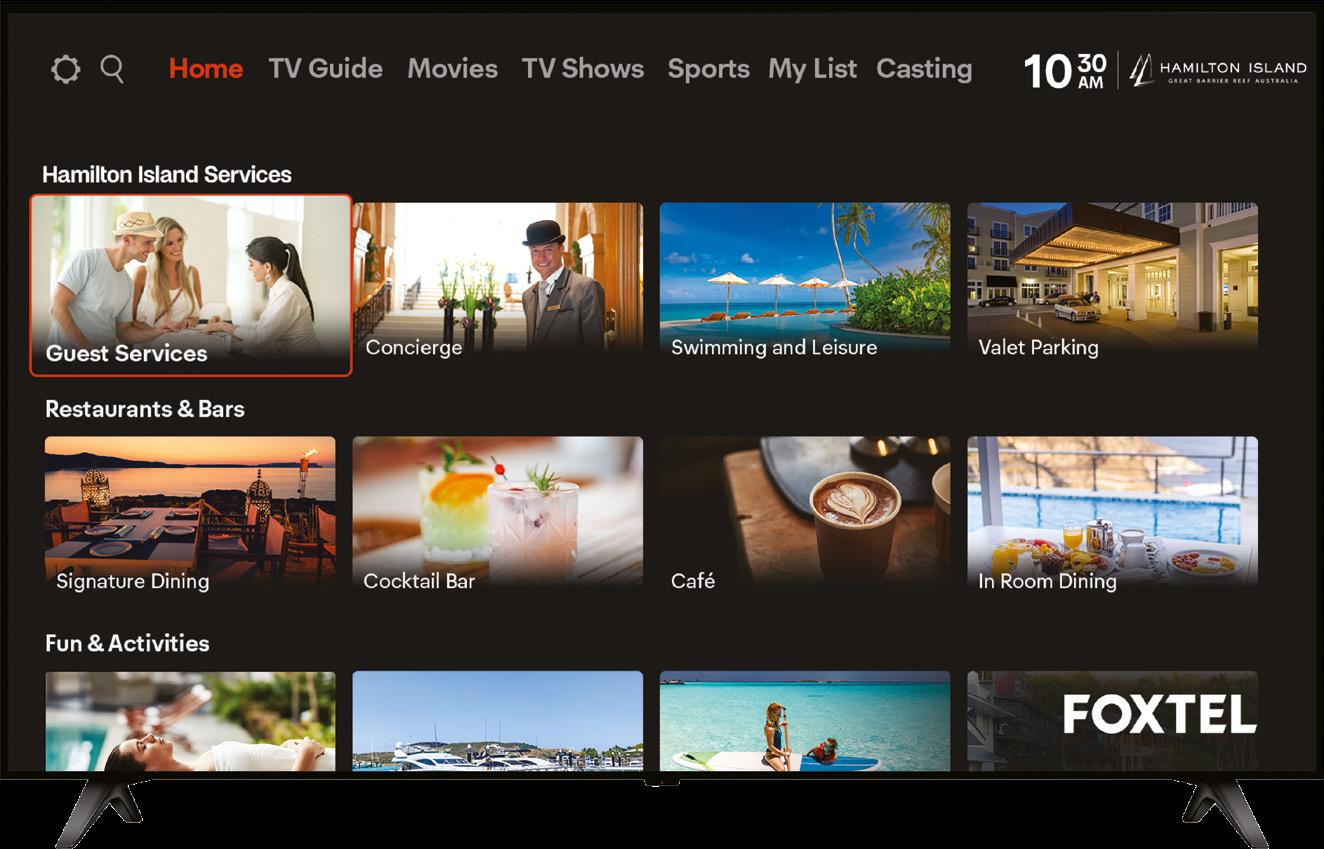
Foxtel is undertaking its seventh major upgrade in five years
“This will be our seventh major upgrade in five years,” said Wiedemann. “We are continually innovating based on direct customer feedback, focusing on enhancing guest experience and driving operational efficiency. “We will also
be introducing digital concierge support to assist sites build and manage their digital compendiums.
“Our product and engineering teams are working tirelessly to ensure we deliver cutting edge technology to remain Australia’s market leader.”
Looking ahead, Foxtel is planning its most ambitious update yet with Phase 8 in 2026, which will introduce full app delivery across the Business iQ platform.

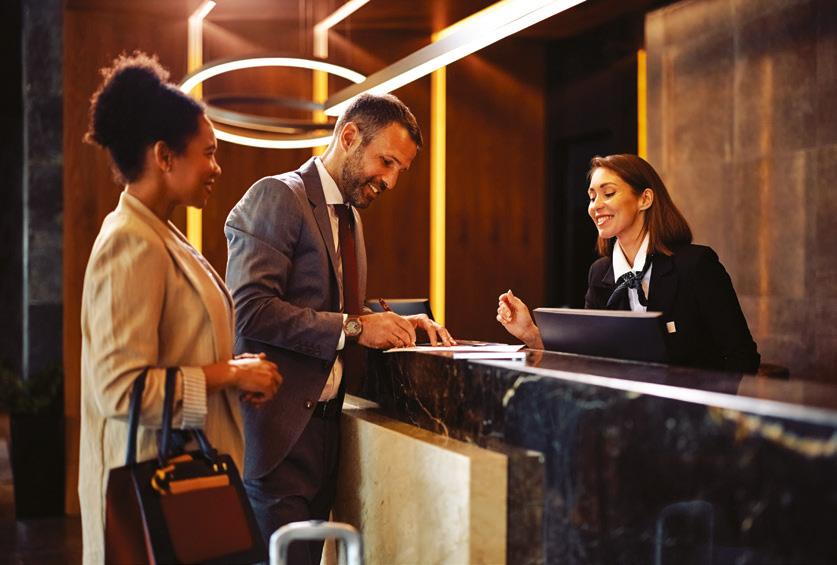
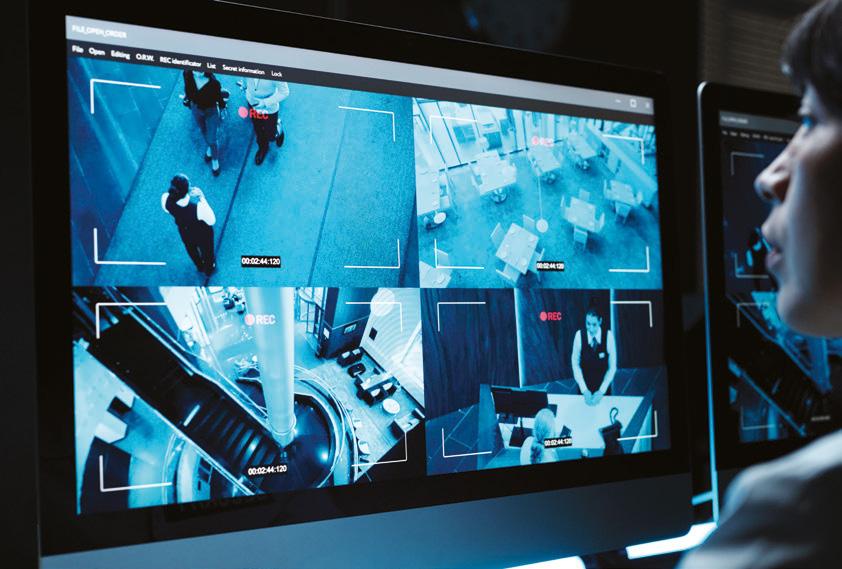
Higher State has introduced AI tools to assist lifeguards
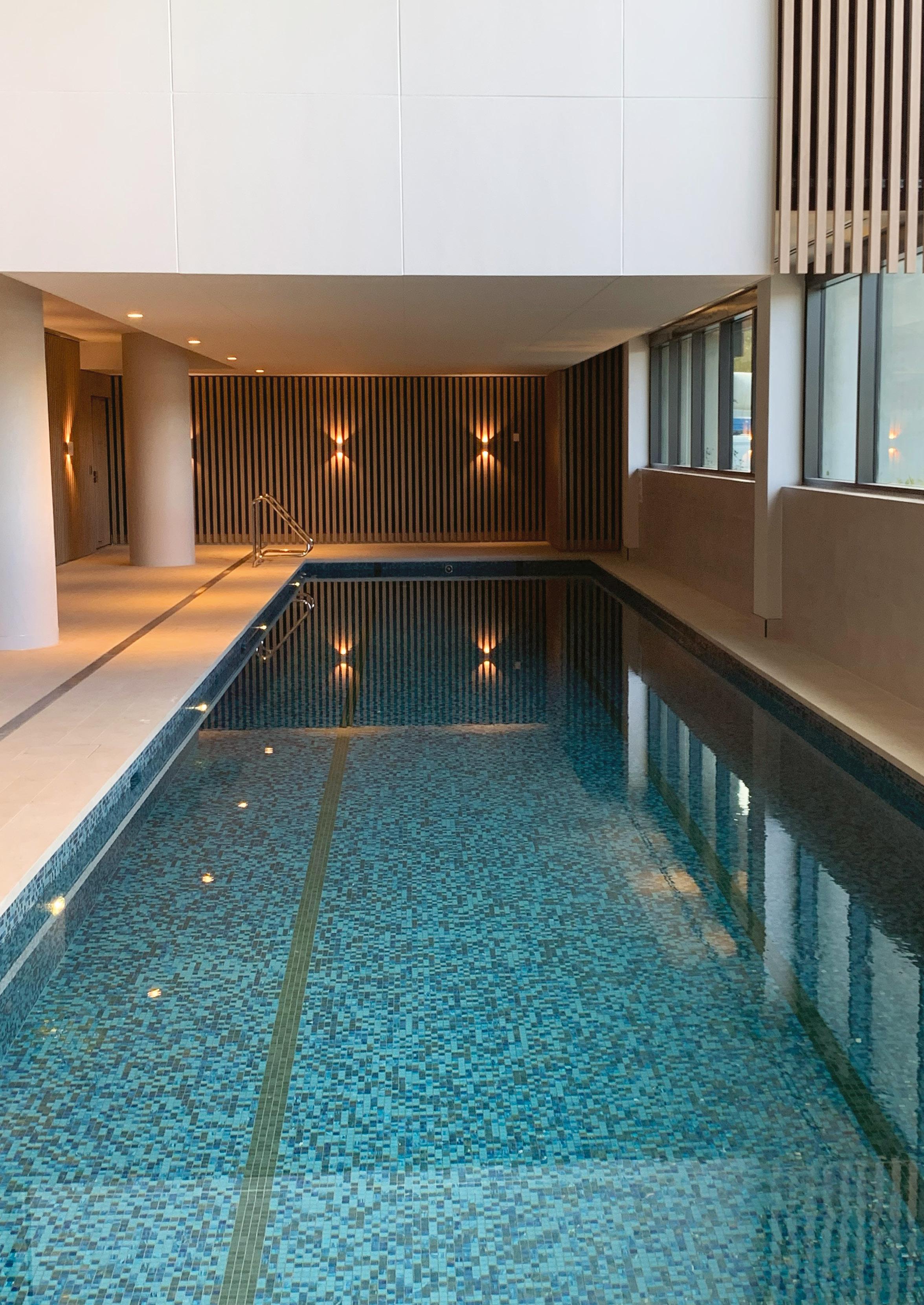
Higher State health club at Melbourne Airport’s new dual-branded Novotel and Ibis Styles hotels has become the first hotel pool in the nation equipped with AI drowning prevention technology.
Security cameras at the two-lane, 25 metre indoor pool are now empowered with cutting edge Lynxight AI technology, which is designed to analyse swimmer behaviour, providing staff with a realtime understanding of what’s happening above and below the water via their waterproof smartwatch.
Backed by Royal Life Saving Society of Australia, the technology tracks and analyses multiple
swimmers simultaneously, sees through water for a 360-degree view and below and eliminates blind spots and glare – all aimed at reducing the risk of drowning by detecting unusual or dangerous behaviour in the water, pinpointing incidents and accelerating staff response times.
“Supervision in public and communal pools can be challenging, and by blending this technology with human expertise, it strengthens – not replaces – staff’s prevention and rescue roles,” says Belgravia Leisure’s Group Work Health and Safety Manager, Scott Vanderheyden.
Global hospitality technology company Shiji has upgraded its Reviewpro Reputation’s AI Responses feature, allowing hoteliers to generate context-aware response drafts aligned with tone preferences, property insights, and guest feedback.
The result: faster, more consistent engagement and elevated trust with prospective guests. Responding to online reviews is a key driver of reputation performance, but operational pressure often leads to delays or inconsistency.
“AI Review Responses is not just about responding fast. It lets hotels to efficiently respond in a brand aligned voice and frees staff to focus on delivering remarkable guest experiences,” said Rafael Patiño, Senior Director of Product Management at Reviewpro Reputation.
“The new bulk generation option takes efficiency to the next level. It allows teams to generate responses for multiple reviews at once. This helps staff save valuable time and maintain full control over the responses sent.”
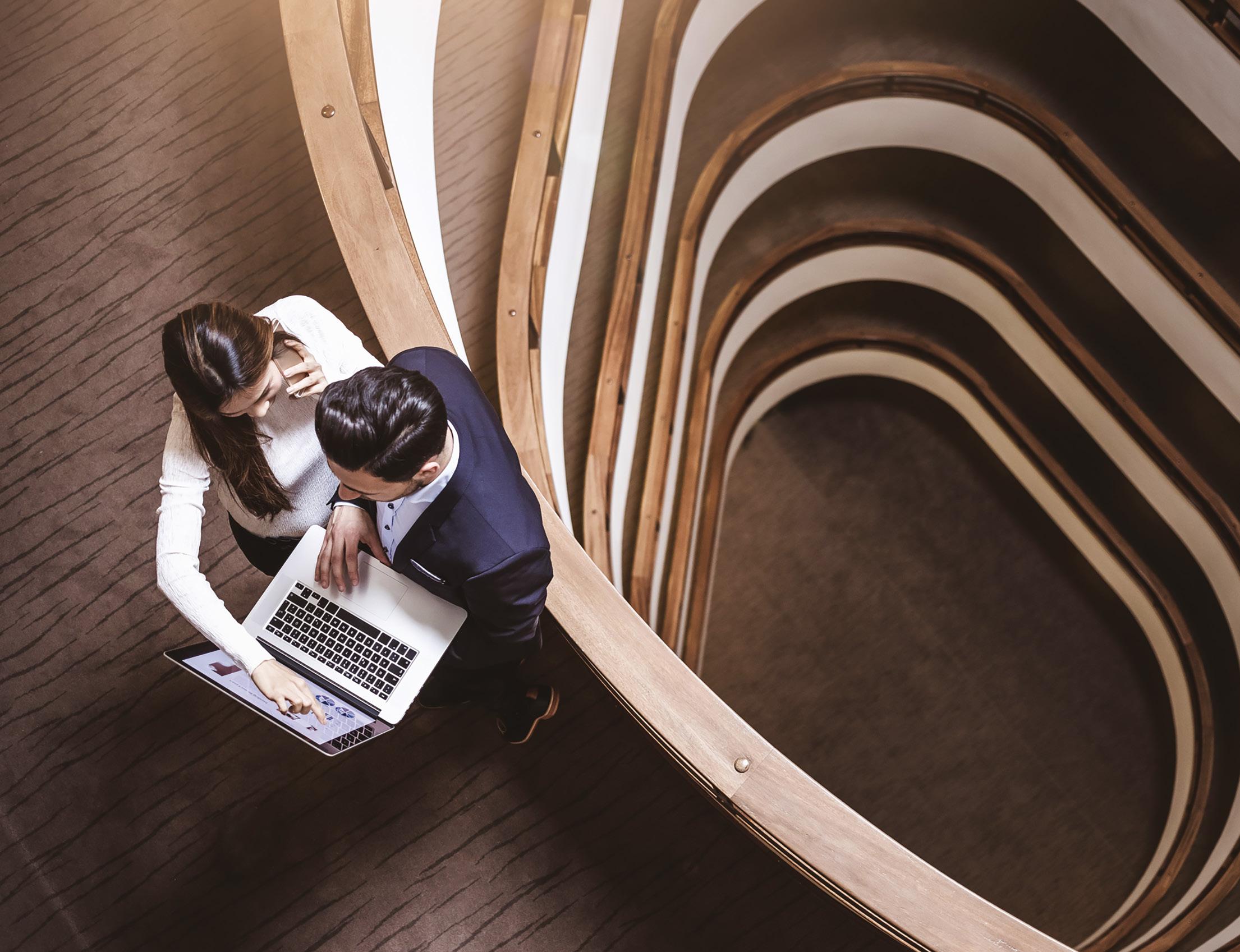
An AI-powered start-up could change the way travellers discover hotels
Former Tripadvisor CEO Steve Kaufer and ex-Google Travel head Richard Holden have joined forces to launch DirectBooker, an innovative AI-powered startup designed to help hotels bypass traditional online travel agencies (OTAs).
DirectBooker will feed hotel listings directly into AI tools like ChatGPT and Gemini, establishing a direct pipeline between hotels and large language models (LLMs) which could transform the way travellers discover and book hotels.
The move potentially threatens the longestablished dominance of major OTAs in an increasingly AI-driven travel market.

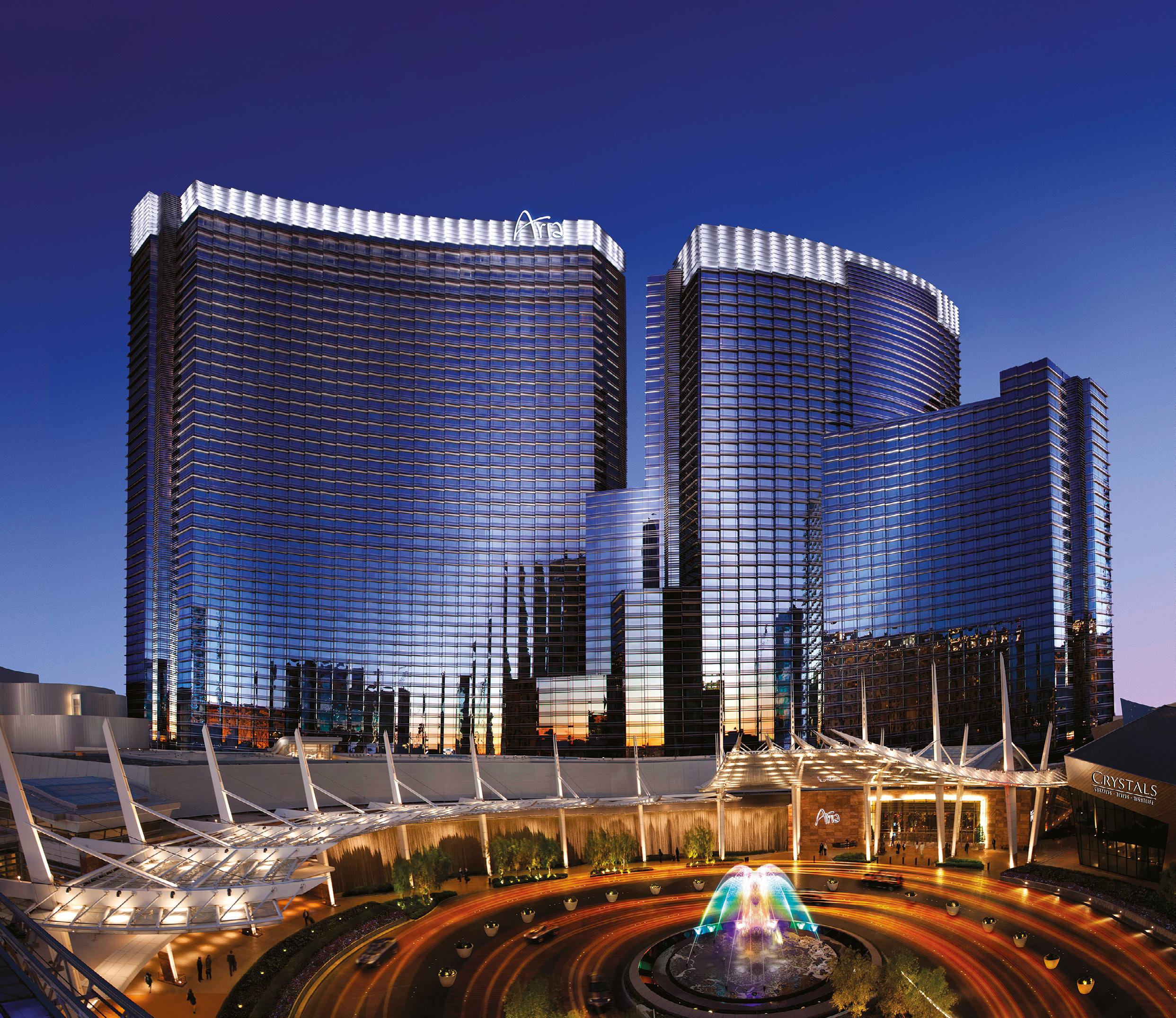
IN CONVERSATION WITH RUTH HOGAN, HOTEL TECHNOLOGY EXPERT SCOT CAMPBELL WARNS HOTELIERS TO THINK CAREFULLY ABOUT AI AND ALWAYS PUT THE GUEST FIRST.
Integrated Resort Advisors Principal and HFTP International Hospitality Technology Hall of Fame inductee, Scot Campbell, is recognised as a pivotal figure in the hospitality technology landscape.
Under his leadership, MGM’s CityCenter in Las Vegas became one of the most technologically advanced resorts in the United States, showcasing cutting-edge inroom automation.
During a visit to Sydney earlier this year, Campbell sat down with Ruth Hogan to discuss the evolving technology landscape and what hoteliers need to know.
Scot, in a world where technology is continually evolving, how do hoteliers know when it’s the right time to invest in new systems?
Let’s face it, from a hotelier’s perspective, it costs money to be an innovator. If you fail fast, that impacts customer service. It’s a tragedy because it means everyone is waiting for someone else to do it. An innovator needs to step out in front, and when they are successful, everyone follows. I think that hoteliers should be thinking about what AI could help them with. Could predicted occupancy rates help with staff productivity and save costs? Would it be more productive
Under Scot Campbell’s leadership MGM CityCenter became one of the most technologically advanced resorts in the US Scot Campbell
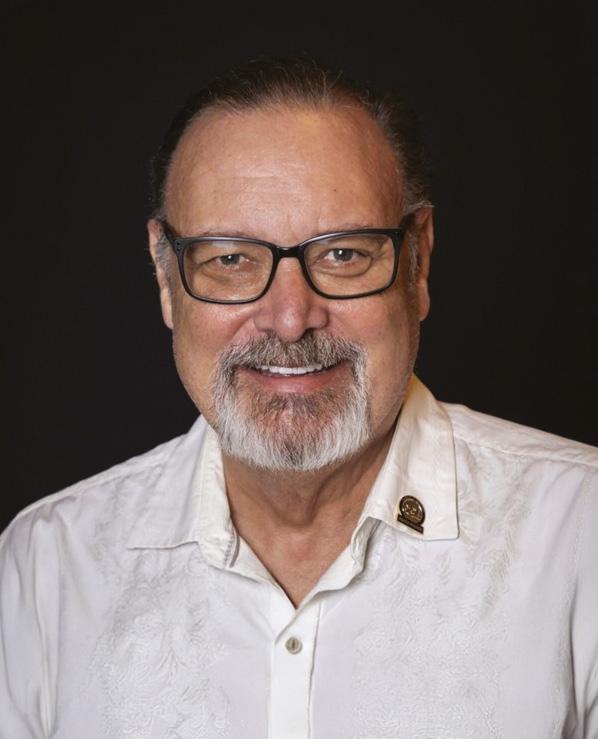
to replace my PBX [phone system] with an AI engine using chatbots with real voice language to talk to customers?
Where do you see the biggest opportunity for hoteliers when it comes to hotel technology that can deliver returns?
I would go after the back of house. How do I become more efficient? How do I save costs and increase productivity? I, personally, would wait until the customer-facing technology matures. You don’t want to make a mistake in front of a customer.
Steve Wynn [prominent US hotel owner and founder of Wynn Resorts] told me something in the early days that I have never forgotten. He said, “If you make a mistake in IT, and it costs me a lot of money, I want to understand that you’re not going to make the same mistake again. But, if you’re front of house, and a guest asks you to where the elevator is, you need to pick up their luggage and take them to the elevator. And if not, you’re fired.” It’s as blunt as that, right? That still lives in my head every day. That’s what hospitality is about. Don’t ever let the customer see you sweat. So, don’t put AI in front of them right now. Wait until it’s proven, baked and matured.
“Don’t put AI in front of [guests] right now.”
Scot Campbell, Integrated Resort Advisors
In the work that you are doing now, what are you hearing from hoteliers? What are their biggest concerns?
There’s a lot of technical debt going on. When it comes to AI, where does it draw its data from? Right now, you have all of these disparate data systems, and they’re on different platforms. Your hotel system might be on an AS400 and your revenue management system might be on an SQL Server. You need really good IT folk that can integrate these, find a data lake, and then add AI. There’s a lot of work to do that – years, maybe, to get it to the place where it’s meaningful.
When you look 10 or 15 years down the line, how do you expect technology to be impacting the hotel experience?
I would hope that we, as an industry, stay focused on what customers do at home; because remember, a hotel is a home away from home. And, for me, I want it to be better than my home.
I should have a button next to my headboard that turns everything off. When I’m at home, I have to walk over to the to the door and shut the lights off.
Our firm is working with Amazon on their new Alexa 2.0 product, which is conversational. You start a conversation, and it will keep up with you. You could say, ‘Hey, Alexa, can you bring me some tea bags and a kettle? And she’ll respond, “Oh, I can definitely make that happen for you; just one moment.” Three minutes later, someone has picked up the tea bags and the kettle, and they’re on their way to your room.
I think that the people that are scared of voice technology will soon warm to it, because it’s just so simple. n
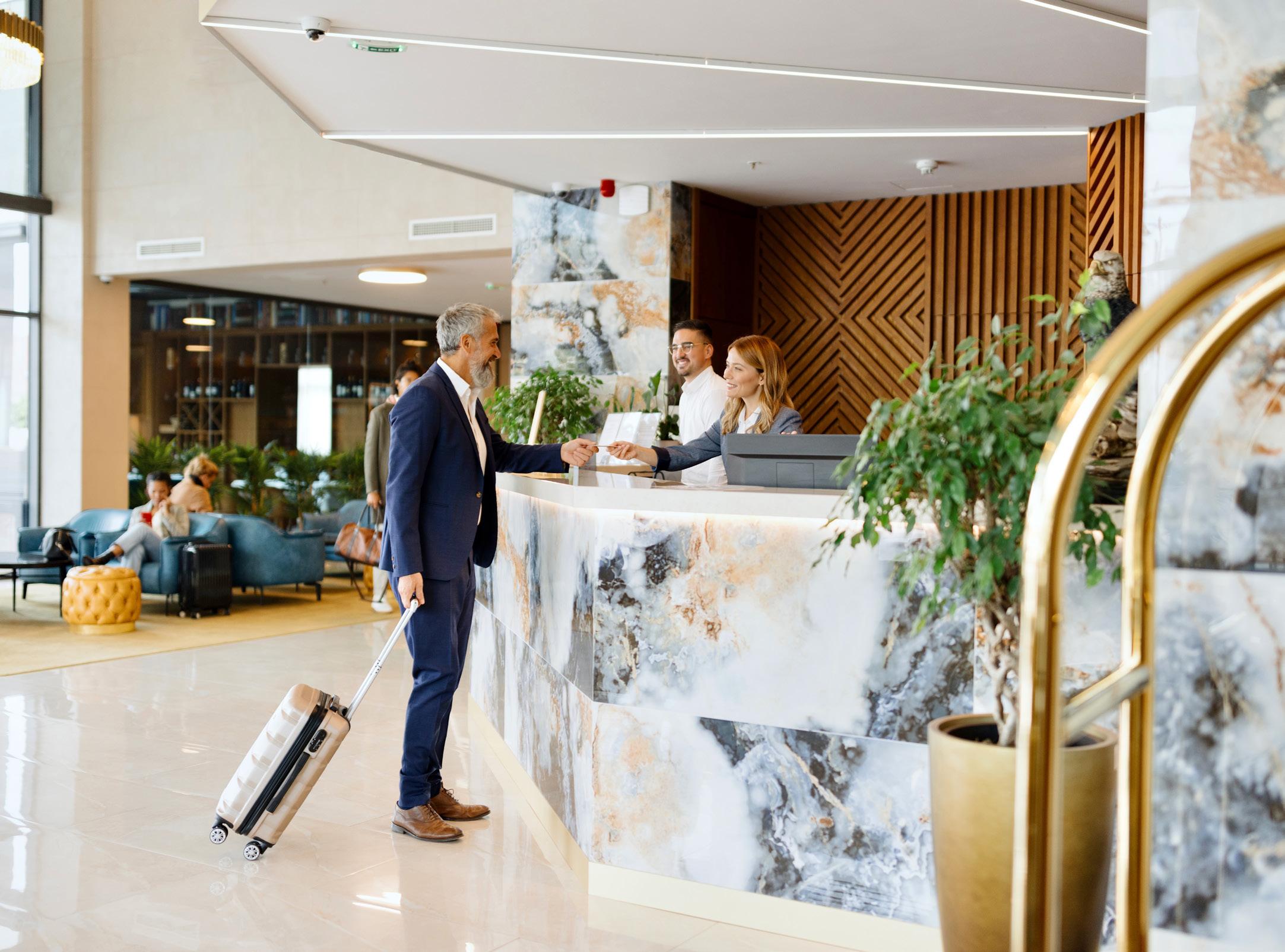
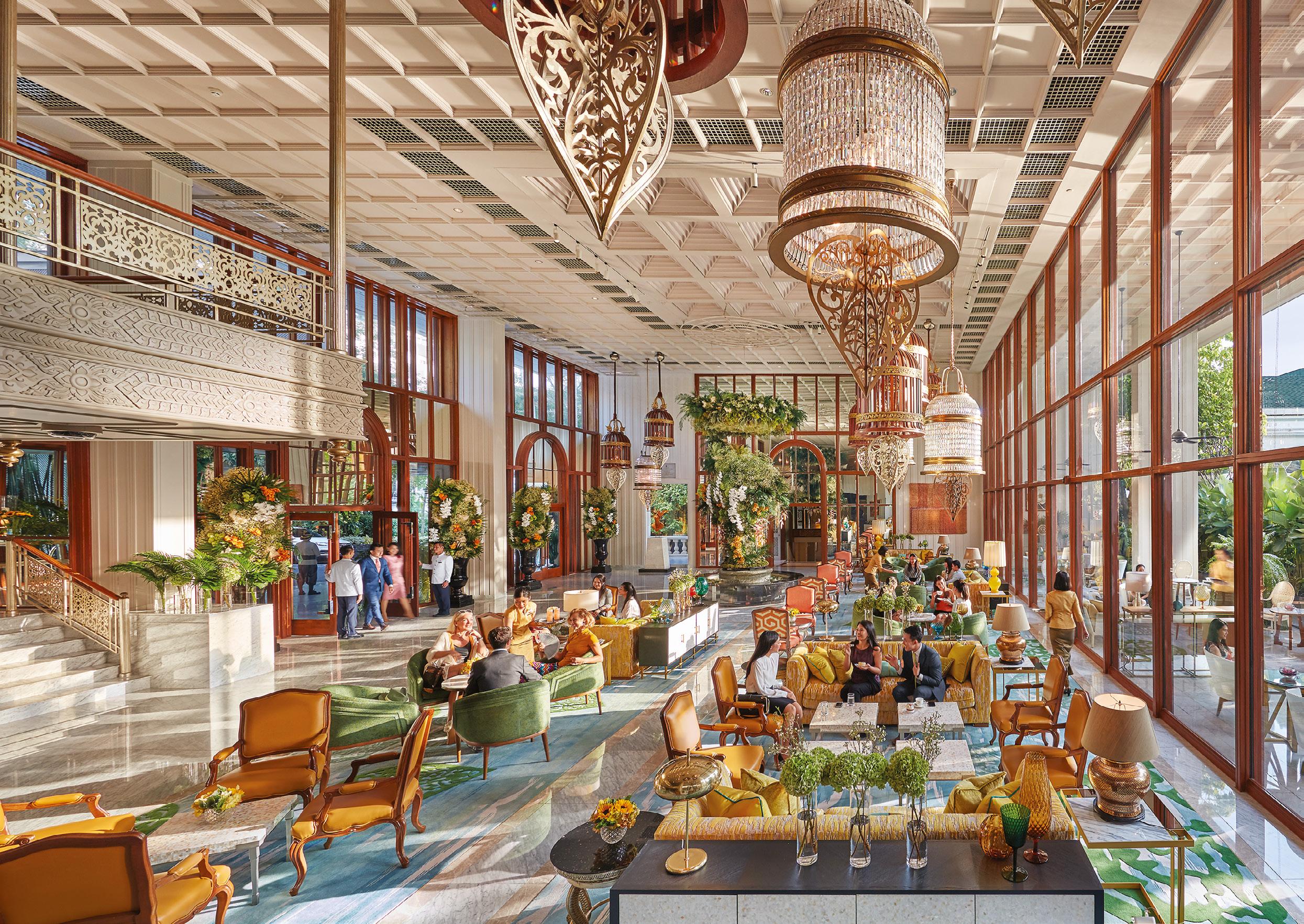
MANDARIN ORIENTAL HOTEL GROUP VICE PRESIDENT OF GLOBAL CRM AND CUSTOMER STRATEGY, ANDREW CLEARY, SPOKE TO RUTH HOGAN ABOUT THE USE OF TECHNOLOGY IN DRIVING GREATER PERSONALISATION, ELEVATED GUEST EXPERIENCES AND HIGHER RETURNS.
What are the expectations of luxury guests when it comes to technology in the guest journey?
The requirement for travel to be effortless and for guests to remain seamlessly connected throughout their journey is universal across all segments. For luxury hospitality and high-net-worth guests, in particular, there is a deeper expectation that technology will not replace human touchpoints but rather enhance the in-person experience – while providing the option for self-service when convenient. An example of this is the purpose-driven approach we have taken with the new M.O. App, giving guests the option to either self-serve or to immediately connect through to the Concierge, Guest Relations or other team members for any requests. It can never be a one-size-fits-all solution.
How is Mandarin Oriental using technology to better personalise the guest experience?
With our recently launched Guest Experience
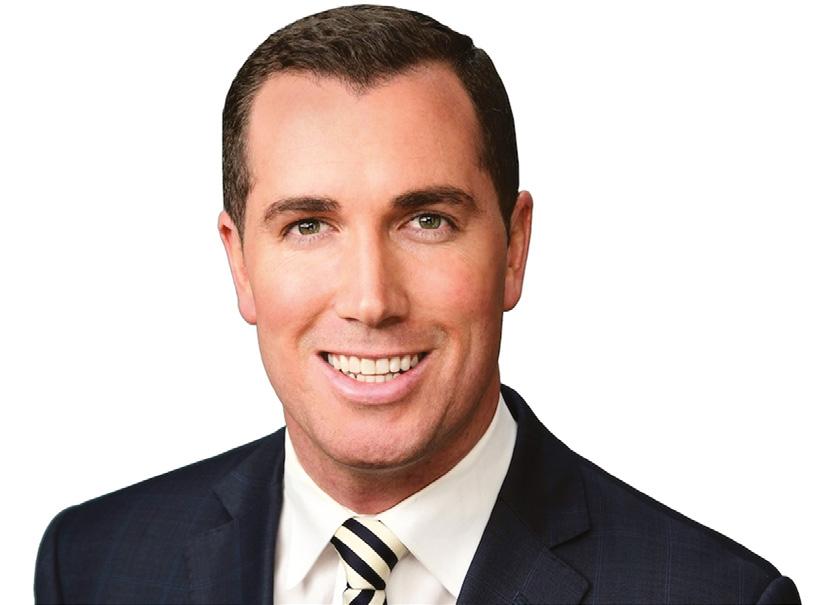
Programme, Mandarin Oriental has crafted an experience that is centred around guests being recognised and engaged as individuals throughout their journey. This is achieved by bringing together the redesigned Fans of M.O. guest recognition programme with the new guest app, which makes it easy for guests to provide always-on or stay-specific preferences which then flow through to back-end colleague operations for execution. Complementing the guest app, a new colleague-facing app surfaces these guest preferences along with the guest profile and real-time service requests in the one place, allowing for immediate personalisation of service and a more proactive approach to overall experience management.
How is the latest technology assisting hotel teams in doing their job?
The challenge for hotel colleagues is rarely that they
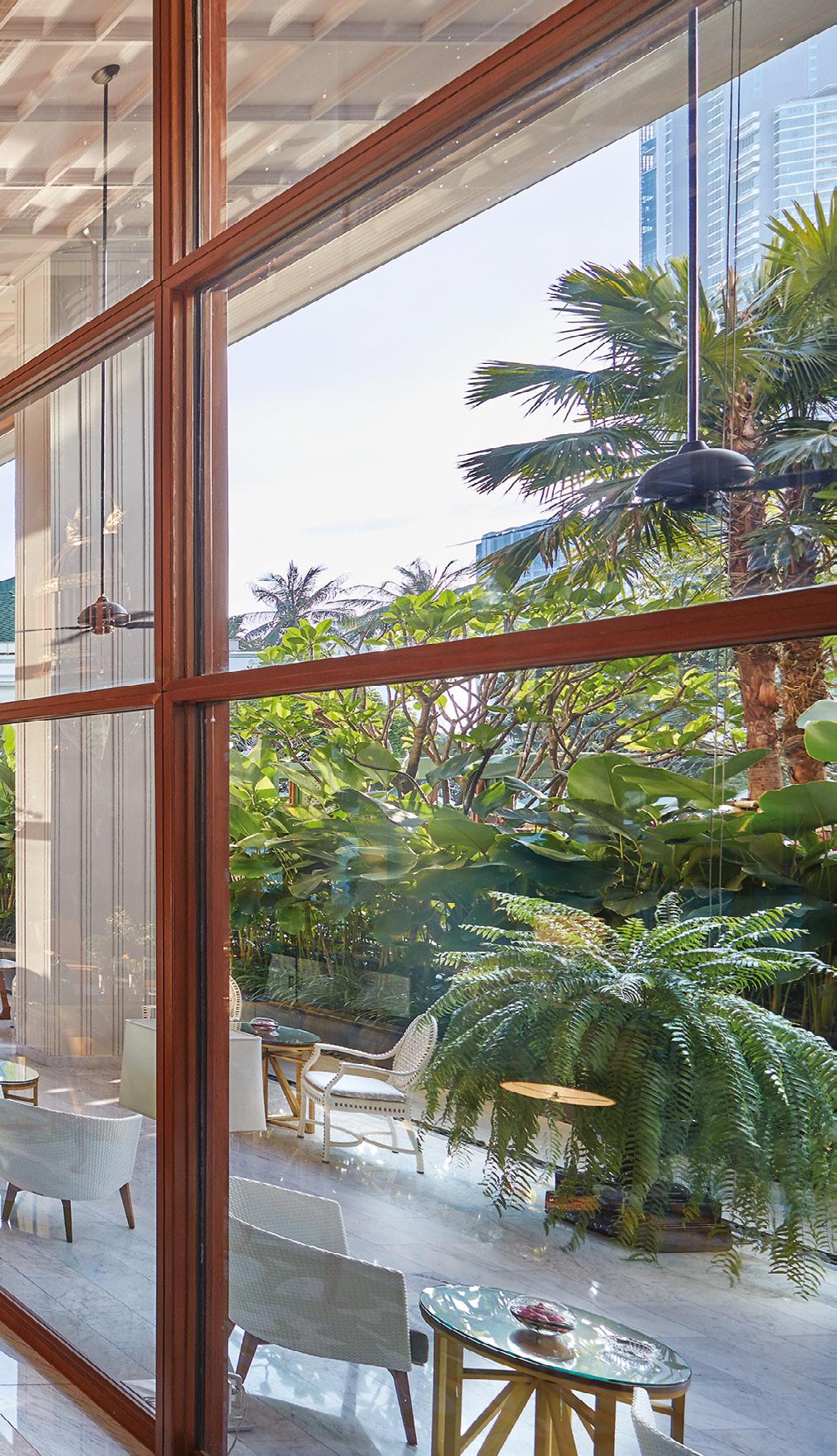
don’t have enough data or guest insights to act upon, it’s that they cannot easily access the right data, in a simple format and all in the one place. The introduction of the right technology, paired with thoughtful service and operations design for our business, is allowing our colleagues to more easily understand the unique needs, preferences, and history of our guests in real time. This is significantly time saving for colleagues, meaning less time spent on manual reports and profile compilation and more time actively using these insights to tailor experiences and create truly unique memories. And that’s exactly what luxury guests expect and what we strive to deliver: those rare, unexpected moments that feel entirely personal and exquisitely tailored.
How is technology supporting revenue generation?
“From a guest perspective, it will always be the 'swan on the lake’ ”
Andrew Cleary, Mandarin Oriental
audience segments, ensuring a more bespoke and 1:1 approach for UHNW and other high-value guests while using technology to ensure brand-level marketing is never ‘mass’ in how it is executed across different guest channels.
How do you balance the demand for modern technology amongst guests with the expectations of a high-touch, luxury service?
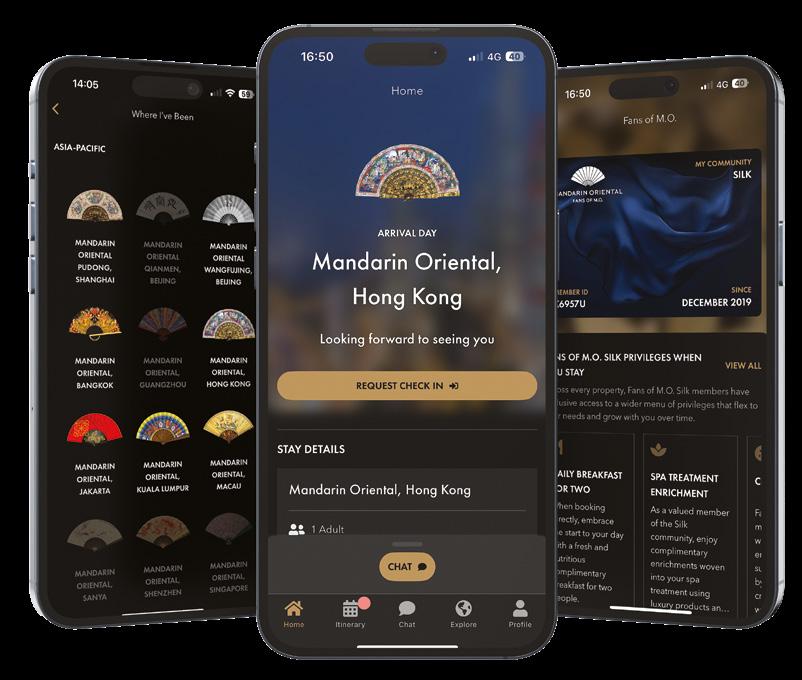
Mandarin Oriental recently launched the new M.O. app
The use of technology is entirely consistent with the high-touch service expected by luxury guests, but only if the technology has been implemented in service of the end-to-end, online-to-offline guest journey. Technology alone is unlikely to sway the contemporary luxury consumer: they are experience-led, and so long as technology is elevating the overall experience (both digital as well as in person) then it will be viewed as additive and on-brand. With the Guest Experience Programme at Mandarin Oriental, we spent more than two years examining the role of digital channels, data and technology – as well as human touchpoints and service moments – from both a guest and colleague perspective. What we’ve built is a cohesive experience where the data and technology serve as quiet enablers in the background, digital channels are seamlessly connected to the in-hotel experience, but it’s the in-person experience and gracious, human-led service that remain at the heart of our offering.
Is there anything else you can share about how technology is changing the guest experience at Mandarin Oriental?
The application of new technology to revenue generation presents endless opportunities, with one common requirement: connected, actionable data. By bringing together a more complete understanding of our guests across all brand touchpoints through a central Customer Data Platform, Mandarin Oriental has been able to improve the conversion rate from direct marketing through more accurate targeting – getting the right message in front of the right guest, in the best channel to reach them. It’s essential to also deploy different marketing and communications strategies to different
We are very deliberate in the overarching philosophy and detailed experience design for why and how we deploy technology and where it relates to the guest experience. Fundamentally, we do not seek to use technology to change the guest experience, we have always sought to deeply understand our guests, to smooth any pain points, and to personalise experience based on insights into each individual. The change for Mandarin Oriental will more likely be felt internally, whereby new technology and data is making it easier for our colleagues to more quickly get to the right information to begin tailoring the guest experience. But, from a guest perspective, it will always be the ʻswan on the lake’ – what is visible above the surface must remain the graceful, effortless choreography that defines the legendary service Mandarin Oriental is known for. n
IN AN INDUSTRY BUILT ON WELCOMING OTHERS, THE HOSPITALITY SECTOR HAS A POWERFUL OPPORTUNITY TO LEAD BY EXAMPLE WHEN IT COMES TO INCLUSIVITY. HERE ARE SOME RECENT EXAMPLES OF HOSPITALITY EMPLOYERS THAT ARE MAKING EFFORTS TO BE MORE INCLUSIVE.
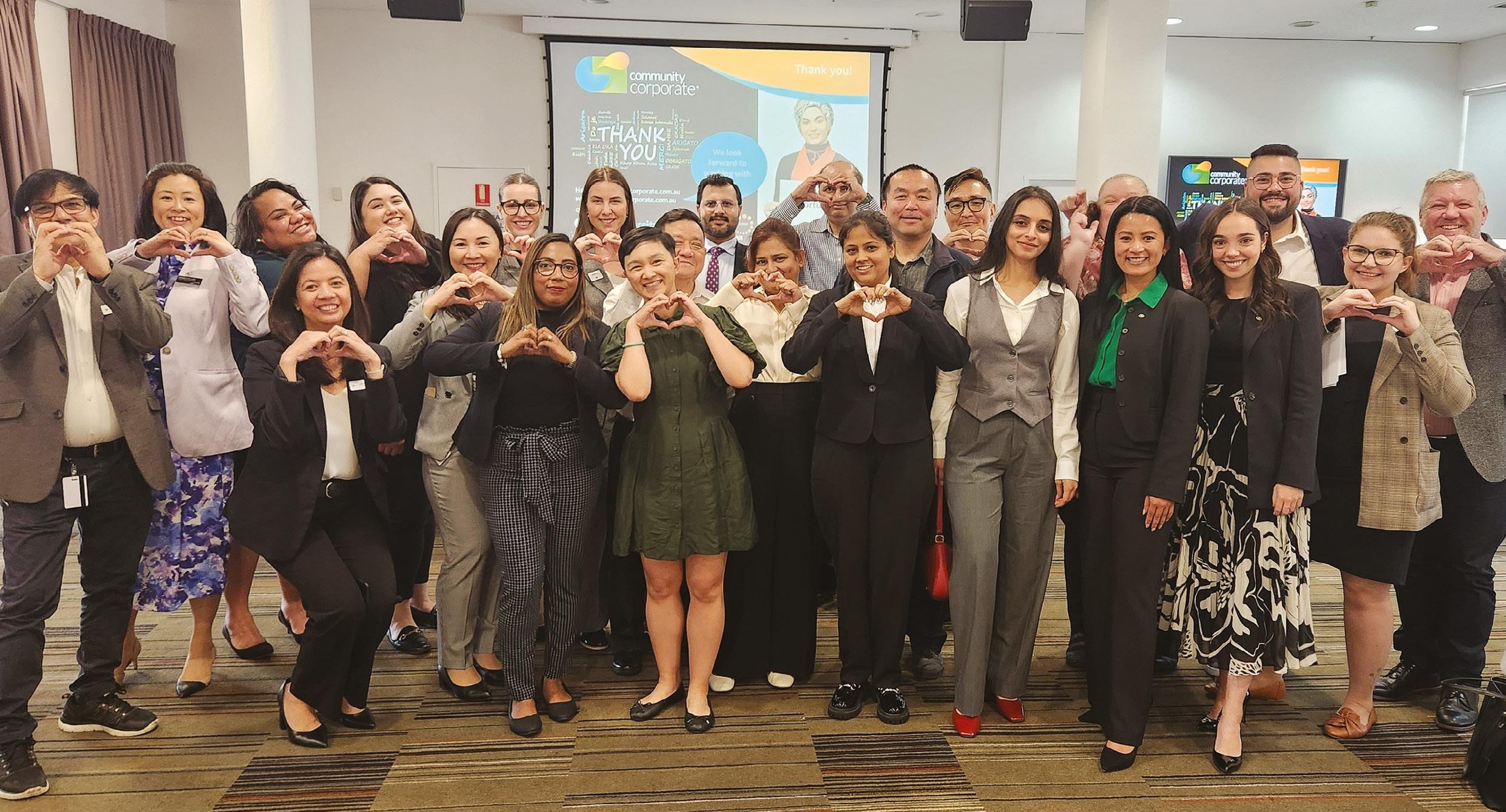
Accor has hired nearly 100 refugees and migrants from 18 different cultural backgrounds across 17 of its operated hotels and Qantas lounges, through a partnership with Community Corporate.
Established in early 2024, the partnership is exploring new pathways to recruit and support refugee and migrant talent, building a more inclusive workplace in the process.
“Hospitality is, at its core, about people – and the richness of our industry comes from the diversity of those who power it,” said Accor Pacific Chief Operating Officer, Adrian Williams,
“Inclusive hiring is not just a value we talk about – it is something we actively put into practice, because we see the extraordinary impact it has.
“This partnership is changing lives, strengthening our teams, and reminding us of what is possible when businesses lead with purpose.
“I encourage our peers across the hospitality industry to join us, because it makes our industry and society stronger.”
Late last year, Pro-invest Group partnered with Max Employment, one of the largest providers of employment services in Australia, to place more people with a disability in roles across its hotel network.
“We believe a diverse workplace is a better workplace for all and with 18% of Australians living with a disability of some sort, we hope this program will enable us to better address the needs of our guests who are differently abled,” said Pro-invest’s Deputy Chair and CEO APAC Jan Smits.

Max Employment Managing Director, Darren Hooper, said the partnership means positive outcomes for everyone involved.
“As Australia’s leading independent hotel operator, Pro-invest Group shares our mission to empower people with disabilities to achieve their employment goals,” said Hooper.
“We applaud them on this initiative, which will enable Pro-invest to find the best possible candidate for a wide range of jobs and will also make guests who have a disability feel more welcome.”

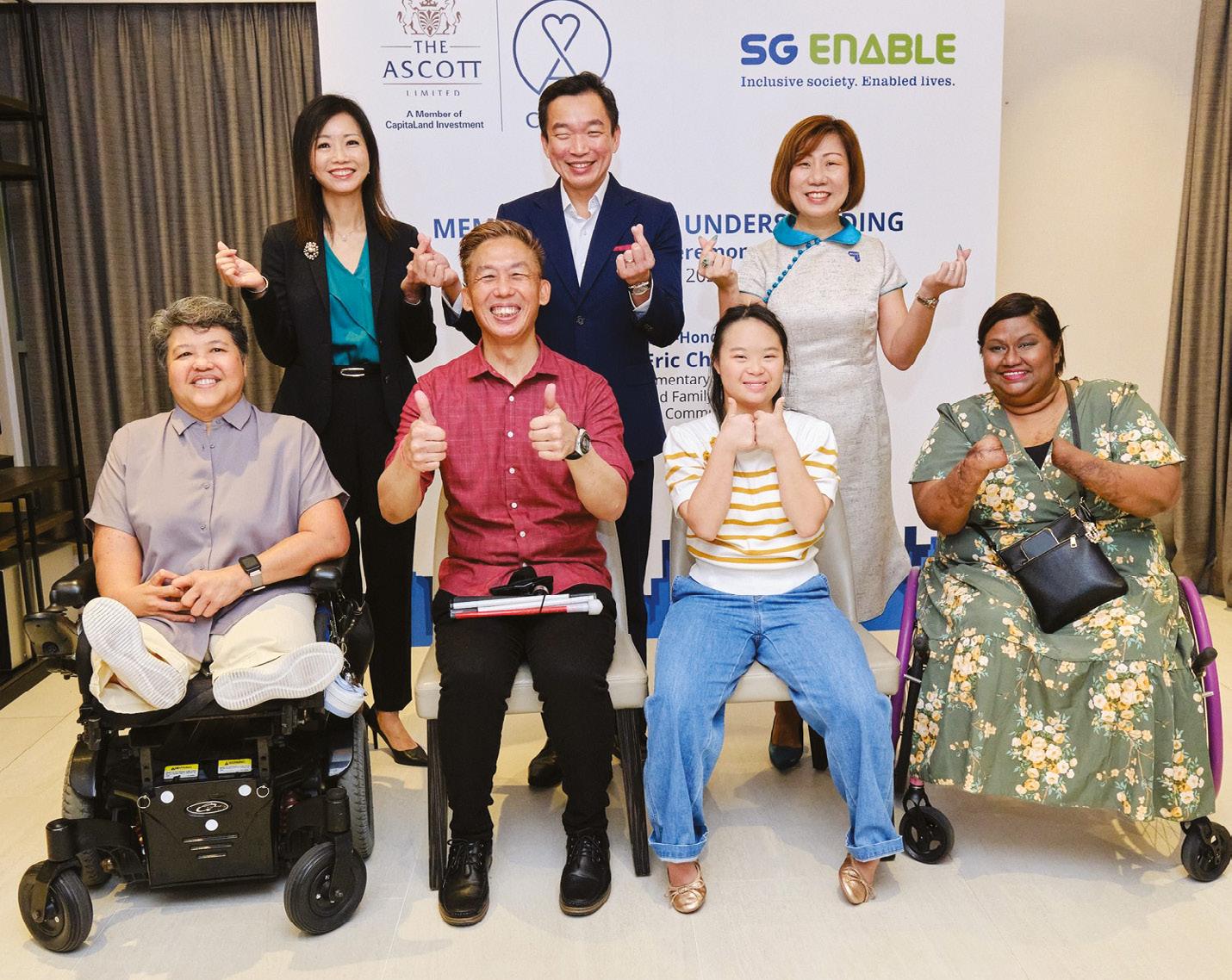
In June, The Ascott Limited launched the Disability Inclusion for Hospitality Professionals course at Ascott Centre for Excellence in Singapore.
It follows a 2024 Memorandum of Understanding (MOU) between Ascott and SG Enable, the focal agency for disability and inclusion in Singapore, to forge a long-term partnership to elevate disability inclusion and set new standards for accessible accommodation in the hospitality industry.
This co-developed course is Singapore’s first disability inclusion training tailored specifically for the hospitality industry.
Grounded in real-life experiences, the course aims to equip industry leaders and professionals with practical skills to create welcoming experiences for guests and colleagues with a disability.
National Workplace Safety Services, a specialist in electrical compliance, has set up strong relationships with agencies who specialise in Return To Work personnel, long term unemployed and both Disability Employment Services (DES), NDIS Employment Supports providers and Indigenous Employment Programs.
In the last financial year, the business had more than 15 placements.
“Having a background in Disabilities and OT I am very aware sometimes the hardest step is getting back into the workforce,” said National Workplace Safety Services Director, Corey Golowit.
“We strongly feel that the services our onsite staff provide are a good fit for persons in these categories and whilst most see the roles as a short- to medium-term option, the roles do provide that all-important first regular and substantial job in their journey back or first entry into the workforce.”
The program has resulted in many long-term employees, ranging from six months to five years and counting.
“We are very clear on what roles we offer and the average lifecycle of the technicians,” said Golowit.
“While it’s easy to pick the 5+ year employee as the standout success, and he absolutely is one of our best workers, we are also aware several of the others have left us to take up opportunities with meaningful careers and we take pride in the part we played in that.”
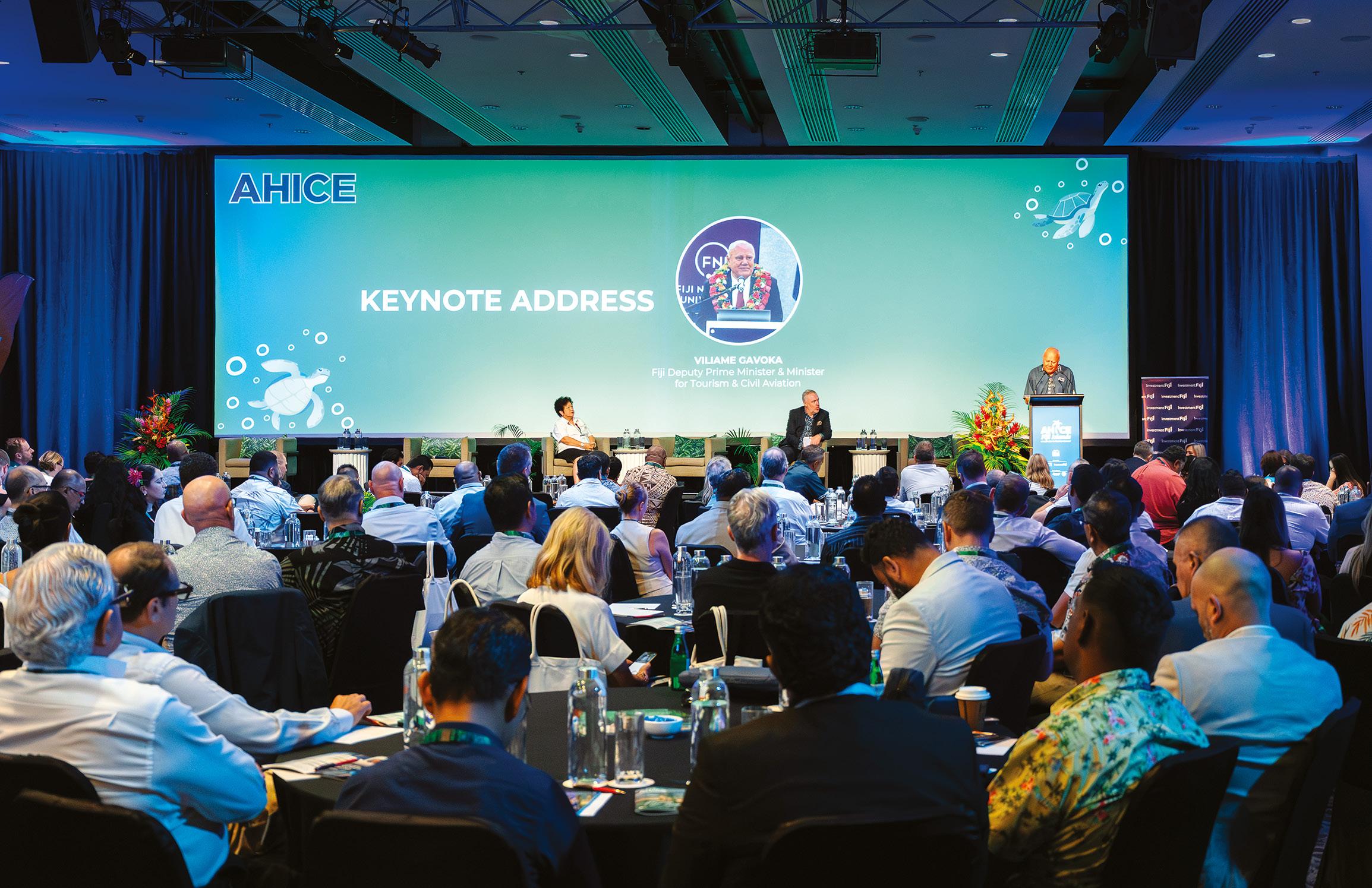
Over 350 hotel industry leaders were in attendance for the 2025 event
AHICE FIJI ISLANDS INVESTMENT IN TOURISM SUMMIT HIGHLIGHTED BOUNTIFUL OPPORTUNITIES IN THE FIJIAN HOTEL MARKET.
Opportunities abound in the Fijian hotel market – that was the message to the more than 350 hotel industry leaders that gathered at Sofitel Fiji Resort and Spa in June for the AHICE Fiji Islands Investment in Tourism Summit.
Fiji Deputy Prime Minister and Minister for Tourism and Civil Aviation, the Honorable Viliame Gavoka, and Fiji Deputy Prime Minister and the Minister for Trade, Co-operatives, Small and Medium Enterprises and Communications, the Honorable Manoa Kamikamica, were in attendance with both political leaders taking to the stage to highlight the bountiful opportunities in the Fijian market.
AHICE Fiji Islands commenced on the evening of Tuesday June 24 with close to 50 delegates attending a unique Winemaker Dinner in partnership with De Beaurepaire Wines.
The following day, over 20 hotel industry leaders took to the course at Denarau Golf And Racquet Club for a Charity Golf Day, presented by Tappoo, which raised FJD$3150 for Nadi-based children’s orphanage, Treasure House Fiji.
Thursday June 26 saw delegates gather for a full-day conference in the ballroom at Sofitel Fiji Resort and Spa.
The conference kicked off in spectacular fashion with a rousing performance and traditional welcome ceremony delivered by the Vou Dance Group.
In his opening remarks, AHICE Group President James Wilkinson highlighted Fiji’s skyrocketing tourism performance and was the first among many throughout the day to commend outgoing Tourism Fiji CEO Brent Hill for his work in promoting Fiji as a destination.
Wilkinson also announced that Investment Fiji and Tourism Fiji have extended their partnership with AHICE Fiji Islands
Investment in Tourism Summit for a further three years, ensuring the continued growth of the event in the region.
Investment Fiji Board Chair, Jenny Seeto, delivered an impassioned speech about the opportunity in Fiji to a room full of highprofile decision makers and visionaries in the global hotel investment sector.
“This is no ordinary conference. It is a time for connection, of alignment and of shared opportunity,” Seeto said.
“Fiji is open for investment. We are open to bold new ideas.”
Tourism is the country’s largest contributor to GDP, at 40%, and the market has shown great recovery and resilience in the wake of the pandemic.
“Arrivals are strong. Visitor spending is certainly going up, and the interest we are seeing from international hotel brands,
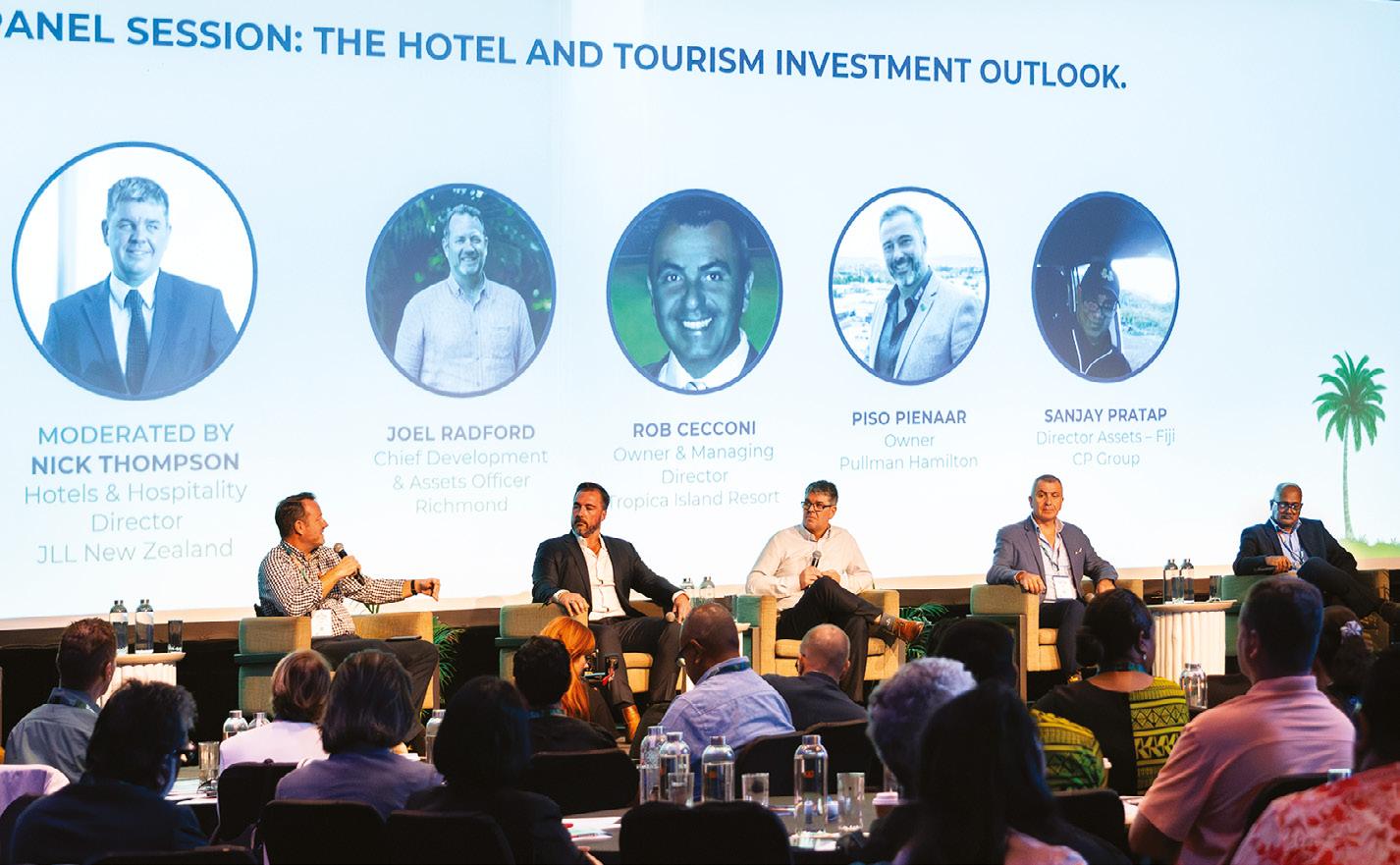
investors and developers is louder than ever,” Seeto said.
Seeto referenced Fiji’s National Digital Strategy goals and the landing of Google’s subsea cables, which are crucial in positioning Fiji to be a regional digital hub, as well as a US$200 million investment in infrastructure development in the northern region.
“We are looking beyond traditional markets and tapping into exciting new demand from Asia, North and Central America and South America, people are seeking unique, safe and sustainable destinations, places where you can switch off and still stay connected.
“And Fiji offers exactly that, a paradise that understands modern challenge and delivers with world class connectivity and hospitality,” Seeto added.
With the Fijian government offering attractive tax incentive packages for tourism related industries and other sectors of the economy, delegates were eager to hear from political leaders.
Fiji Deputy Prime Minister and Minister for Tourism and Civil Aviation, the Honorable Viliame Gavoka – a hotelier in his earlier career – highlighted the importance of safety and security of a destination for holidaymakers amidst escalating conflicts and geopolitical tensions in other parts of the world, with Fiji tourist numbers seeing record numbers.
“Right now, we are experiencing one of the most exciting chapters in our tourism story,”
Deputy Prime Minister Gavoka said.
“Arrivals are at record highs and investment across the sector is accelerating.
“16 projects are currently under construction, set to deliver more than 2200 additional rooms, and there’s still room for more.”
Several high-profile hotel owners took to the stage to share their outlook on the hotel and tourism market
Deputy Prime Minister Gavoka also spoke about raising the standard of Fiji’s accommodation offering.
“We are calling on underperforming or closed accommodation providers to partner with white label operators and asset managers who can help uplift quality, tap into growing demand and deliver stronger returns,” he said.
“The government is advancing bold new policies, our new tourism legislation, now in development, will create a modern framework to protect integrity of our sector, encourage green investment and make sure tourism benefits Fijians.”
Fiji Deputy Prime Minister and the Minister for Trade, Co-operatives, Small and Medium Enterprises and Communications, the Honorable Manoa Kamikamica, discussed Fiji’s journey to embracing renewable energy, saying that he expects this mission towards
a circular economy to escalate rapidly in the next five years.
“We are in the process of embarking on [the delivery of] a platform where allotment plans and applications are launched,” Deputy Prime Minister Kamikamica said.
“All agencies look at the application concurrently, approve it concurrently, and it will significantly shrink the time it takes to get investment approved.
“If that happens, we will be making some decent strides towards making it easier to do business in Fiji.”
The Deputy Prime Minister also discussed the recent approval by cabinet of a policy around infrastructure projects.
“Right now, we are still reeling from a debt to GDP challenge. One of the options we’ve explored and approved through cabinet is cost sharing on infrastructure, and so that’s available to investors [in some cases],” he explained.
“The government of the day is very serious about facilitating investment.”
Tourism Fiji Executive Director of Regions Robert Thompson presented a Fiji Tourism Industry Outlook, highlighting the need to fill a gap in the nation’s accommodation sector.
“This is one of the few sectors where investment equals immediate physical impact,” Thompson said.
“But we also know where the constraint is. We’re under supplied. Even with the 16 projects underway, adding roughly 2200 rooms we still face a capacity gap.
“That’s not just a challenge, it’s a very real opportunity for new capital, re-positioned assets and smart brand plays.”
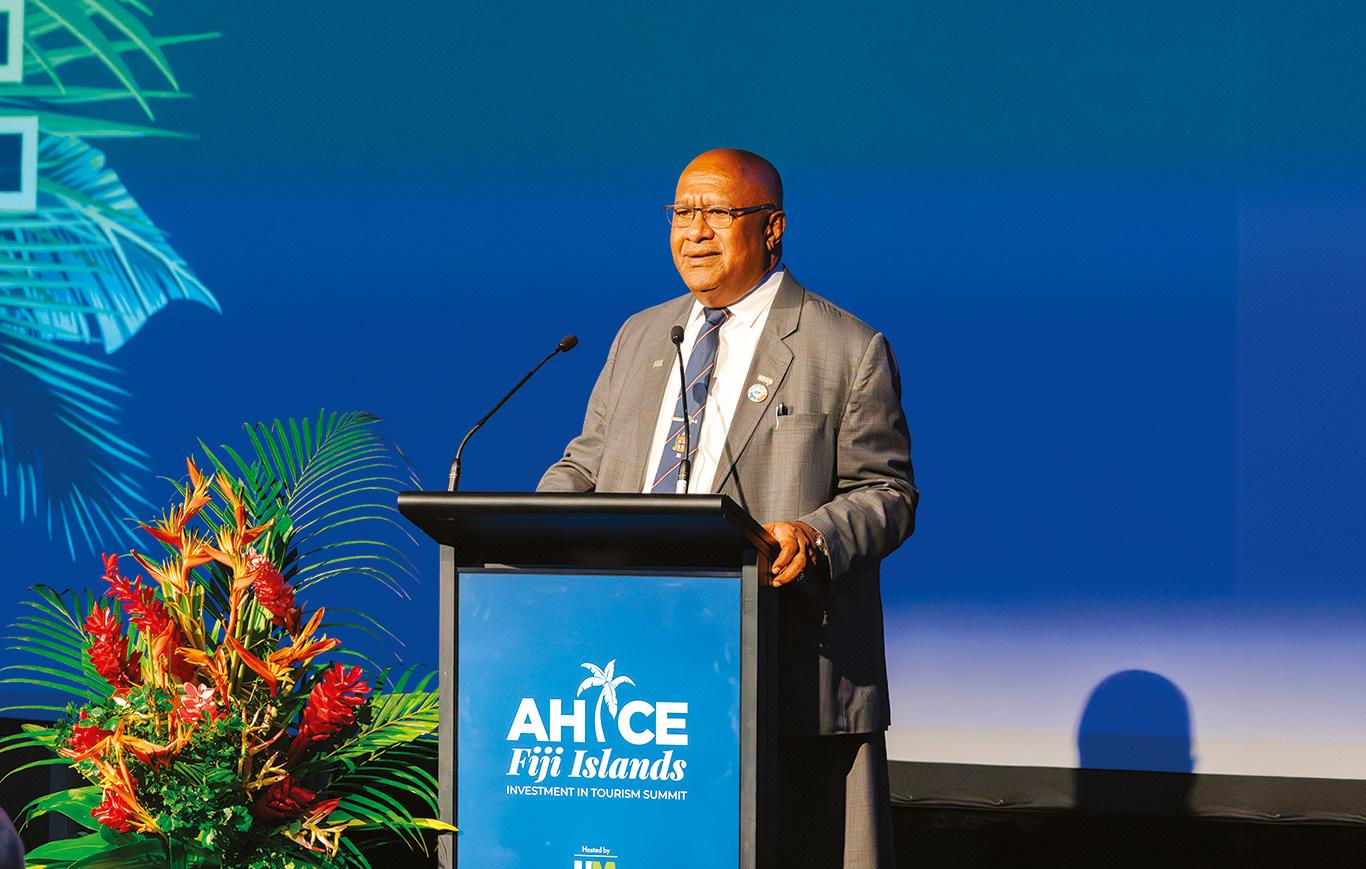
Fiji Deputy Prime Minister and Minister for Trade, Co-operatives, Small and Medium Enterprises and Communications, the Honorable Manoa Kamikamica, addressed delegates
JLL New Zealand Hotels and Hospitality Director, Nick Thompson, took to the stage to present the South Pacific Real Estate Market Outlook, examining the impact of factors such as supply chain disruption, escalating conflict and inflation uncertainties.
He highlighted the lack of lifestyle hotels, multi-generational offerings and experiential luxury in the market.
While Thompson said investor sentiment has softened over the past six months, it is expected to pick up as interest rates come down.
In the following panel session, The Hotel and Tourism Investment Outlook, Thompson was joined by several owners and developers to discuss the current landscape.
Richmond Chief Development and Assets Officer, Joel Radford, discussed plans for a new lifestyle development at Sofitel which will add 176 rooms and an improved Waitui Beach Club.
The panel discussed opportunities in health and wellness resorts and the challenges of construction in a market that is facing a lack of quality contractors and subcontractors.
In a hotelier Q&A, AHICE Group President, James Wilkinson, sat down with Marriott International Vice President of Hotel Development for Australia, New Zealand, and the Pacific, Richard Crawford, who praised the quality of attendees at the conference.
“Yesterday was the single best day I’ve had at any AHICE conference – we had a full day of meetings, on the hour, every hour,” Crawford said.
Delegates had an opportunity to meet top quality suppliers and connect with colleagues over a networking lunch
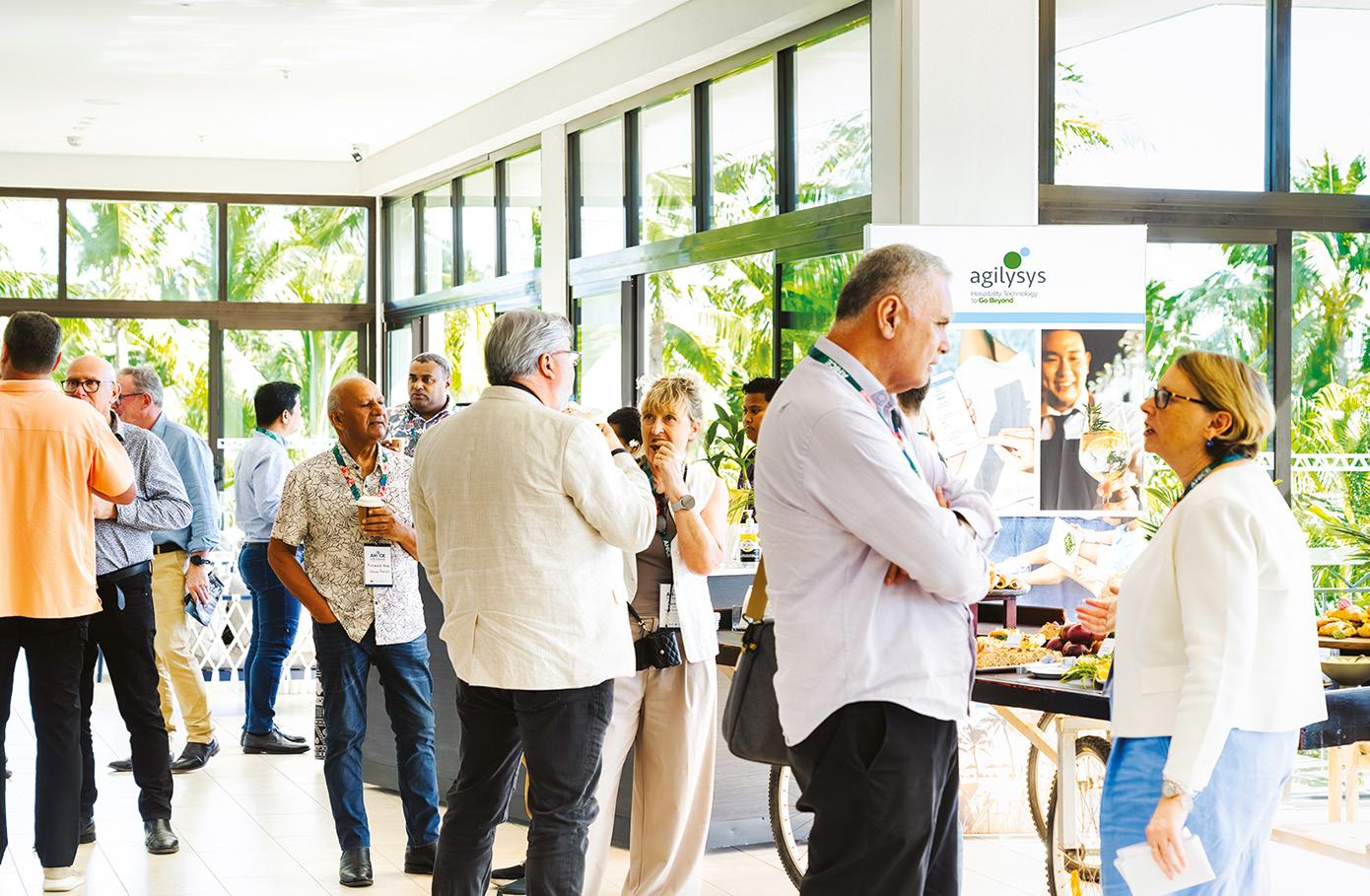
“About five years ago, my phone rang four times a year with Fiji opportunities. Now it rings about 34 times a year.”
Crawford also revealed that there will be a 250-room Ritz-Carlton coming to Fiji. He said younger travellers are looking for new and more exciting options when it comes to their hotel stay, highlighting the need for a trendy beach club in the market.
Australian Trade Commissioner for the Pacific and Timor-Leste, Tim Houghton, talked figures, stating there is US$1.6 billion in the pipeline for Fiji. That figure includes US$497 million in the tourism sector – 21 accommodation projects amounting to US$480 million and only two projects in experiences worth US$16 million. It also includes US$235
million in diversification initiatives or commercial, and US$863 million in enabling infrastructure.
Hotel technology trends were up for discussion in a morning panel session featuring representatives from leading suppliers including Agilysys, Assa Abloy, Encore and Shiji.
Technology’s role in personalisation of the guest experience was a hot topic with Agilysys Sales Director, Craig Dennington, highlighting the importance of understanding guest preferences and targeting them in such a way that builds an emotional connection.
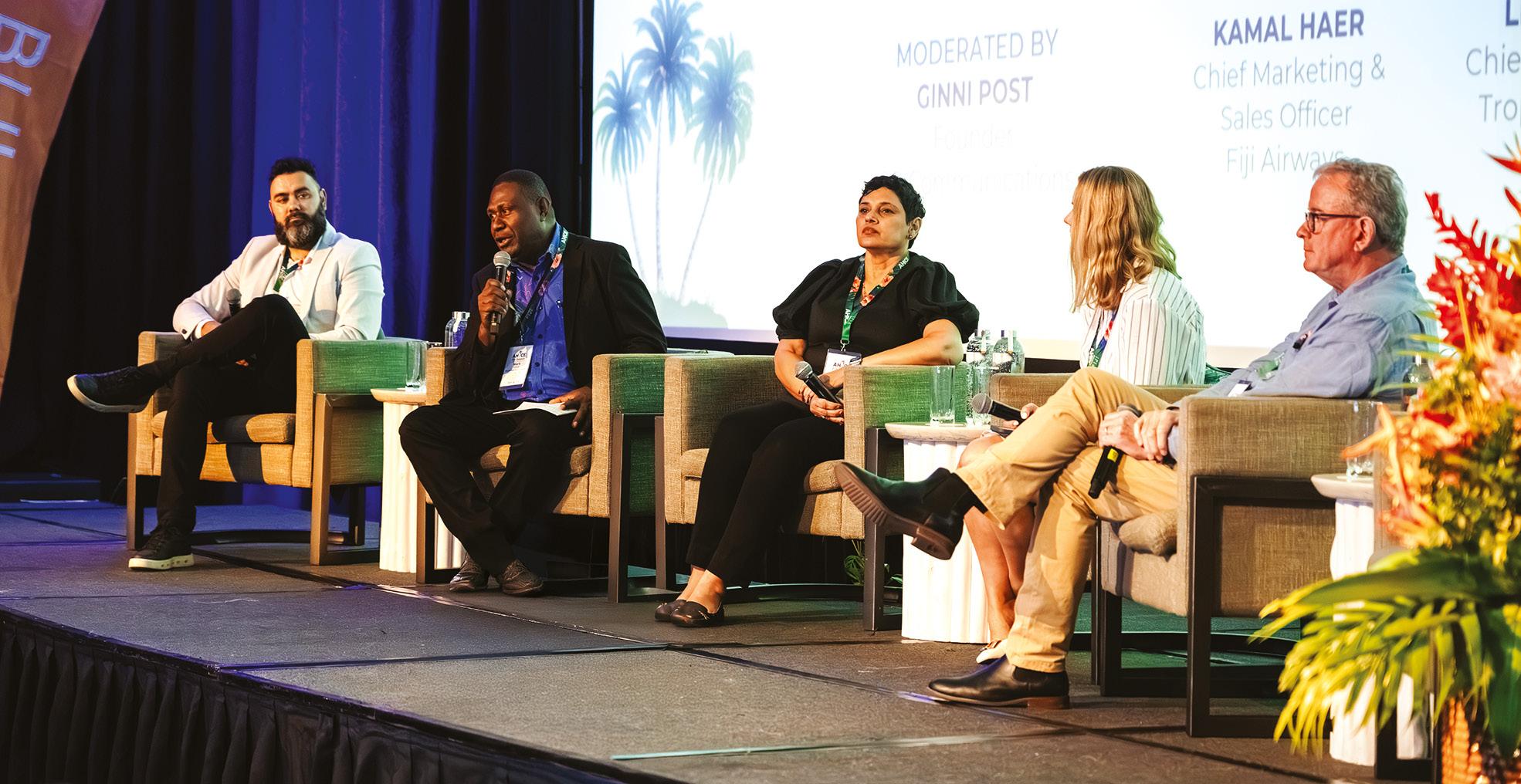
“Right now, we are experiencing one of the most exciting chapters in our tourism story.”
Fiji Deputy Prime Minister, the Honorable Viliame Gavoka
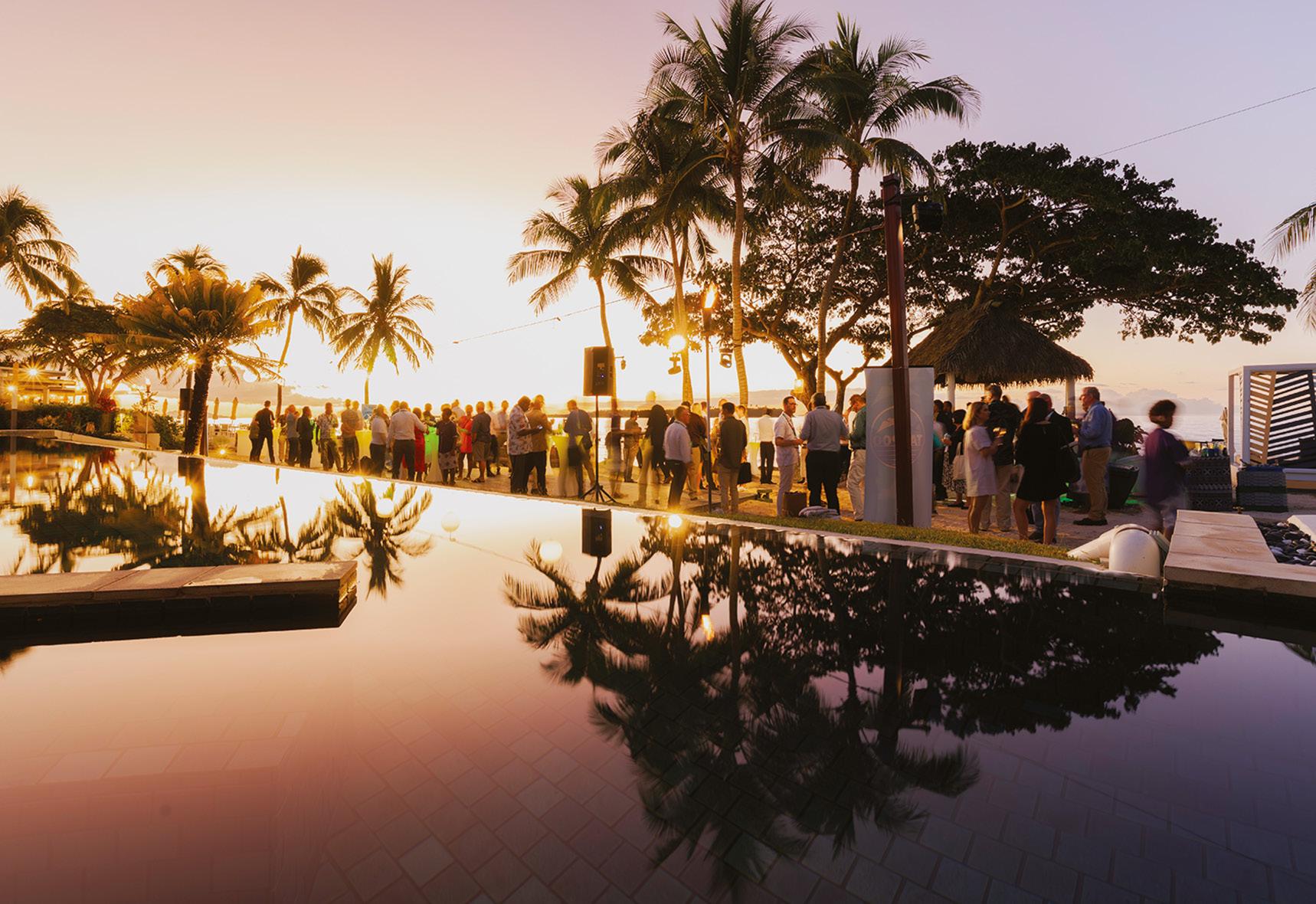
Jay Singh, owner of Crowne Plaza Fiji Nadi Bay Resort and Spa, discussed the extensive works that have been done on the property since its acquisition during the pandemic as well as investments in the US market.
In the Essential South Pacific Tourism Outlook, leaders discussed the opportunities in wellness, MICE and super yachts for big spenders, before Fiji Airways Chief Marketing and Sales Officer, Kamal Haer, highlighted demand for ultra luxury brands, and deeper loyalty and connections.
Haer said travellers are willing to spend more for premium seating on aircrafts, with North America Business Class travel showing strong growth.
Leaders from hotel operators including Hilton, IHG, Radisson Hotel Group and Raffe Group shared their 2025 outlook, discussing challenges around staffing, pressure on rates, advancements in technology and evolving food and beverage offerings.
IHG Hotels and Resorts Managing Director – Australasia and Pacific, Matthew Tripolone, talked about opportunities in the upscale and ultra luxury segment, the importance of harnessing talent and providing career progression pathways.
Investment Fiji Chief Executive Officer, Kamal Chetty, led a discussion on Future Hotel and Tourism Projects, including the Lakuto
Foreshore development, the Koro project and Rydges Fiji.
Accor Vice President Development –Pacific, Brett Forer, highlighted the growing importance of food and beverage, citing Mondrian Gold Coast as a successful example, generating over AU$1 million in revenue since opening in May.
In a keynote Q&A, New Zealand cricketing legend, Scott Styris, spoke of his adventures travelling internationally and some close calls in areas of conflict. He also talked about the power of positive leadership in bolstering young talent and providing pathways to success for people from low socio-economic areas.
Leading creatives took to the stage to discuss trends in hotel design – from cultural connection to experiential luxury and local sourcing.
Panellists highlighted the importance of cultural representation in design and embracing local artists and craftspeople.
Hotel development leaders from EVT, Hilton, IHG, Marriott and Wyndham shared their views on hotel sector growth across Fiji and the South Pacific, emphasising a resilient market with very strong rate growth and strong government support.
Sustainability was at the forefront of one panel discussion with examples of best practice in the industry. Hilton Manager,
Development – Australasia, Amelia Perez, spoke of increased demand among owners for more sustainable developments, citing Hotel Marcel in the US as a leading example globally.
Sudima Hotels Chief Operating Officer, Les Morgan, spoke of the challenges of getting funding for sustainable developments.
Amid the rise of third-party hotel management companies, key leaders took to the stage to unpack this concept which is relatively new to the Fijian market.
With big global operators eyeing growth, many owners are looking to leverage the power of a major brand through a third-party operator that promises to focus on driving revenue for the property.
Marriott International’s Tristan Cooper pointed to the high percentage of franchised hotels in the US market, saying it’s a model the company is very comfortable with and intends to leverage in the Pacific.
When conference sessions came to a close, delegates enjoyed a gala reception on the beach at Sofitel Fiji Resort and Spa. Presented by Accor and Tappoo, before the conversatoin continued at the ‘after dark’ networking bar at Club Wyndham Denarau Island, Trademark Collection by Wyndham, presented by Travel and Leisure Co and Tappoo. n
ahiceconference.com/fiji
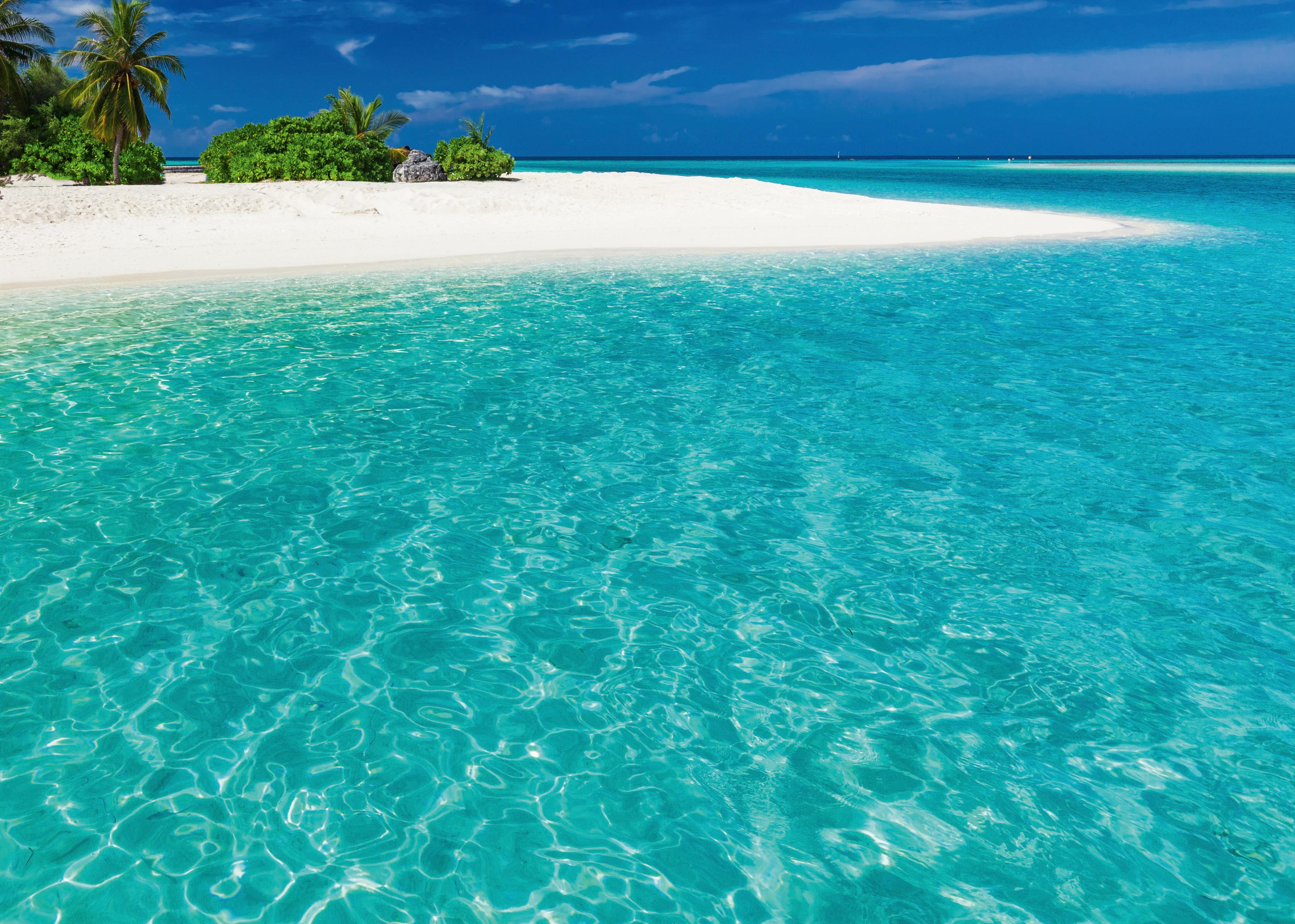
















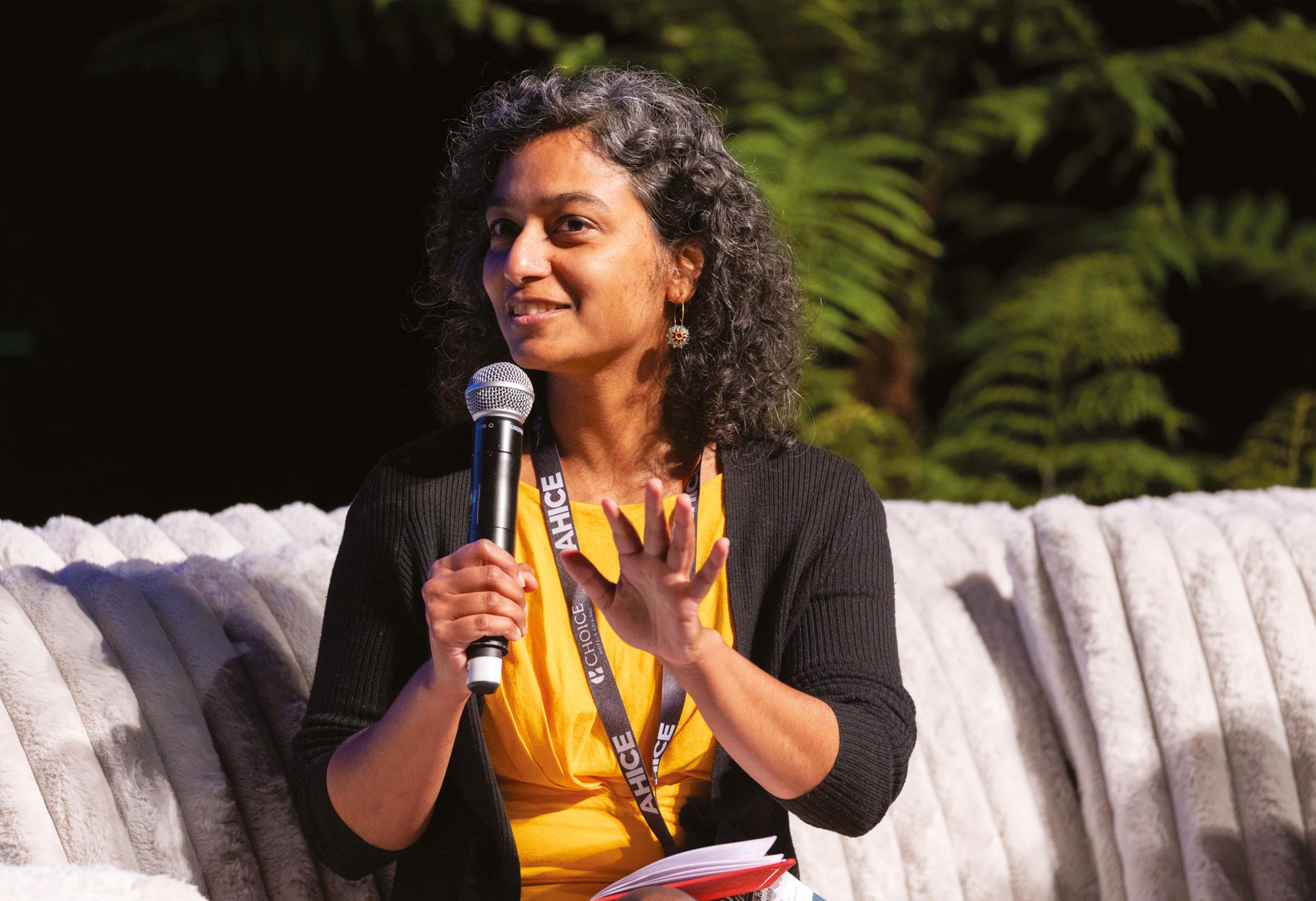
THE COUNTDOWN IS ON TO THE FOURTH ANNUAL AHICE AOTEAROA THIS AUGUST.
Acollection of New Zealand’s most influential hotel and tourism leaders will take to the stage at the upcoming Aotearoa Hotel Industry Conference and Exhibition (AHICE), hosted by HM Magazine and Hotel Council Aotearoa.
Taking place from August 12-13, 2025, at Te Pae Convention Centre, Christchurch, AHICE Aotearoa will once again bring together the region’s top hospitality executives with leaders from Accor, EVT, TFE Hotels, Travel and Leisure Co, Hilton, Panache Hotel Group, Radisson Hotel Group, Sudima Hotels, Wyndham, and many more, registered to attend.
On Wednesday August 13, New Zealand Minister for Tourism and Hospitality and Deputy Leader of the House, the Hon. Louise Upston will address delegates in a keynote session.
Also on the tourism front will be Tourism New Zealand Chief Executive Officer, René
De Monchy, who will take to the stage for a conversation with Hotel Council Aotearoa Strategic Director, James Doolan.
This year’s AHICE Aotearoa will see the New Zealand debut of the INN Tech Hotel Technology Summit. Following successful iterations in Australia and South East Asia, the two-hour Aotearoa Summit will feature punchy power sessions and a keynote address uncovering new developments in hospitality technology, from revenue management to onproperty tech and much more.
Expect to hear from leaders at Assa Abloy, Agilysys, FutureLog, Liverton and more.
There will also be a discussion about the importance of live music in hotels, with Los Angeles-based musician Toby Rand, flying in from Los Angeles for a conversation with AHICE Group President and HM Editor-InChief, James Wilkinson.
Hind Management Chief Sustainability Officer, Kanika Jhunjhnuwala, will present at AHICE Aotearoa
Lead singer of Ashenmoon, RadioXX and Juke Kartel, Rand started his career in Melbourne and has gone on to be an acclaimed artist in the United States and Australia.
Sustainability will be firmly in the spotlight with a keynote presentation by Hind Management Chief Sustainability Officer, Kanika Jhunjhnuwala.
Following continued growth in the New Zealand market, EVT Director of Hotels and Resorts, Norman Arundel, will discuss market challenges and opportunities in a Hotelier Q&A.
In a panel session, View from the Top: The Leaders’ Expectations (part 2), leading hoteliers will share their outlook for the year ahead. Panellists will include Craig Bonnor, Managing Director, Cordis Auckland; Lachlan Hoswell, Managing Director, Business Unit Australasia, Radisson Hotel Group; Karl Luxon, Chief Executive Officer Scenic Hotel Group; and Simon White, General Manager Hotel Operations New Zealand, EVT. n
ahiceconference.com/aotearoa

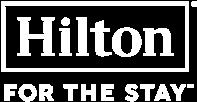

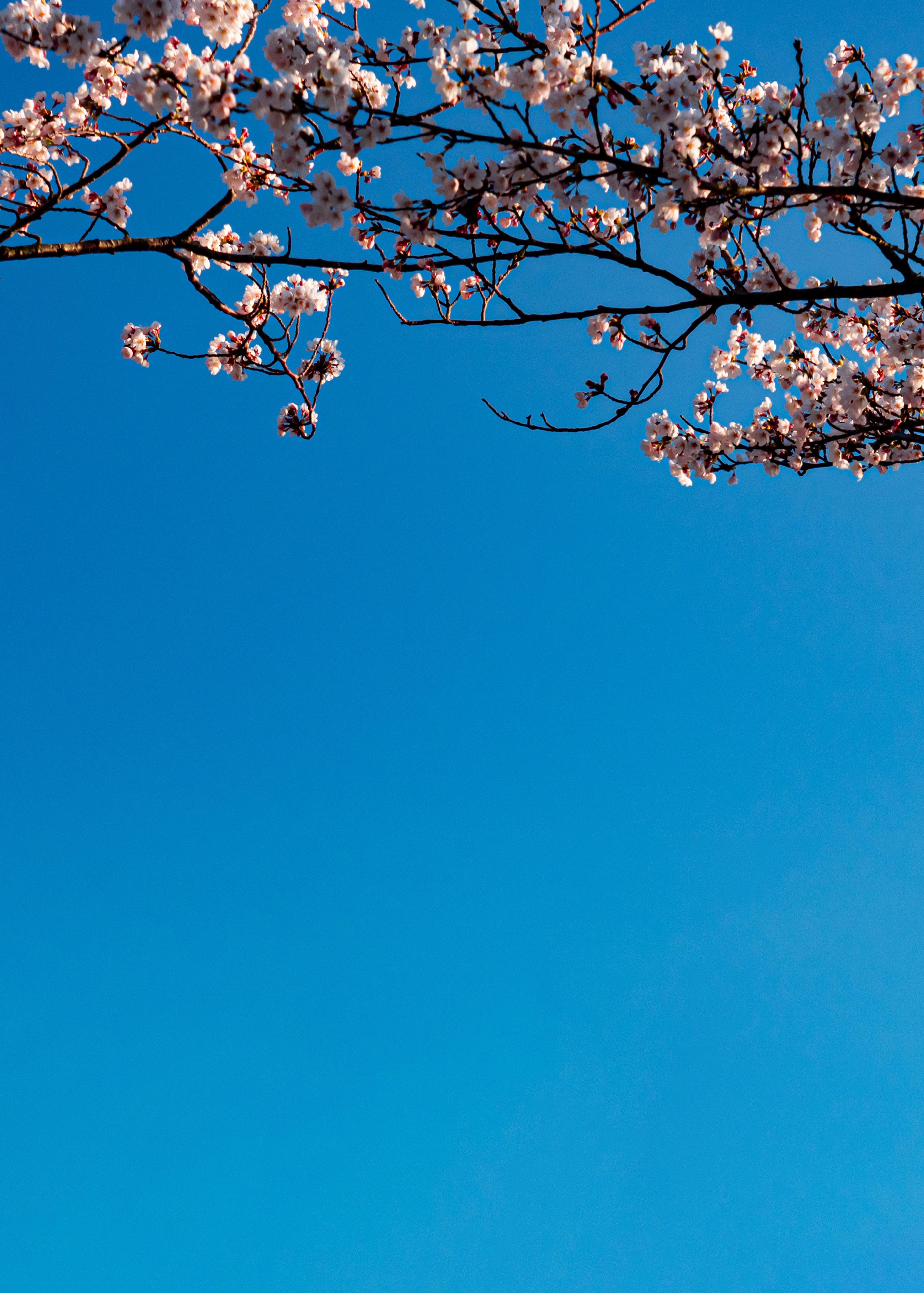






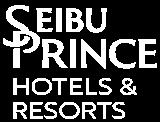
Close to 200 investors, owners, operators and executives were in attendance at the inaugural AHICE Far East Asia
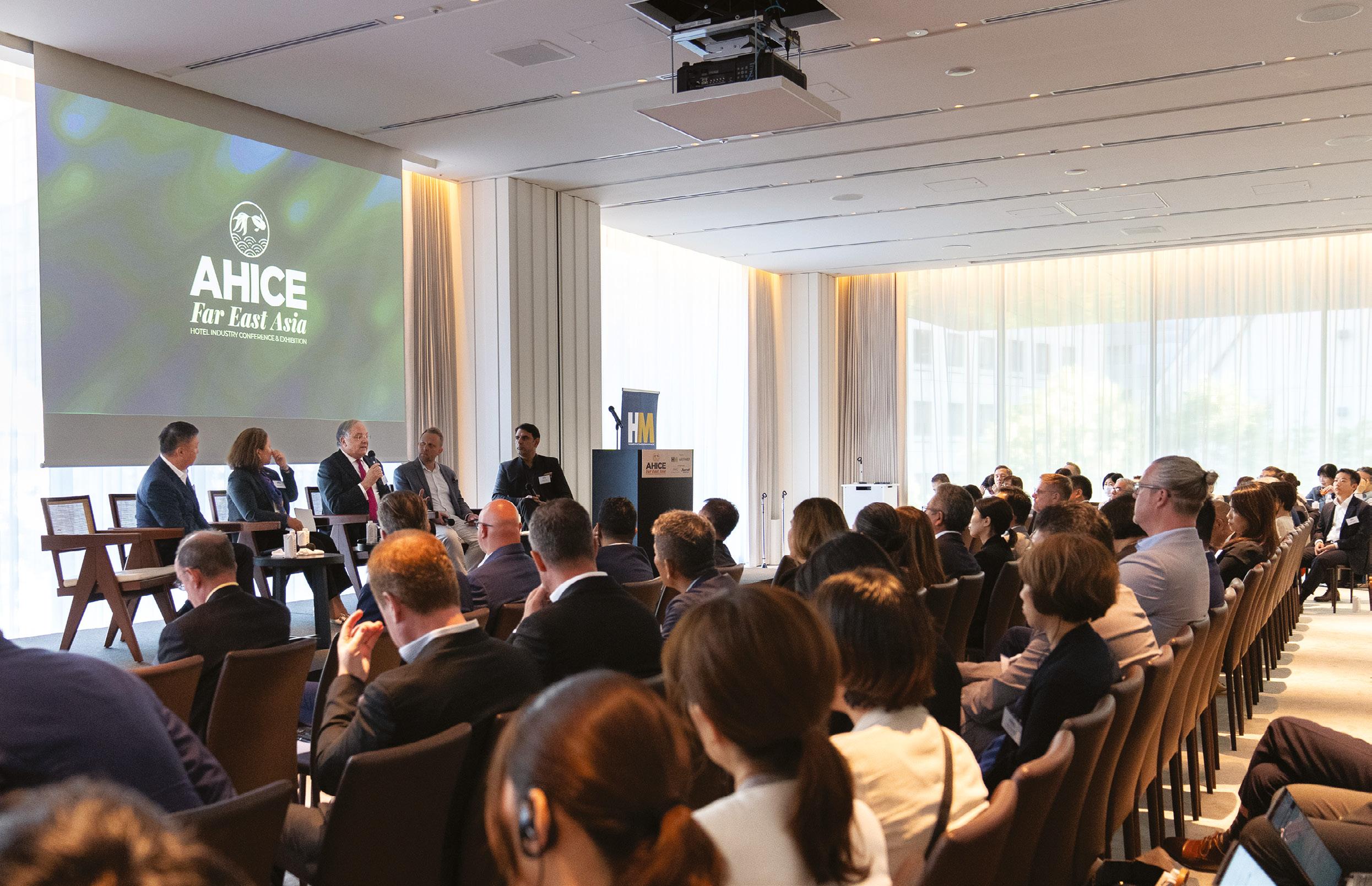
SEPTEMBER WILL BE A BUSY MONTH FOR AHICE, WITH UPCOMING EVENTS IN JAPAN AND THE MALDIVES.
The Asia Hotel Industry Conference & Exhibition (AHICE) returns to two exciting destinations over the coming months, with events in Tokyo, Japan and Malé, Maldives this September.
AHICE Far East Asia, Japan’s first combined hotel operations and investment conference, takes place at Grand Prince Hotel Takanawa, Tokyo on Thursday 4 September.
Last year, close to 200 investors, owners, operators and executives were in attendance at the inaugural event to discuss some of the top trends and outlooks for one of the world’s most in-demand destinations.
Japan’s leading hotel, aviation and tourism owners, operators, consultants and suppliers are expected to be in attendance again this year, alongside more than 25 key speakers from across Japan, Asia-Pacific and globally.
On Thursday 25 September 2025, the AHICE Maldives Hotel Investment Summit will make a return, following a successful debut event in 2024.
At last year’s event, there was standing
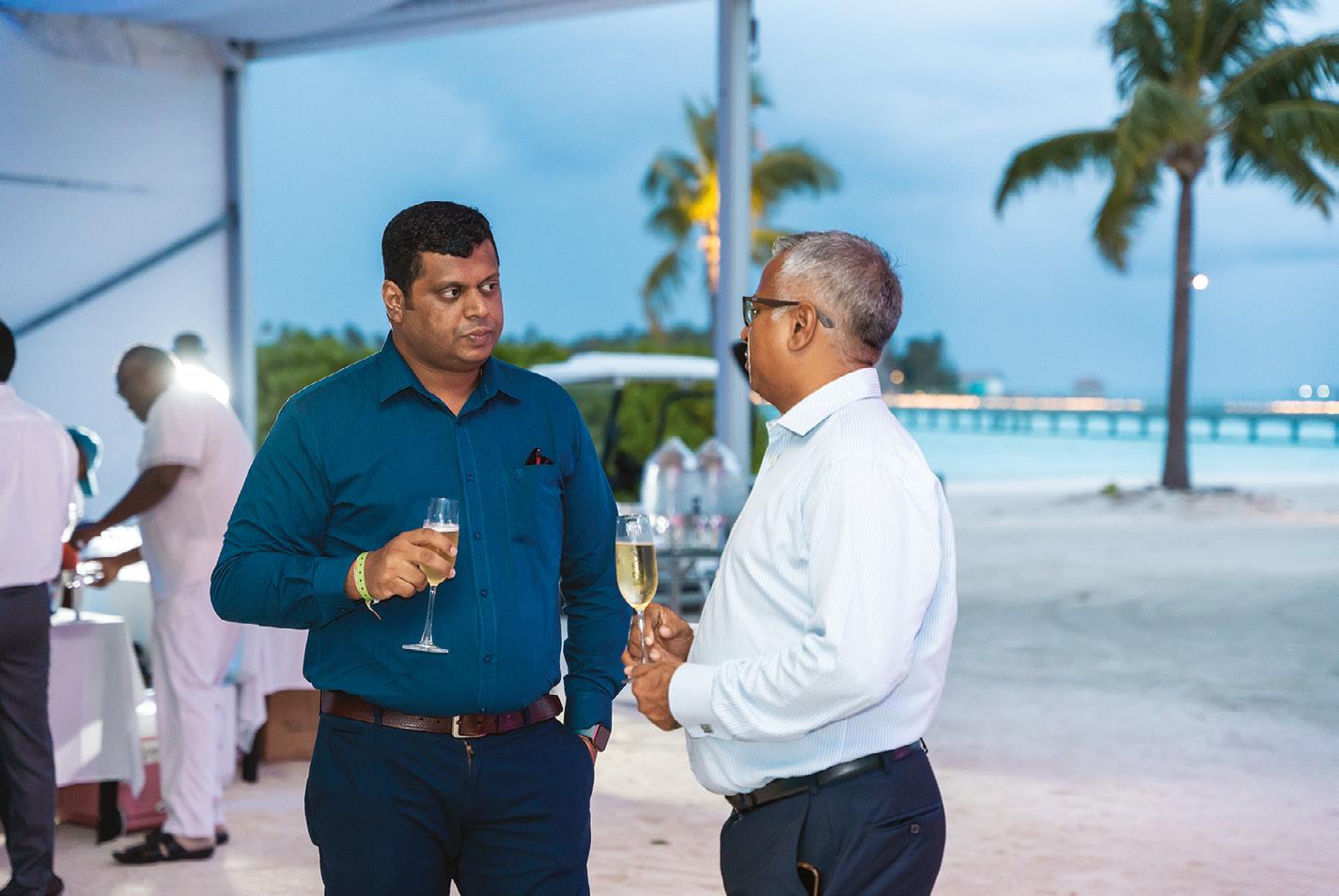
AHICE Maldives Hotel Investment Summit was created to grow tourism and hospitality opportunities in the nation
room only as over 140 leading hotel and tourism owners, investors and executives turned out in force at Crossroads Maldives, where tourism and hospitality development, operations, ownership and growth in the nation took centre stage.
The event attracted delegates from across the country and the globe – including the United States, Australia, Turkiye, Singapore, India, Sri Lanka, Thailand, the United Arab Emirates, Philippines and more.
Headlining the attendee list was an unrivalled number of key investors
and owners, alongside a large Maldives Government contingent and leading operators from across the islands.
These latest events highlight the success of AHICE, which has expanded to seven locations globally: Australia, New Zealand, Singapore, Fiji, Japan, Maldives and Hawaii.
The flagship AHICE Asia Pacific event attracted more than 1,600 delegates over three days in Adelaide, making it the largest accommodation event in the APAC region. n
ahiceconference.com


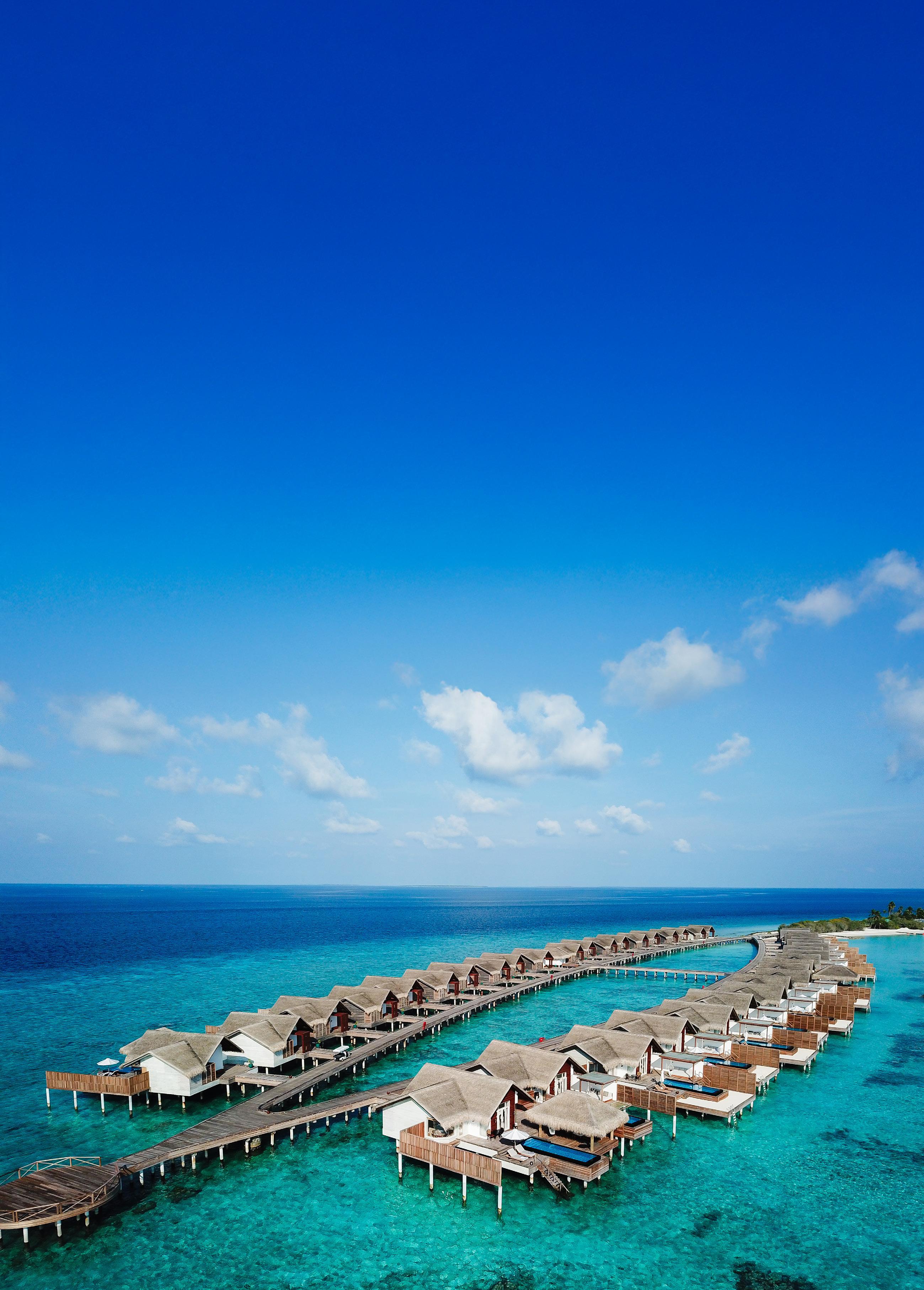



THE RELIABILITY OF ECONOMY AND MIDSCALE HOTELS CANNOT BE UNDERESTIMATED, WITH THESE SEGMENTS CONTINUING TO ATTRACT NEW INVESTORS.

Brett Forer, Vice President Development Pacific
Midscale and economy hotels continue to thrive across both city and regional markets, offering the ideal mix of quality, affordability and local flavour. With an expanding global middle class and a strong appetite for travel, it’s no surprise these segments remain a firm favourite with guests, and a smart investment for owners.
At Accor, we’re proud to lead this space with iconic brands like Novotel, Mercure and Ibis, which continue to attract strong owner interest. These hotels meet the needs of both leisure and business travellers, delivering consistent, welcoming stays with a sense of place. Mantra also continues to perform strongly. As Australia’s largest hotel brand, with 75 properties nationwide, Mantra offers everything from inner-city hotels to spacious self-contained apartments in popular holiday spots. Mantra Melbourne Epping, just 15 minutes
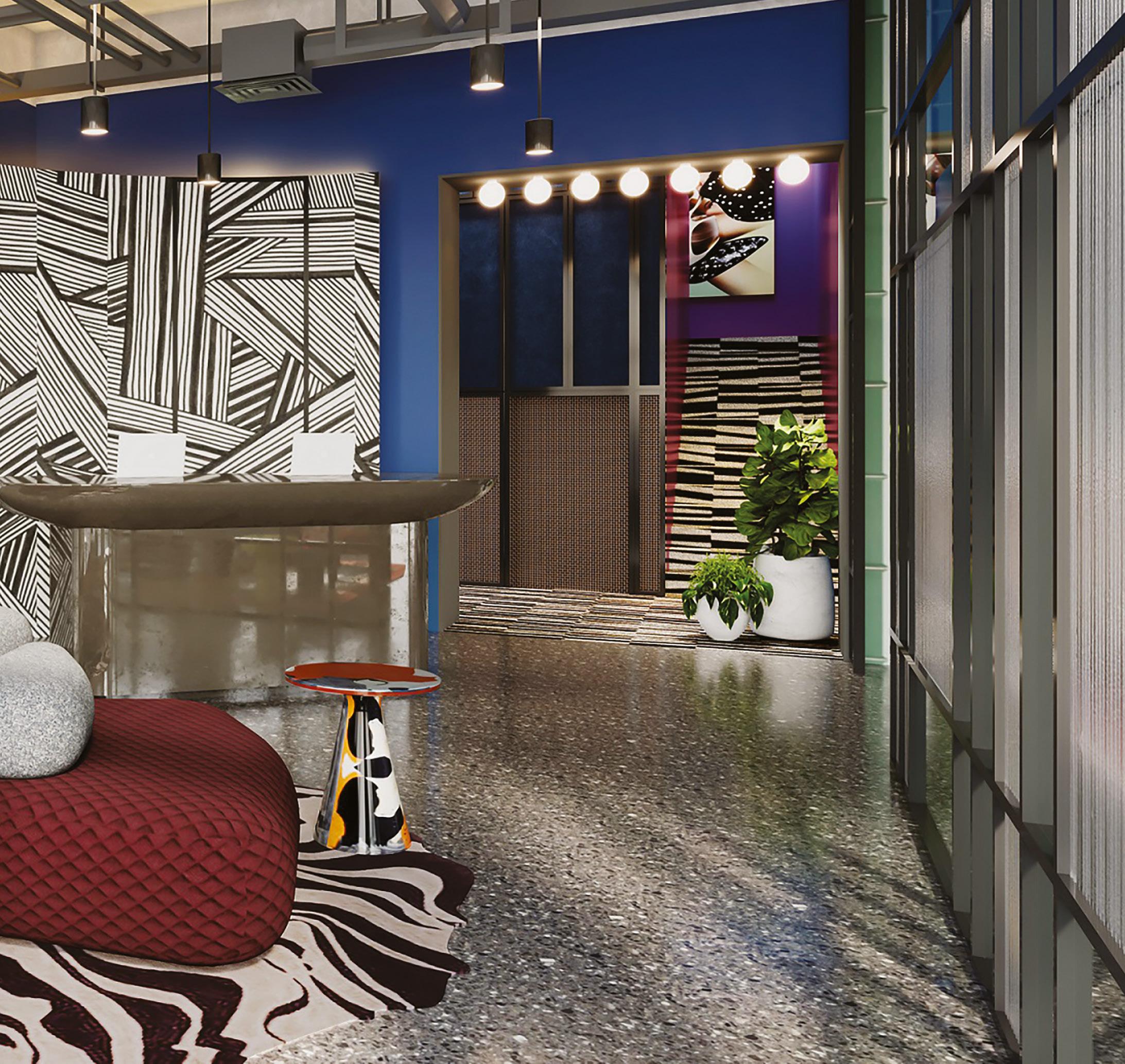
from Melbourne Airport and boasting state-of-the-art facilities, is a standout and perfectly suited to both short and long stays.
Looking ahead, Tribe Auckland Fort Street is set to open in September. A design-led brand born in Perth, Tribe is now making waves internationally with openings in Paris, London, Amsterdam and Bali. With 60 rooms, the Auckland hotel will be the first Tribe in New Zealand – bringing bold design and artful public spaces to the heart of the city.
Accor’s pipeline also includes Novotel Sydney Cabramatta, opening later this year in a high-growth corridor of Sydney’s southwest, and Mercure Melbourne La Trobe Street, an 18-storey new build set to open in 2026.
These properties highlight the enduring appeal of Accor’s midscale and economy brands, which offer both versatility for owners and high recognition among guests. As travel patterns continue to evolve, these properties are well placed to meet the needs of modern travellers.

Trent Conroy, Head of Investments & Portfolio Growth
Australia’s regional economy and midscale hotel sectors are gaining traction, continuing to demonstrate operational resilience and growing investor appeal.
Commercial real estate and investment firm CBRE confirms this momentum, with the 2025 Hotel Outlook from February 2025 reporting national occupancy at 71%, RevPAR up 3.8%, and ADR holding steady. While capital cities continue their recovery, regional destinations are thriving, driven by robust domestic leisure demand and a growing preference towards accessible, value-led stays outside metro centres.
Dedicated regional accommodation funds are emerging, focused on building diversified portfolios across key regional growth corridors. New entrants to the sector are also driving demand, many of whom
have franchising backgrounds in adjacent industries such as fuel and food retailing. These commercially minded operators understand the value of partnering with the right brand to support long-term success.
For owners and operators, Choice Hotels delivers the systems, support, and scale needed to thrive in regional markets. Our local team provides tailored advice and development pathways designed to meet owners where they are, whether they’re first-time entrants or seasoned multi-asset investors.
As the appetite for freehold and leasehold assets in the economy and midscale segments intensifies, demand is often outpacing supply. Real estate brokers report that some listings receive a high volume of enquiries on the day they hit the market, and we’ve witnessed high-quality assets sell in very short timeframes. In this competitive environment, the Choice development team is boosting resources to help our owners and operators secure assets, both onmarket and off-market.
With the known constraints on new supply, investors are increasingly turning to conversions and refurbishments to create value. A recent example is the Alluna Motel in Armidale, New South Wales, acquired as an economy motel-style property. The owner has closed the business for renovations and will soon relaunch as a contemporary spa and health retreat under our Ascend Collection brand.
As a market leader in regional accommodation, Choice Hotels remains committed to growing this segment. We continue to welcome new and experienced owners into our network, backed by a team of local experts, dedicated to helping support strong financial performance and long-term capital returns.

Norman Arundel, Director of Hotels & Resorts Operations
One of the early pioneers of the Australian hotel business – who’ll remain nameless because I can’t quite vouch for the accuracy – was rumoured to
have said: “I own 3-star hotels so I can afford to stay in 5-star ones… not the other way around.”
True or not, the point lands: the economy and midscale sectors deliver some of the smartest investment dynamics in the business.
Of course, like all segments, this market is evolving. But the fundamentals haven’t changed – strong locations and a simple, consistent value proposition still win.
EVT’s been in this space for years. Our Independent Collection – hotels like The Victoria, The Pensione in Perth and Hotel Motel in Adelaide – proves that well-run, well-positioned assets can punch well above their weight with guests and investors alike.
Now, with Lylo, we’re shifting things up. It’s turning the economy sector on its head – using the buzz of a lifestyle hotel with the accessibility of a hostel. Pods, ensuite rooms, private rooms, all tied together with smart communal spaces, customer led experiences and tech-led service. The result? Social accommodation that’s drawing in guests who’d never have looked twice at a traditional economy hotel.
For EVT, this isn’t just a side business segment. Economy hotels are a core part of our strategy. We’re committed – improving what we’ve got, expanding where it makes sense, and using Lylo to push the boundaries of what this category can be.
Because with economy hotels, value isn’t about being the cheapest, it’s about being the smartest, and that applies to hotel owners and guests alike.

The midscale hotel market across Australia and New Zealand is undergoing a meaningful evolution, driven by rising demand for quality, value-led experiences and a growing appetite for branded consistency amongst travellers.
At IHG we are proud to be leading this evolution through relentless focus on delivering globally trusted, high-performing brands. Through

TFE Hotels’ Travelodge brand continues to be popular with value-driven travellers

this lens, our trusted Holiday Inn brand family and newly introduced Garner brand are well positioned to capitalise on this demand and deliver compelling returns for our owners.
With increasing investor interest in regional markets driven by lower barriers to entry, we are seeing strong momentum in the repositioning of independent hotels to unlock latent value. A great example of this is the recently announced signing of Holiday Inn Townsville, which will see the 93-key Madison Plaza undergo a complete transformation and re-open in 2026. Conversions such as this enhance the asset’s value by driving stronger commercial outcomes, which is underpinned by the strength of IHG’s global distribution including our powerful One Rewards loyalty programme.
IHG’s newest midscale brand, Garner, is purpose-built for conversions and offers a streamlined entry path for owners and immediate access to the strength of IHG’s enterprise. With a focus on regional Australia, Garner is set capture the increasing demand for globally affiliated midscale accommodation in underserviced markets.
IHG’s midscale growth also extends to key CBD locations, with Holiday Inn Melbourne Bourke Street Mall set to open in August. We’re also looking forward to construction commencing on Holiday Inn and Suites Caloundra in 2026, in what is set to become the Sunshine Coast’s leading family-friendly hotel.
After a busy start to the year, we’re excited about the momentum IHG is building across the region and look forward to sharing more news on upcoming signings as we continue to expand our midscale presence throughout Australasia.

John Sutcliffe,
Director of Development
The midscale segment continues to benefit from steady demand from domestic and international travellers seeking value from quality accommodation at an affordable price point. Despite this lower price point, guest expectations remain high in terms of service, amenity, location, and comfort.
TFE Hotels’ midscale Travelodge brand aligns with the current market demands of these value-driven travellers, with a focus on more of what guests want, and less of the things they don’t. Guests at Travelodge enjoy our focus on comfort, with our hand-picked comfy beds, later check-outs as standard, rooms with kitchenettes and substantial breakfasts. Excitingly, these hotels are ideally located in prime CBD locations in Australia and New Zealand’s top cities from Auckland’s Wynyard Quarter to Hobart’s Salamanca Place.
It’s important to note that impeccable service, well designed rooms, and exceptional local amenities are not reserved for high-end hotels, with these being an expectation of guests in all hotels, irrespective of price. Our Travelodge Hotel Hurstville is the perfect example of how this brand meets these expectations and more, with design studio Chada providing a design-led focus in the rooms and creating a soothing environment within which to relax. In-site cafes and bars round out the experience, meeting any F&B needs.
TFE Hotels’ continued focus on systems further enhances guest experience, with one profile of each guest across our global portfolio - ensuring that those returning to a TFE hotel arrive expected, with

any special requirements in place upon their arrival. This focus on guest experience is coupled with TFE’s operating model, where owners receive strong returns, which has led to renewed longterm agreements in our Travelodge portfolio, as well as significant interest in new hotels for this brand in both CBD and fringe locations. We remain very excited about the future of this much-loved midscale brand.

Richard Crawford, Vice President Hotel Development Australia, New Zealand, and Pacific
As the world’s largest hotel company, Marriott International manages and franchises hotels across all tiers of accommodation. In recent times, however, we have increased our focus on the midscale segment, as part of our global strategy to offer more choice to our loyal customers.
In addition to our desire to cater to even more consumers, the hotel investment community is increasingly attracted to the ‘developerfriendly’ attributes of midscale hotels, which are characterized by smaller rooms and fewer facilities. In a high-cost construction environment, accentuated by escalating land prices, midscale hotels with small footprints and limited gross floor area can be gamechanging ingredients to the viability of new-build hotel projects.
For Marriott International, the midscale segment is an exciting new
territory for our company, which commenced with our acquisition of the City Express portfolio, comprising 152 hotels, in late 2022. This advancement grew Marriott to be the largest hotel company in Latin America and provided a platform for us to take our first midscale brand to other global markets.
More recently, we launched the midscale Four Points Flex by Sheraton, plus Series by Marriott, a midscale collection brand that will allow independent brands to retain their local identity while benefiting from the full power of Marriott’s global sales, marketing, distribution, and loyalty programs. Series by Marriott and Four Points Flex by Sheraton will be central to our focus on securing more conversions of existing hotels, particularly in tier two and tertiary markets across Australia.
These new brands will complement our flagship upper-midscale brands, Moxy and Fairfield by Marriott, which now number more than 140 and 1,200 global hotels respectively. In the Australia Pacific region, Moxy Sydney Airport has already opened, and will be followed by new-build Moxy hotels in Sydney CBD, Auckland and Queenstown. And in the coming months, we will announce the first Fairfield by Marriott in Australia.
The trend towards midscale brands speaks to the ‘less is more’ appetite of travellers and hotel owners alike, whose respective needs are changing the face of hotel development, at a time when more than ever, ingenuity and adaptability will be the keys to hotel investment success. n
Queenstown is experiencing strong corporate and leisure demand
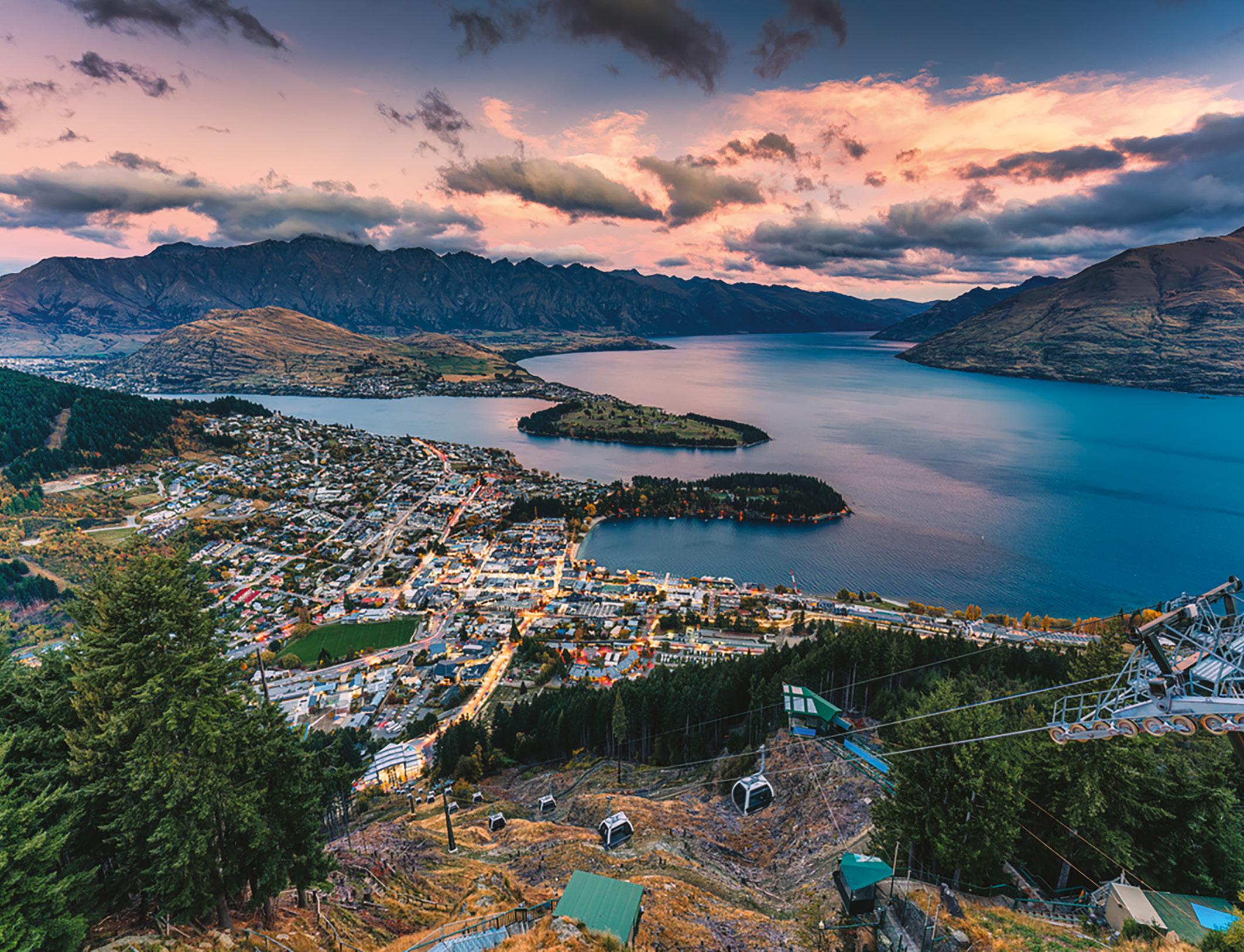
INVESTOR SENTIMENT TOWARDS THE NEW ZEALAND MARKET IS IMPROVING DESPITE EMERGING DISPARITY BETWEEN LOCATIONS, WRITES JLL’S NICK THOMPSON.
The New Zealand hotel market is currently showing a bifurcation of demand and trading performance across many of its major markets and regions. This disparity has been highlighted by the strength of the Queenstown market, which is currently seeing surging international demand and high-yielding leisure and business travellers driving strong trading levels. At the other end of the market, Auckland is dealing with increased new supply, and Wellington is adjusting to reduced government spending.
International visitor arrivals continue to rise and have reached 3.37 million for the year ending May 2025, representing a 5.2% increase on the previous year (YE May 2024). While Australia remains the dominant source market, its recovery has been outpaced by the source markets such as the United States and
India, both of which have exceeded their prepandemic numbers.
Similarly, we are also witnessing a twotiered market when it comes to investor appetite, with an emerging disparity between locations and asset class. However, overall investor sentiment is improving, being driven by a reduction in interest rates and the
“[New Zealand is] widely being viewed as a transparent, safe haven.”
Nick Thompson, JLL
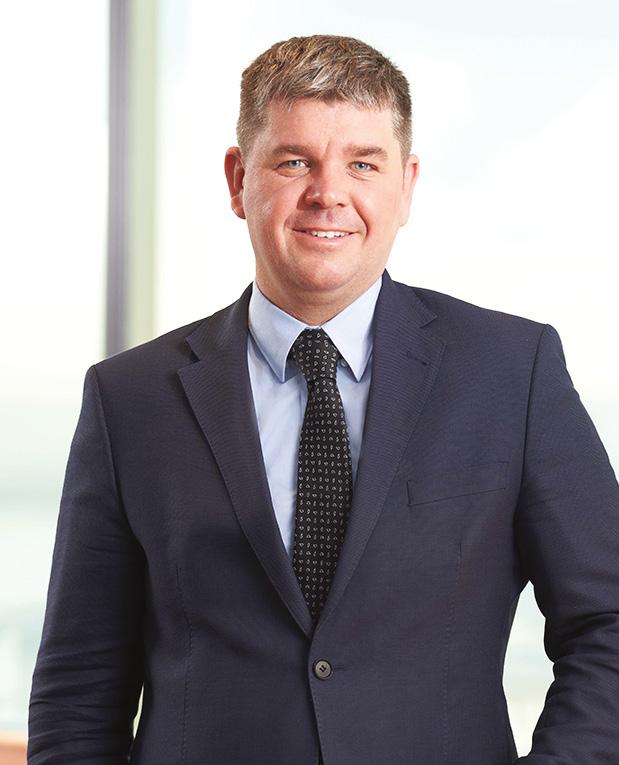
market widely being viewed as a transparent, safe haven.
This positive investor confidence was highlighted by our most recent record-breaking transaction, with the InterContinental Auckland selling for NZ$180 million to Singapore-based Hotel Properties Limited (HPL), in what was the largest single hotel asset sale ever in New Zealand. n
YOUR ROUNDUP OF THE LATEST KEY APPOINTMENTS ACROSS THE HOTEL INDUSTRY.
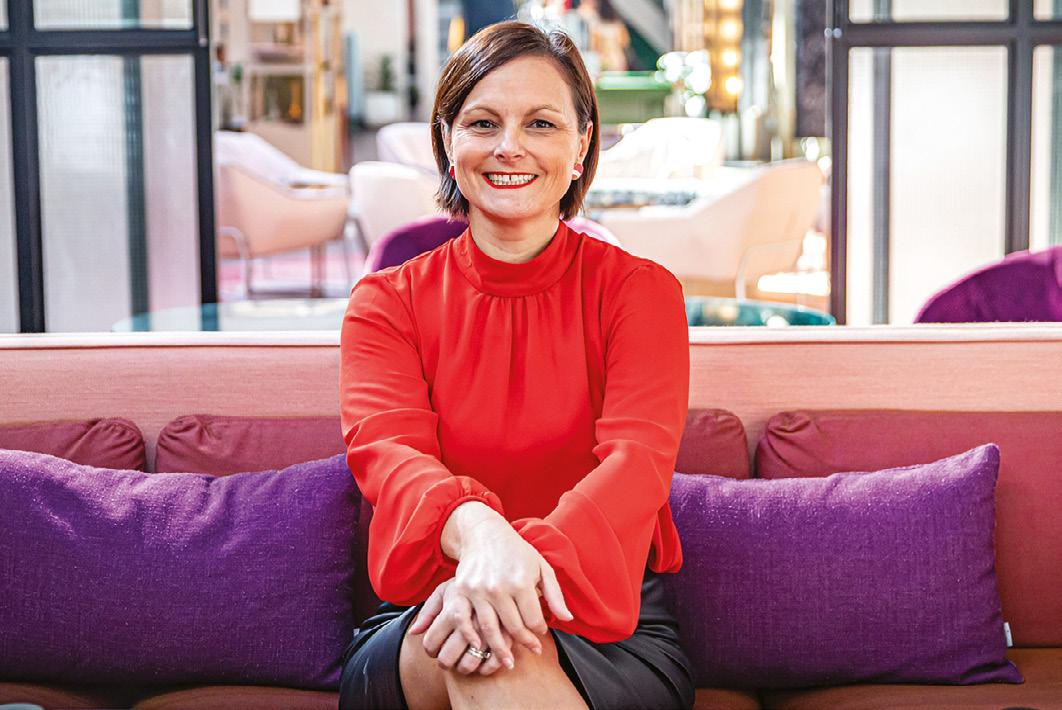
INDEPENDENT HOTEL OPERATOR La Vie has welcomed experienced hospitality figure Amanda Cottome as Director of Operations – Pacific.
Cottome brings more than 23 years of senior leadership experience in hospitality operations, service excellence, and team development. She joins from Ovolo Hotels, where she served as Group Director of Brand Experience and Sustainability.
“I’m incredibly excited to be joining La Vie Hotels and Resorts at such a dynamic time in its journey,” said Cottome.
“I look forward to working closely with our teams to deliver exceptional guest experiences, foster strong workplace cultures, and contribute meaningfully to the next phase of the company’s evolution.”
LARELLE FITT MAKES a return to Novotel Geelong after several years, taking up the role of Director of Sales.
Fitt brings over 25 years of experience across the tourism, hospitality, and events sectors, including as an owner and operator of a motel.
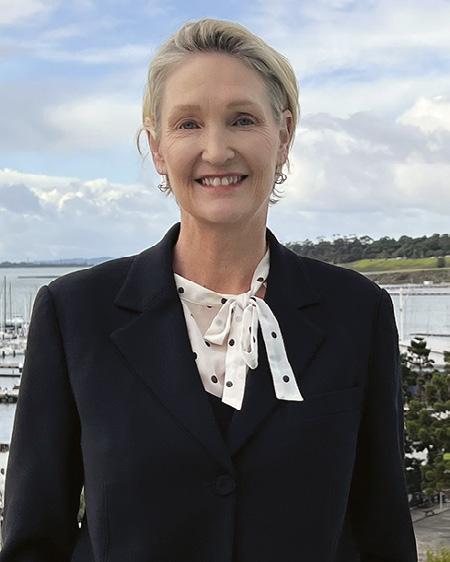
She has extensive leadership experience from several 4-star and 5-star properties including Novotel Geelong, Mantra Lorne, Novotel Barossa Valley Resort, Sheraton Melbourne, and Novotel Melbourne on Collins.
“We’re excited to have Larelle back on board at Novotel Geelong,” said Novotel Geelong General Manager, Scott Bear.
“Her energy and deep regional experience are a perfect match for our team as we continue to grow as the leading hotel in Geelong and The Bellarine.”
DARLING HARBOUR EXPERIENCED HOTELIER SAM
Panetta joins Sofitel Sydney Darling Harbour as General Manager, taking the reins from Greg Brady who recently retired.
With more than 30 years in the hospitality industry under his belt –20 of which have been spent in luxury hospitality – Panetta is recognised for strong leadership and a passion for guest experience.
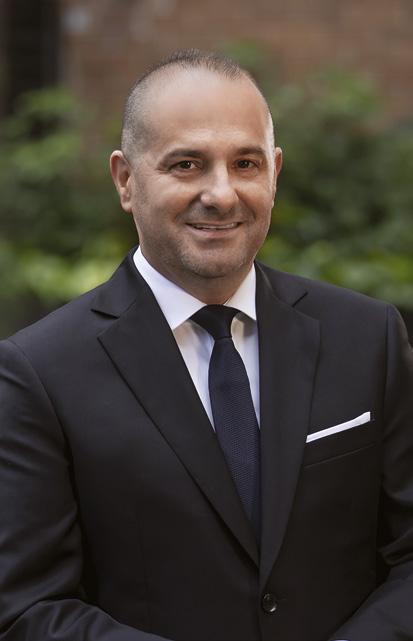
He joins from Sofitel Sydney Wentworth, where he led a AU$70 million transformation and relaunch of the property last year, and has previously held senior roles across several Accor properties, including Pullman Magenta Shores Resort, Pullman Quay Grand Sydney Harbour, and Sofitel Sydney Wentworth.
“Under Sam’s management, we look forward to a very strong end to 2025, with major events such as Lions rugby, Ashes cricket and SXSW putting Sydney in the tourism spotlight,” said Sofitel Sydney Darling Harbour Owner, Dr Jerry Schwartz.
“Sam knows Sydney and the Sofitel brand very well, so we look forward to him adding further to Sofitel Sydney Darling Harbour’s prestigious reputation for excellence.”
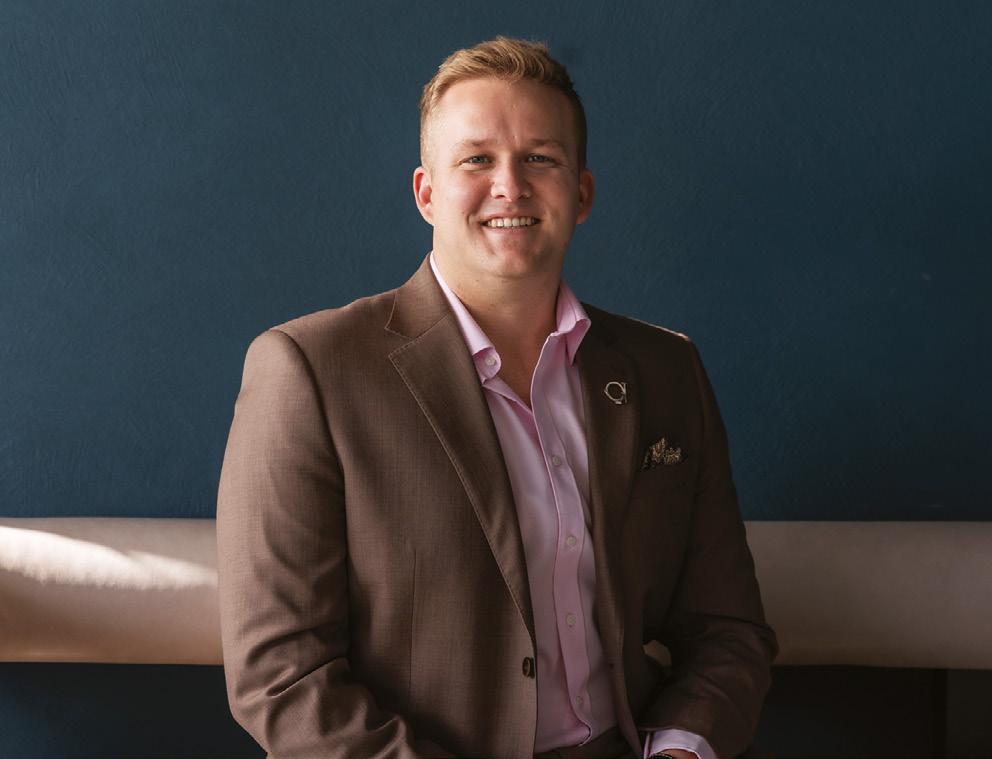
LUKE ROBERTS-LALLI HAS joined QT Newcastle as General Manager, taking the reins from Michael Stamboulidis, who recently joined QT Auckland.
Roberts-Lalli brings over a decade of experience in luxury hospitality, including at QT Gold Coast where he served as Executive Assistant Manager.
“Luke’s drive, creativity and people-first leadership style make him a natural fit for QT,” said QT Hotels and Resorts General Manager, David Sude.
Roberts-Lalli said, “QT has always felt like home”.
“We celebrate bold creativity and I’m honoured to lead QT Newcastle in a city that shares those same values,” he said.
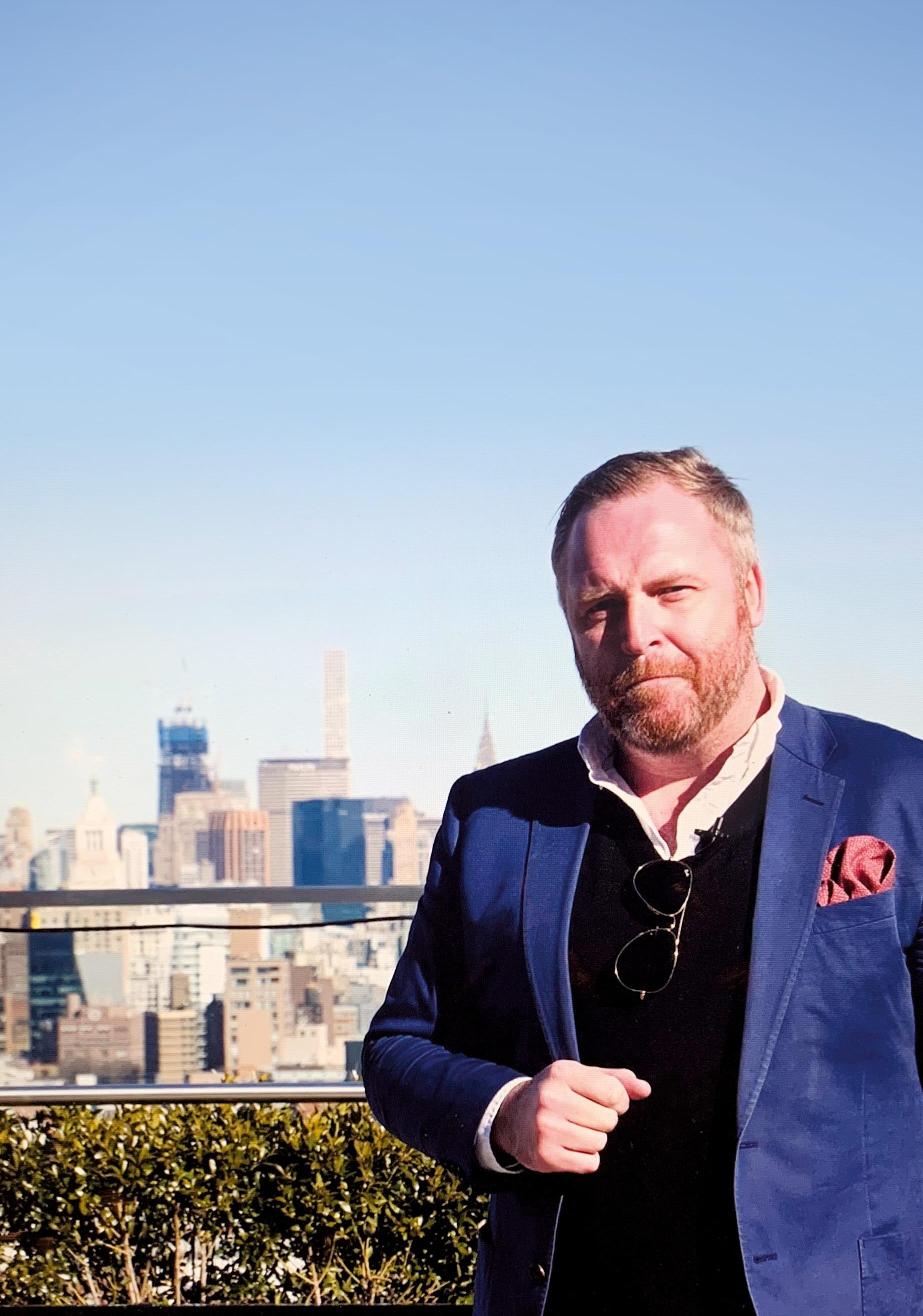
Catch over 50 TV episodes of Wayfarer Series 1, 2 & 3 now on our website and YouTube channel.














We’re proud to have won Canstar’s Outstanding Value Super Award for the eighth year in a row. The award recognises our strong long-term performance, competitive fees and an array of product features. So it’s not just a win for us, but a win for our members.